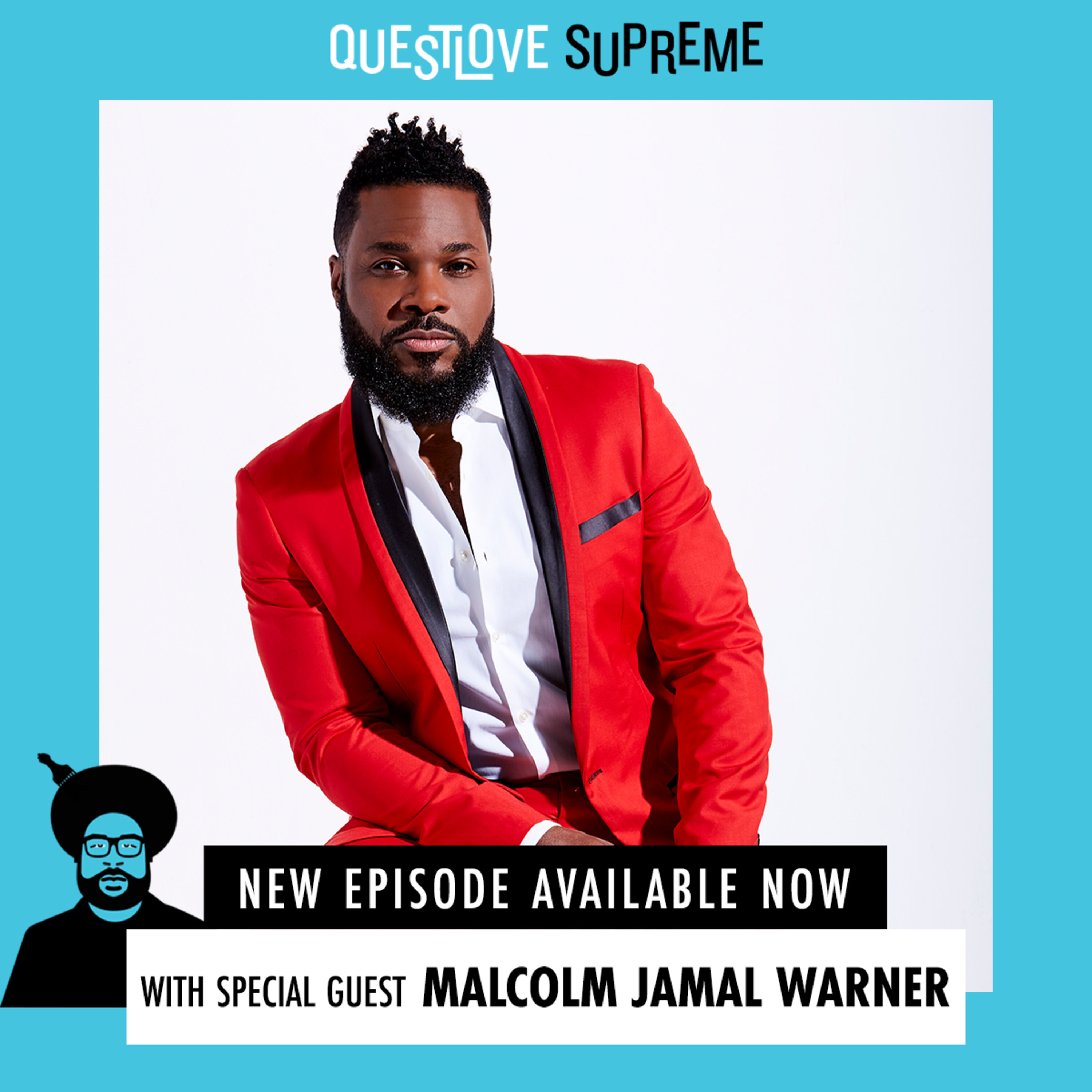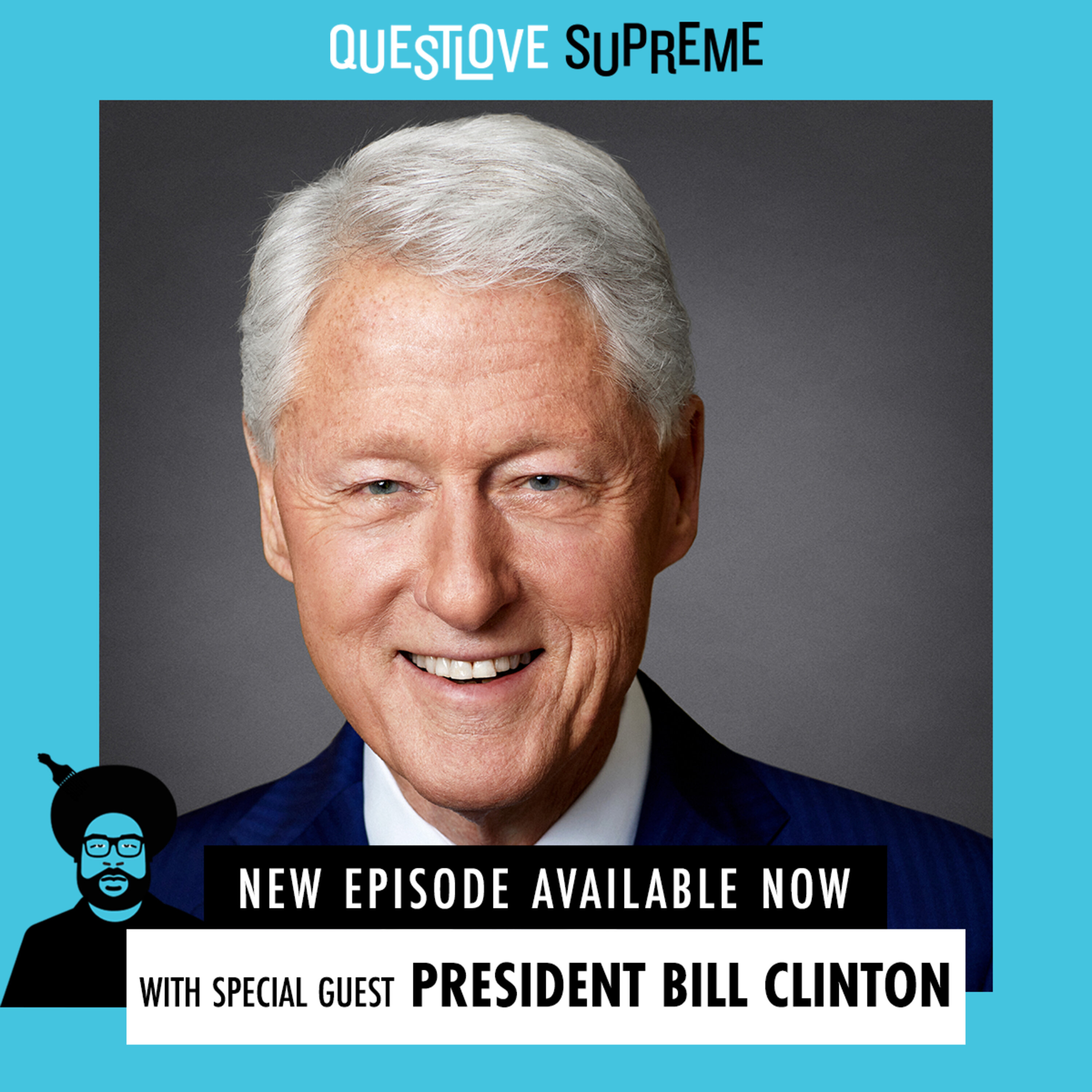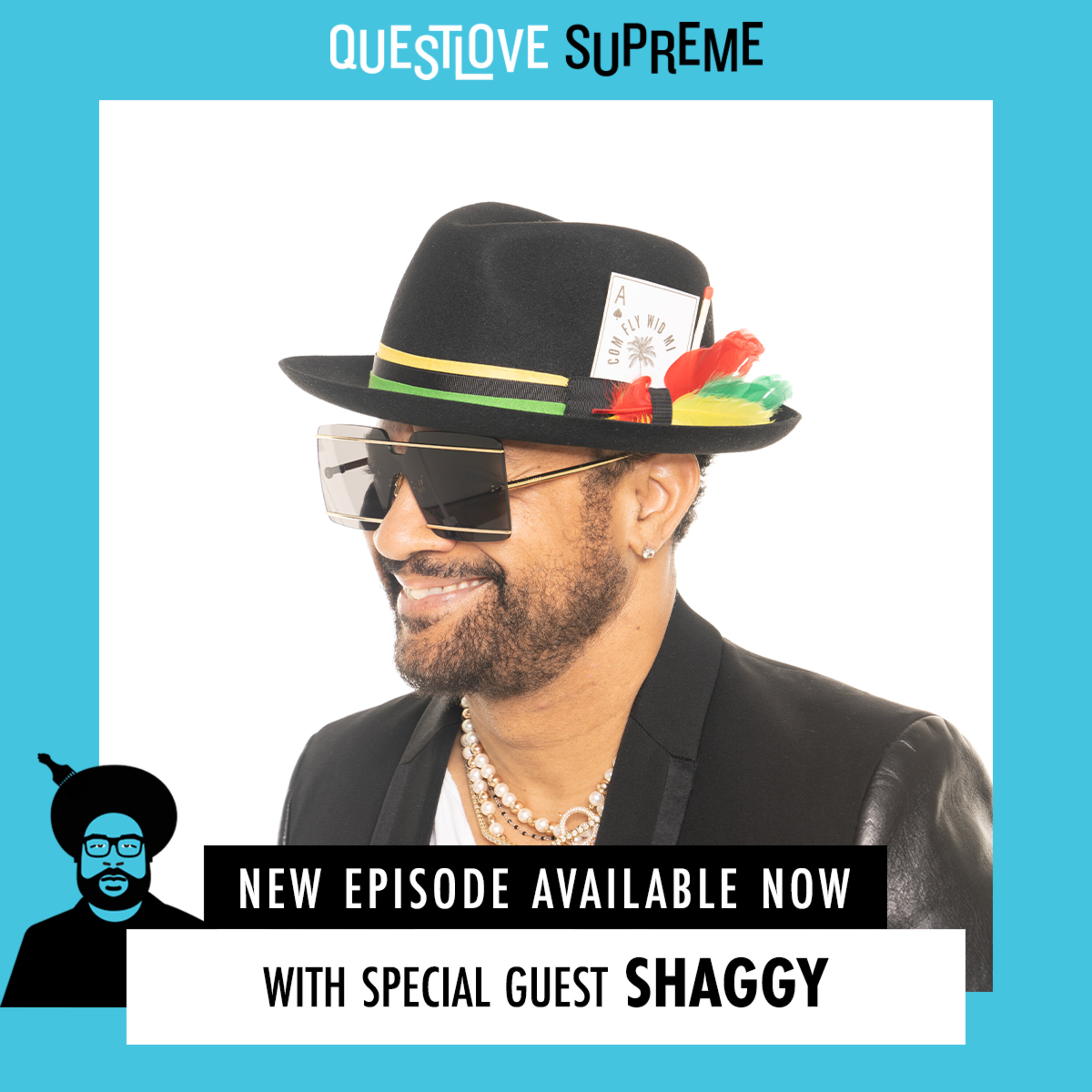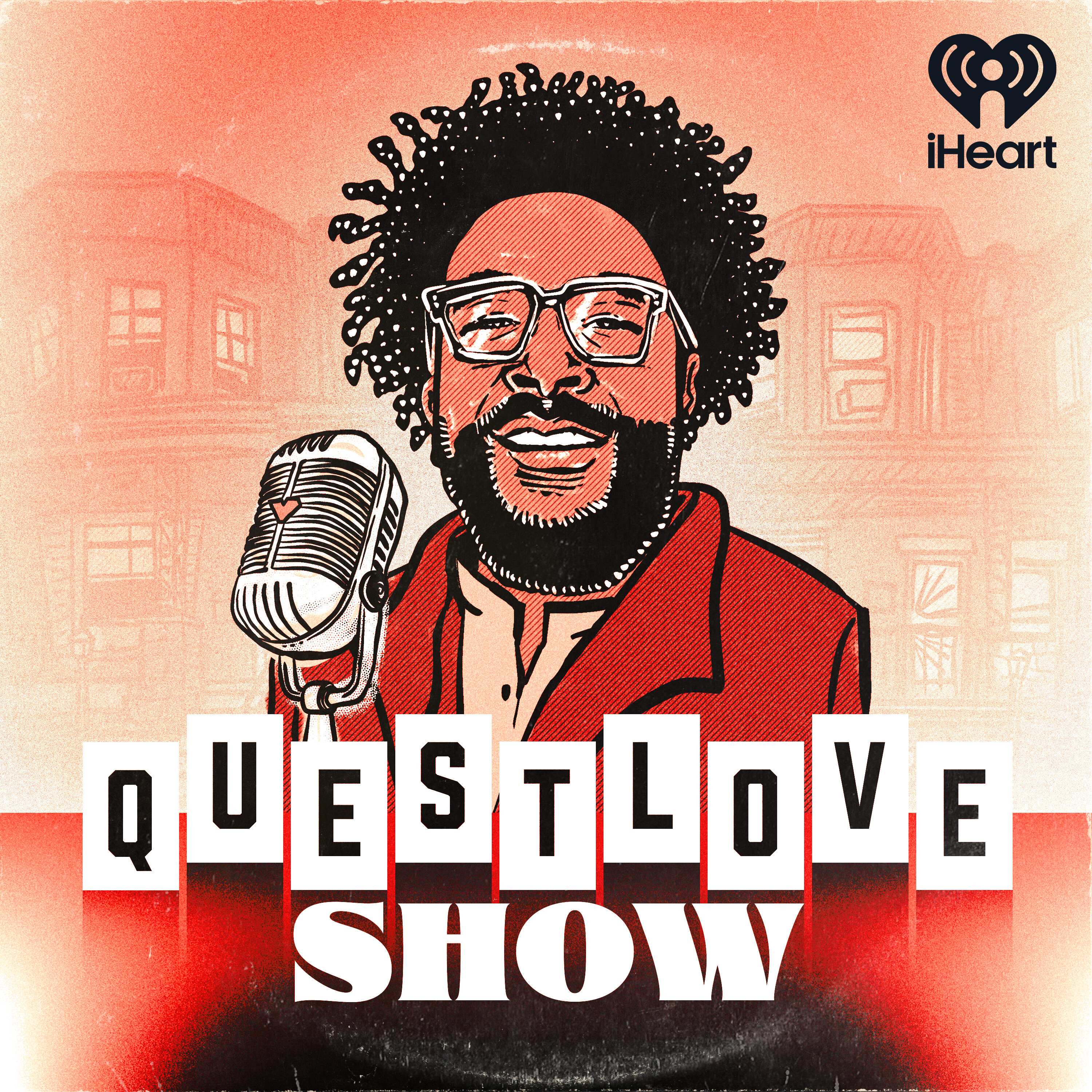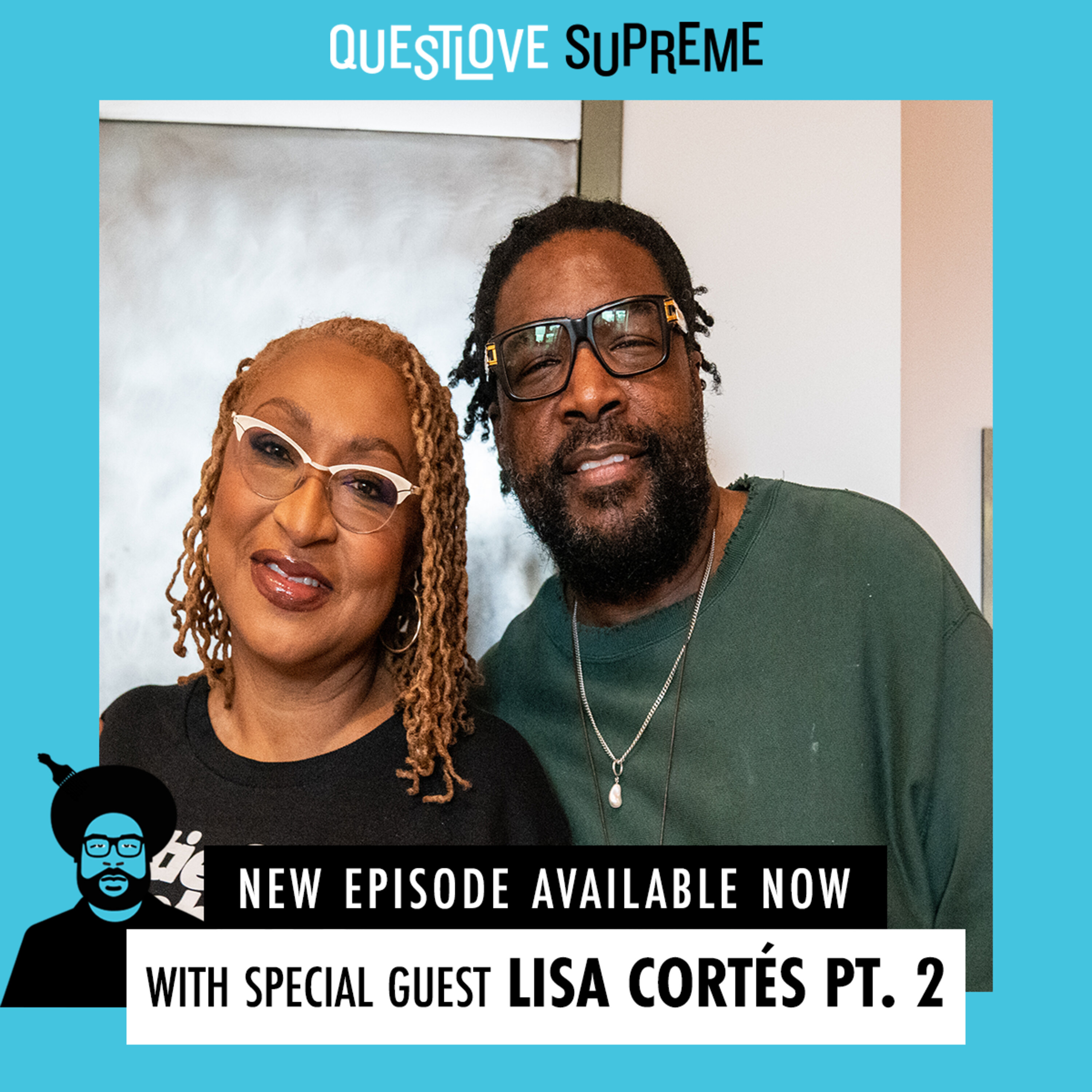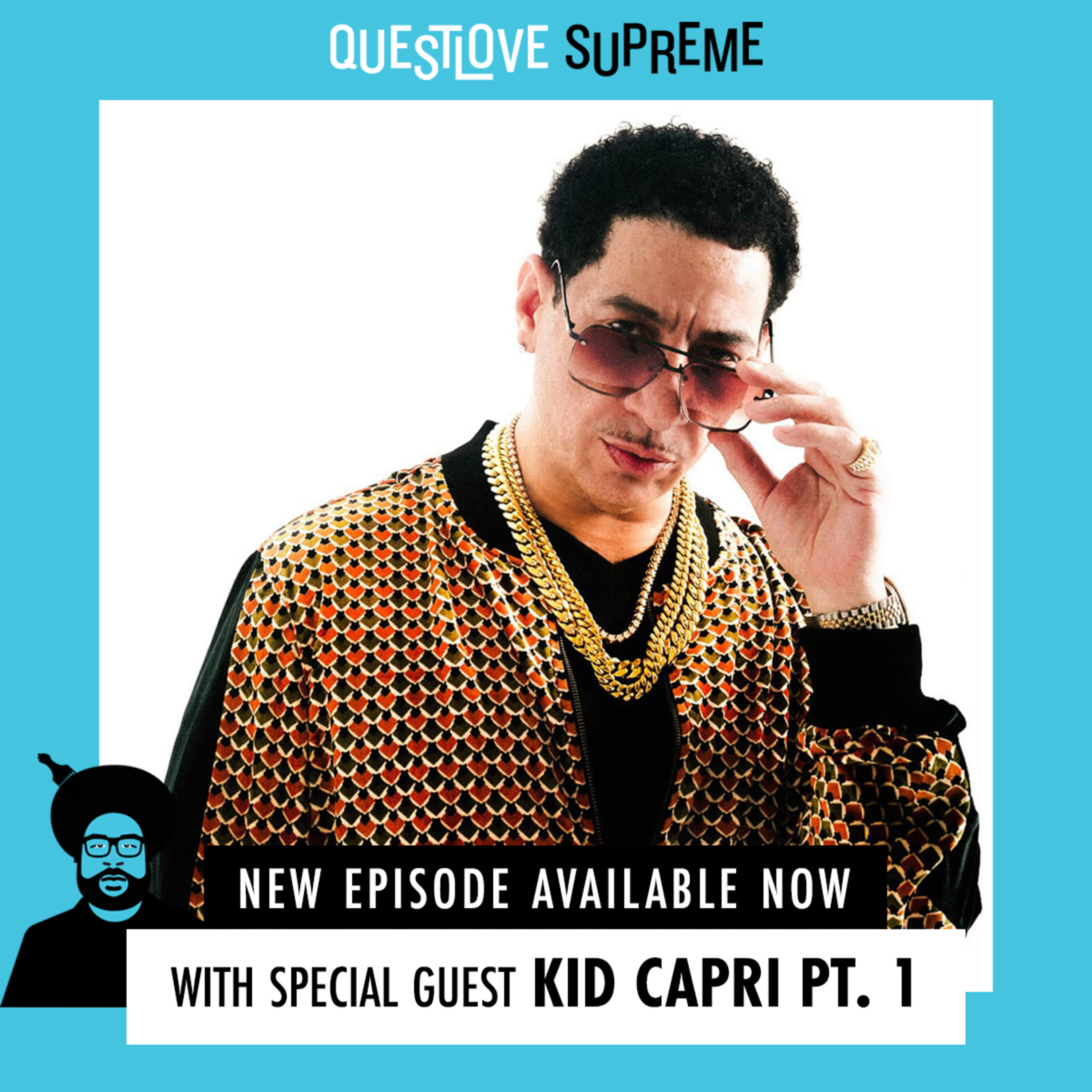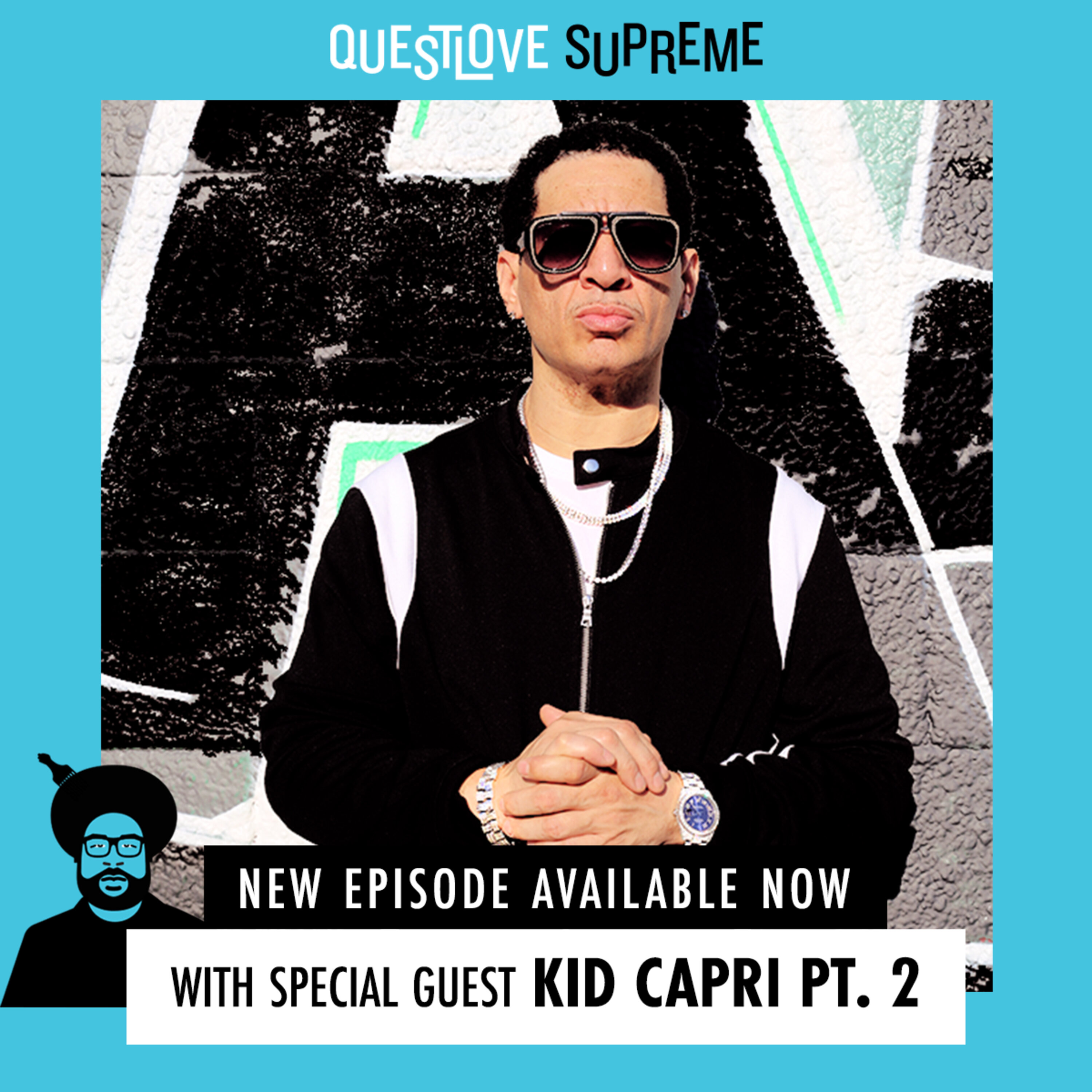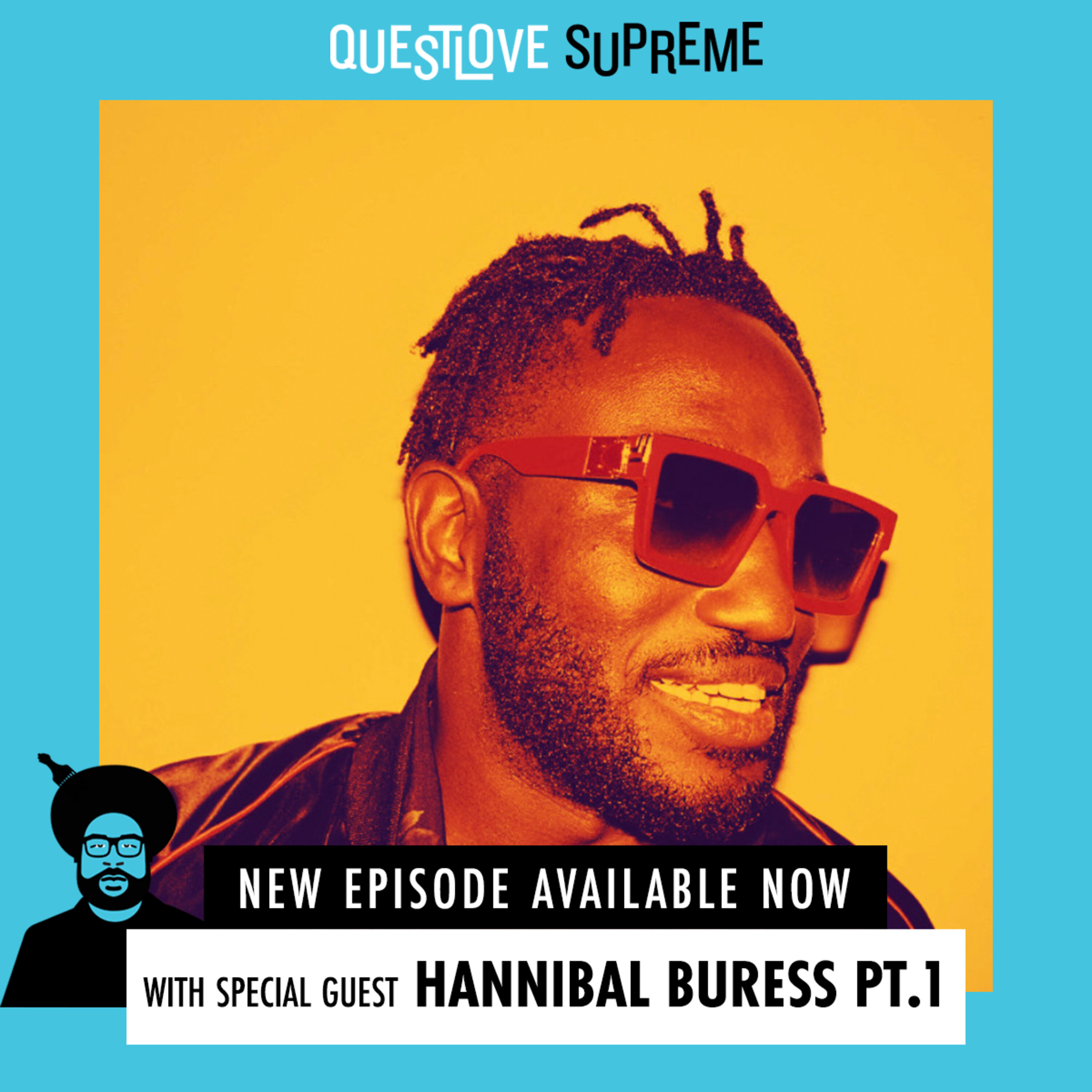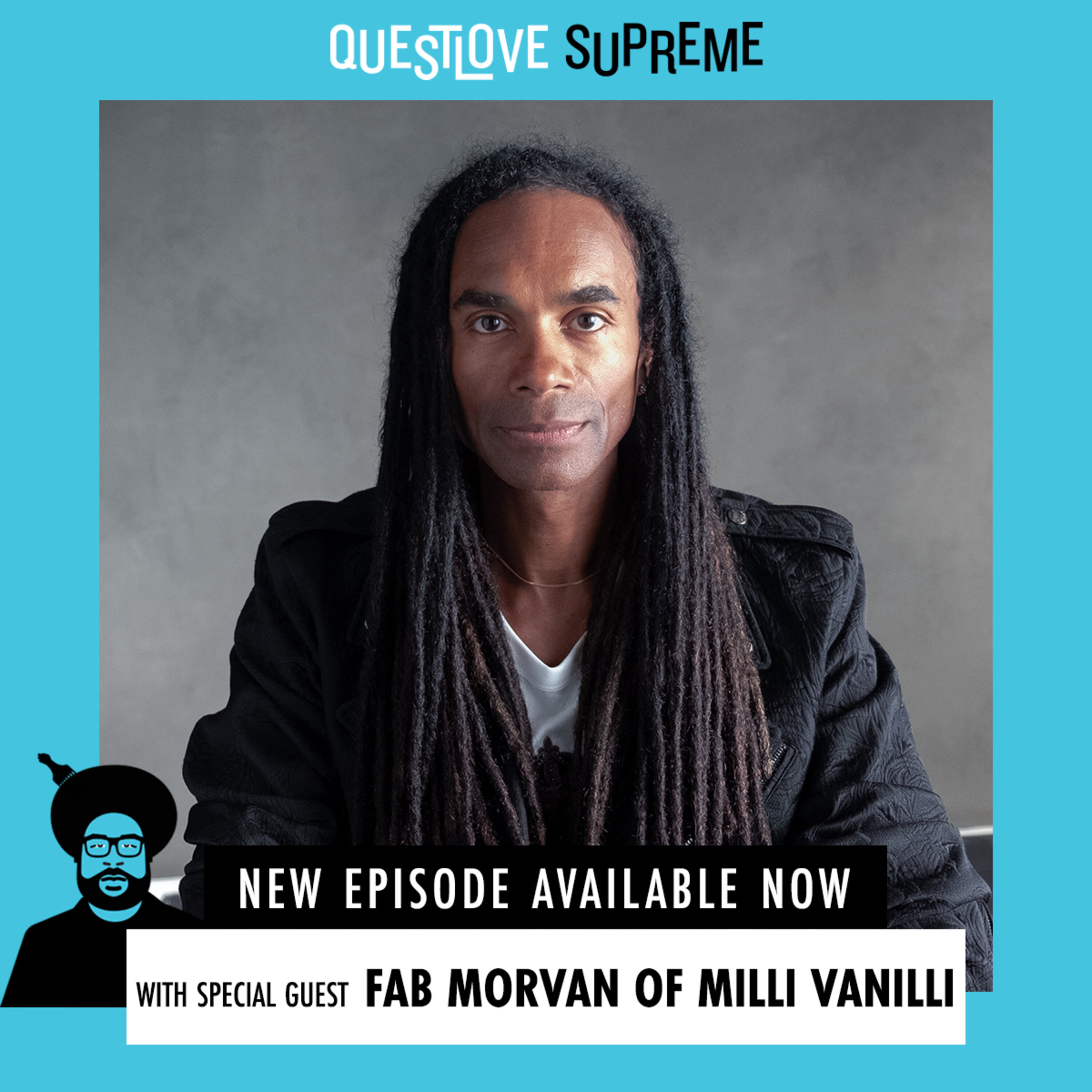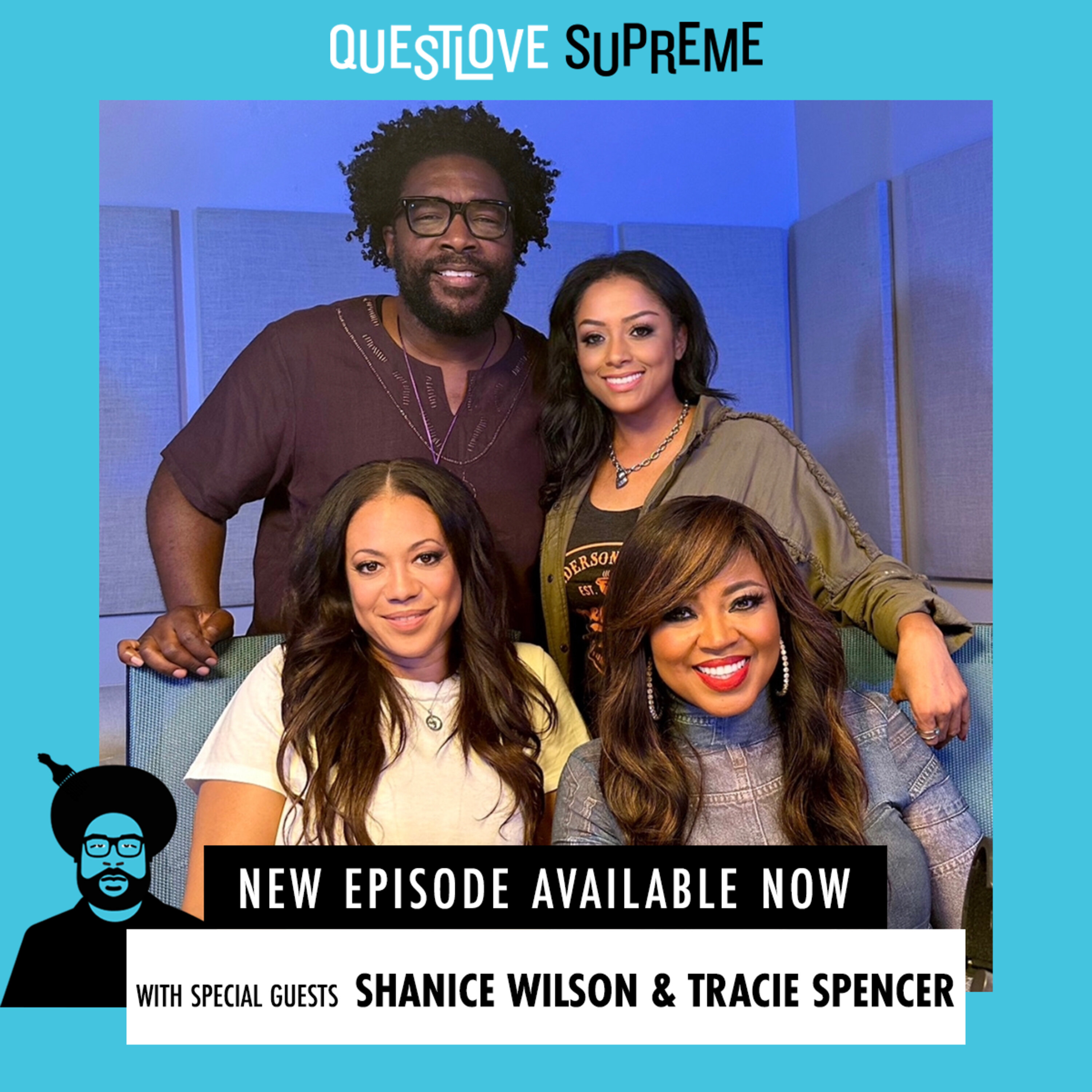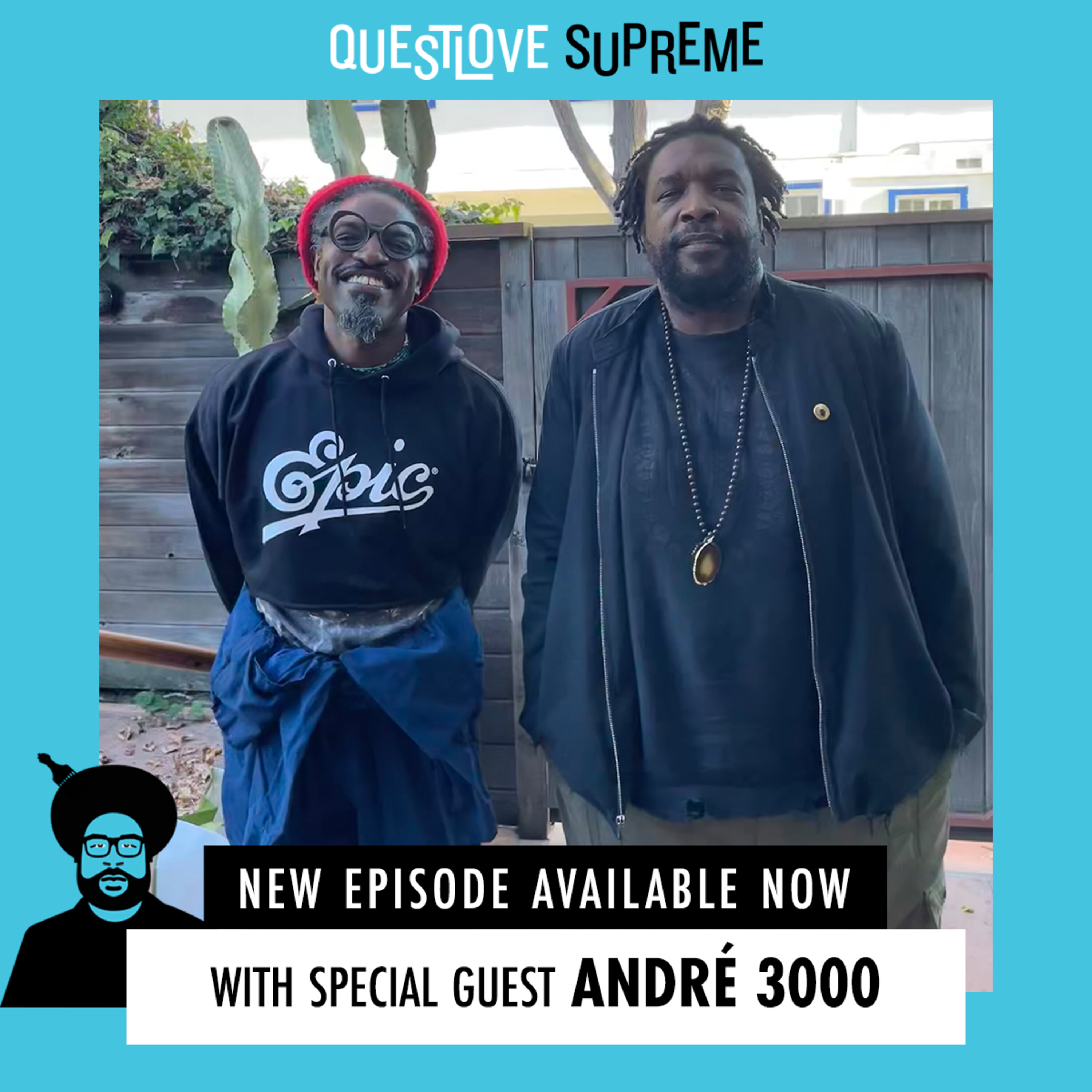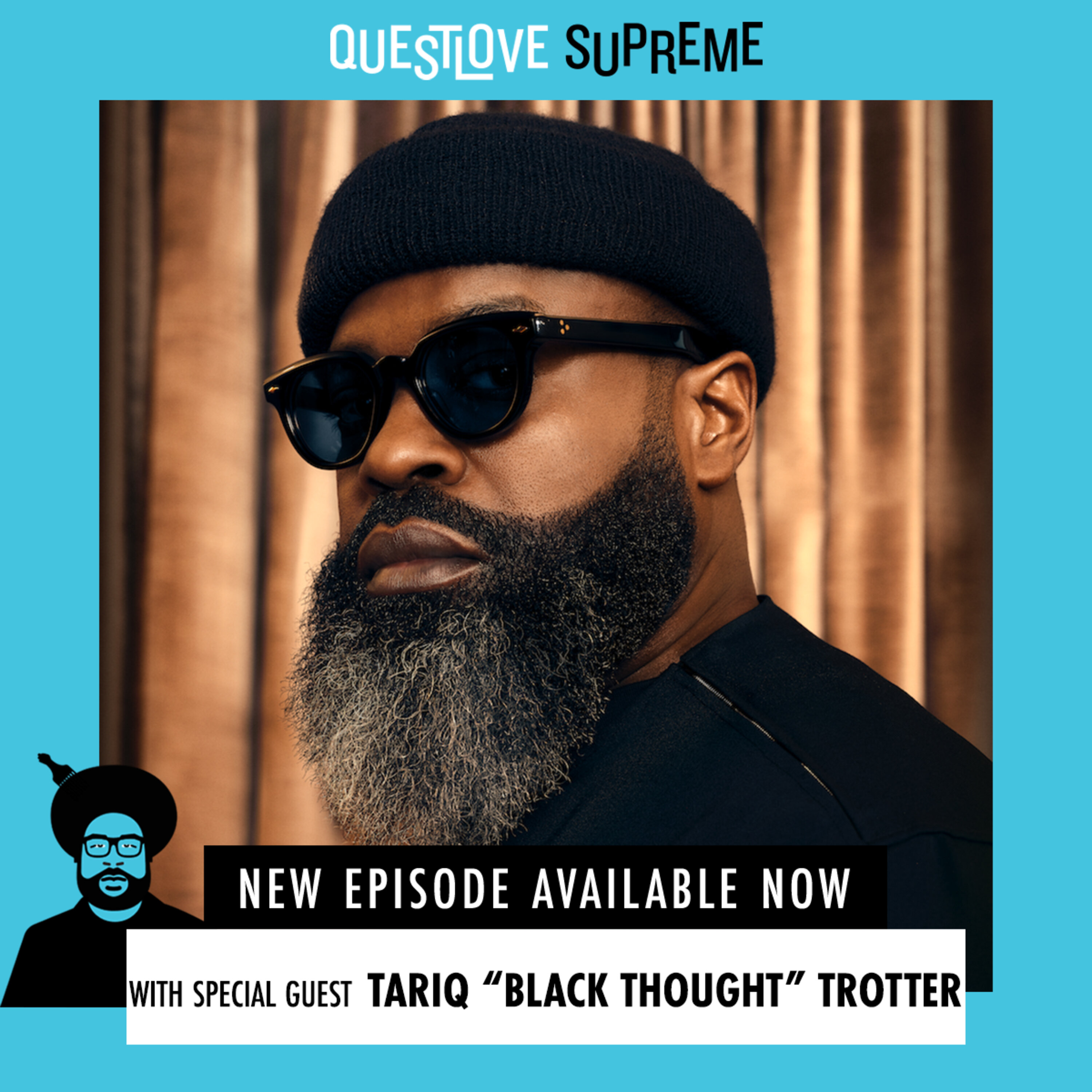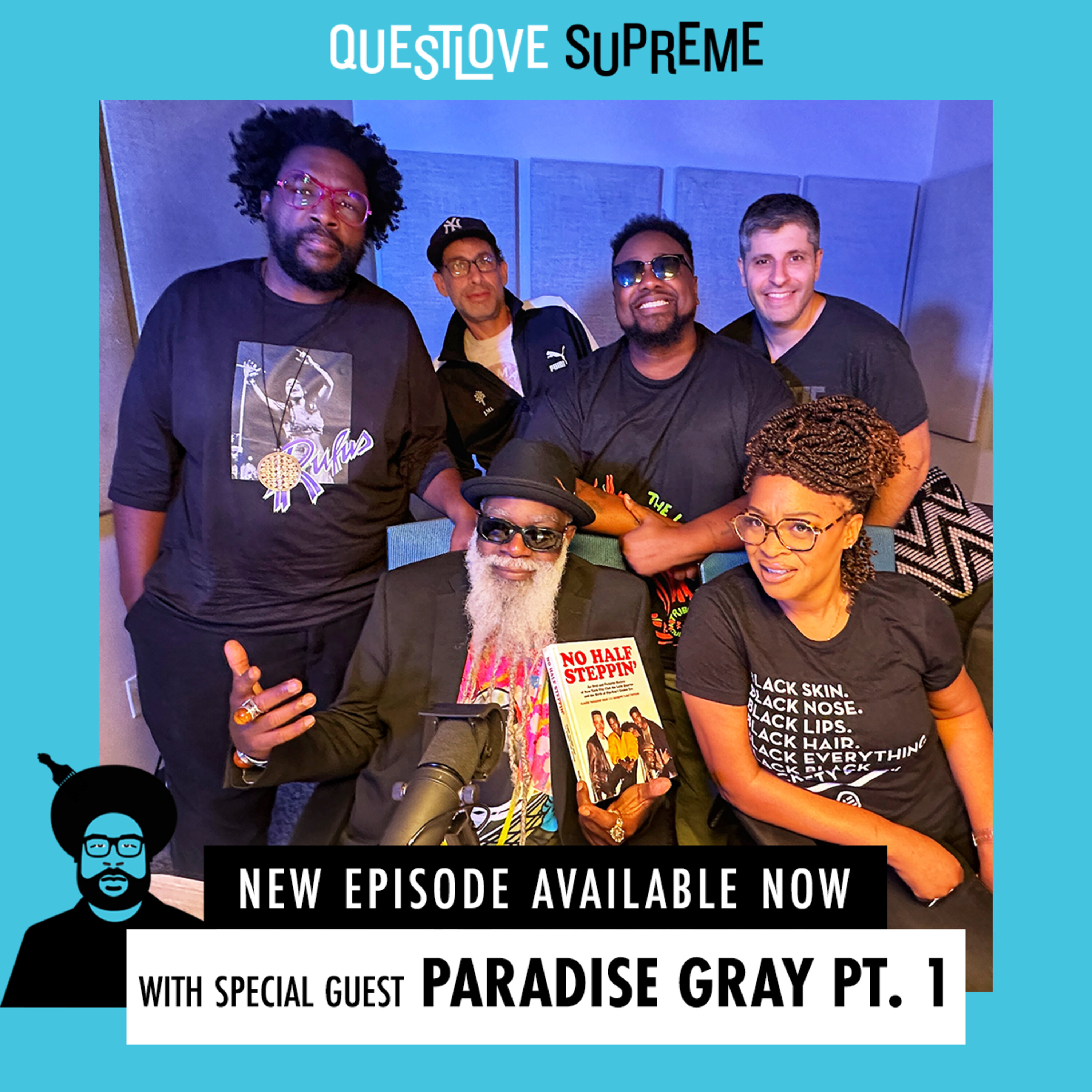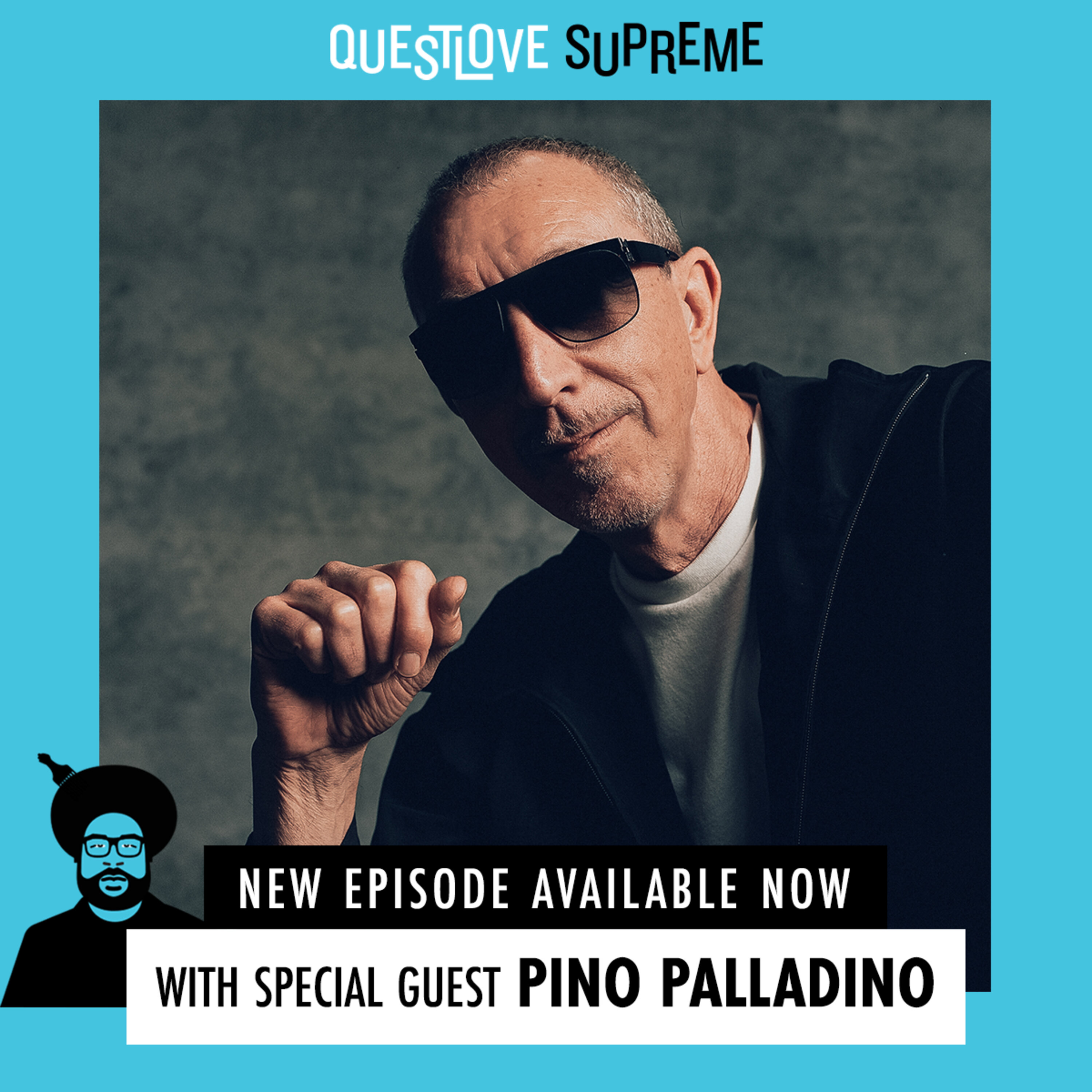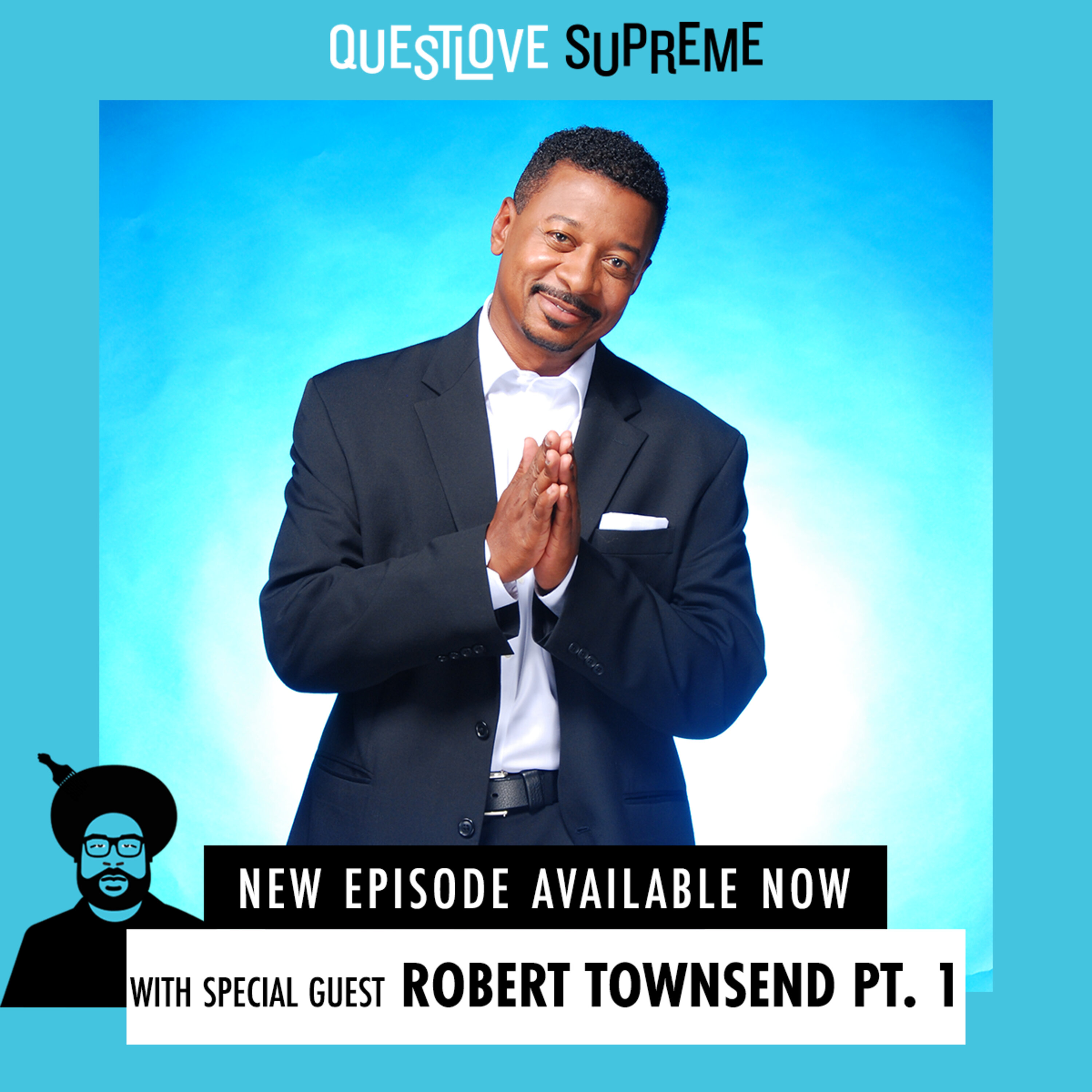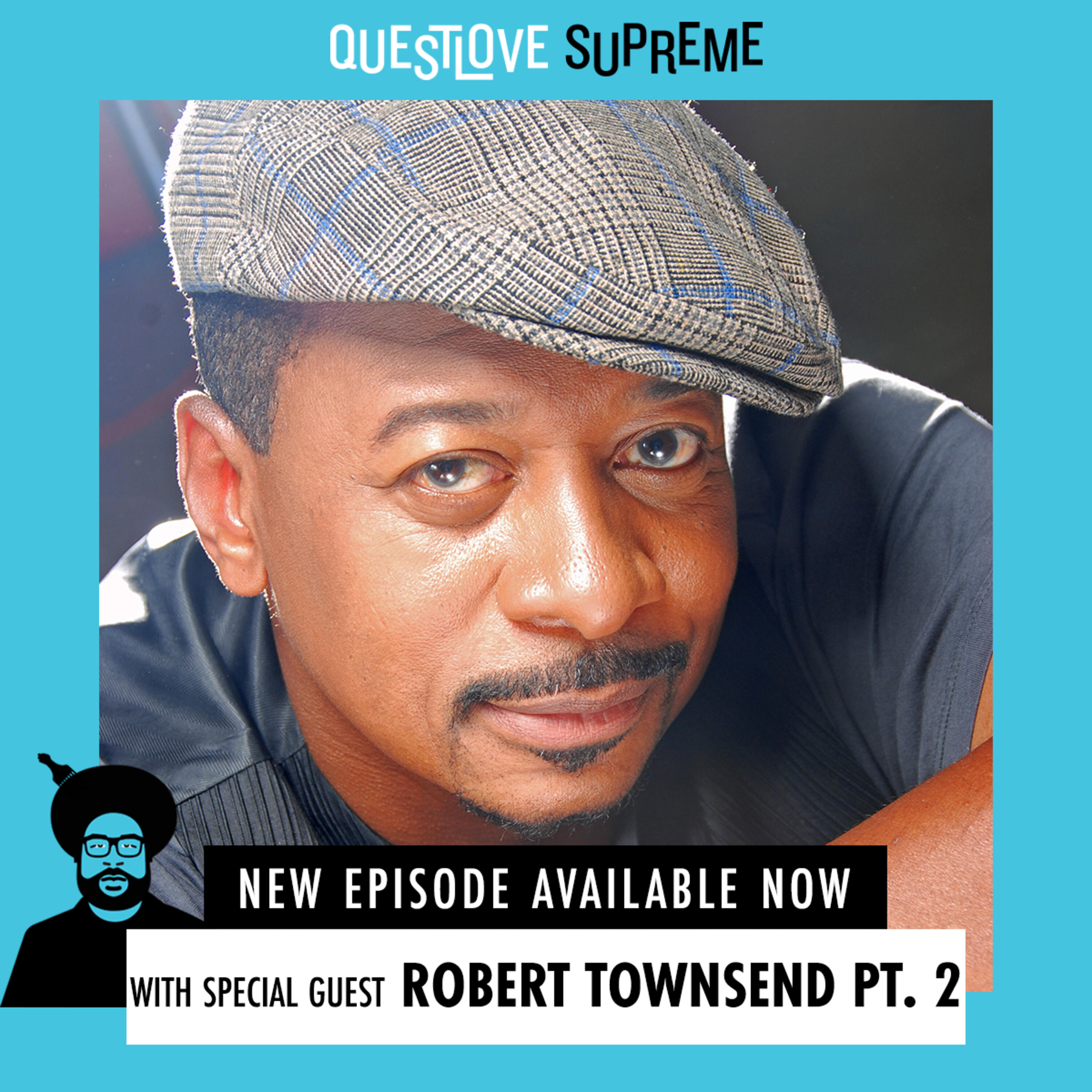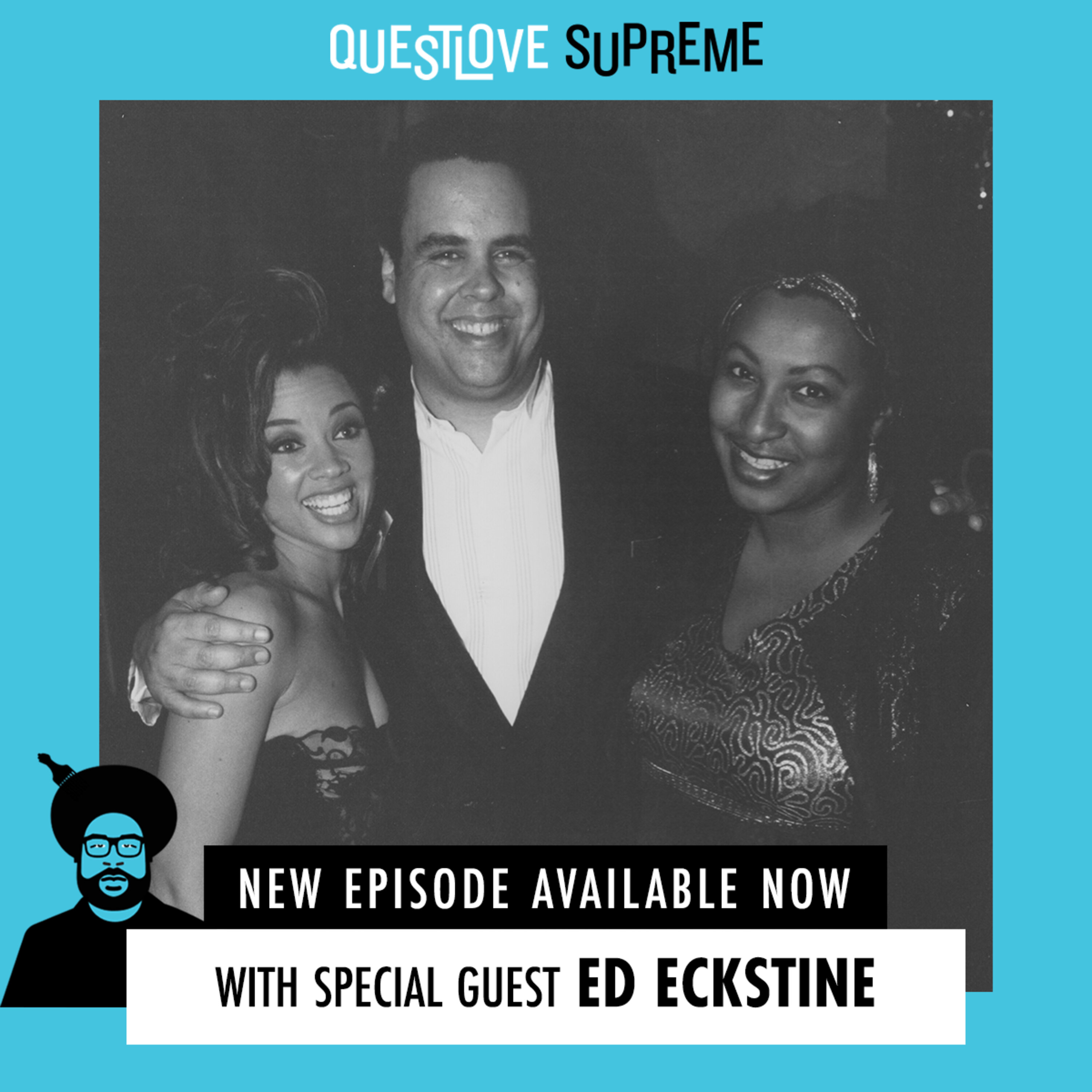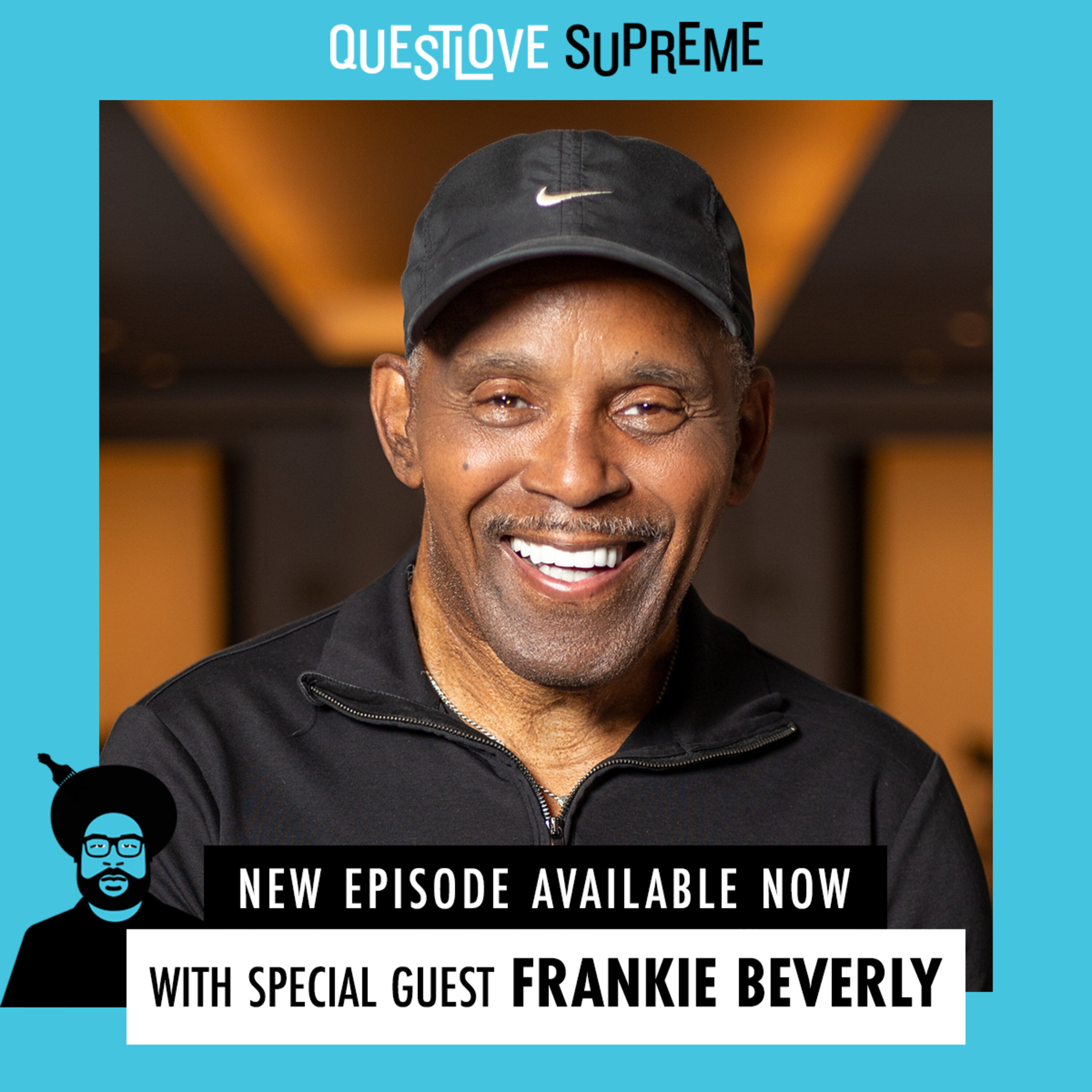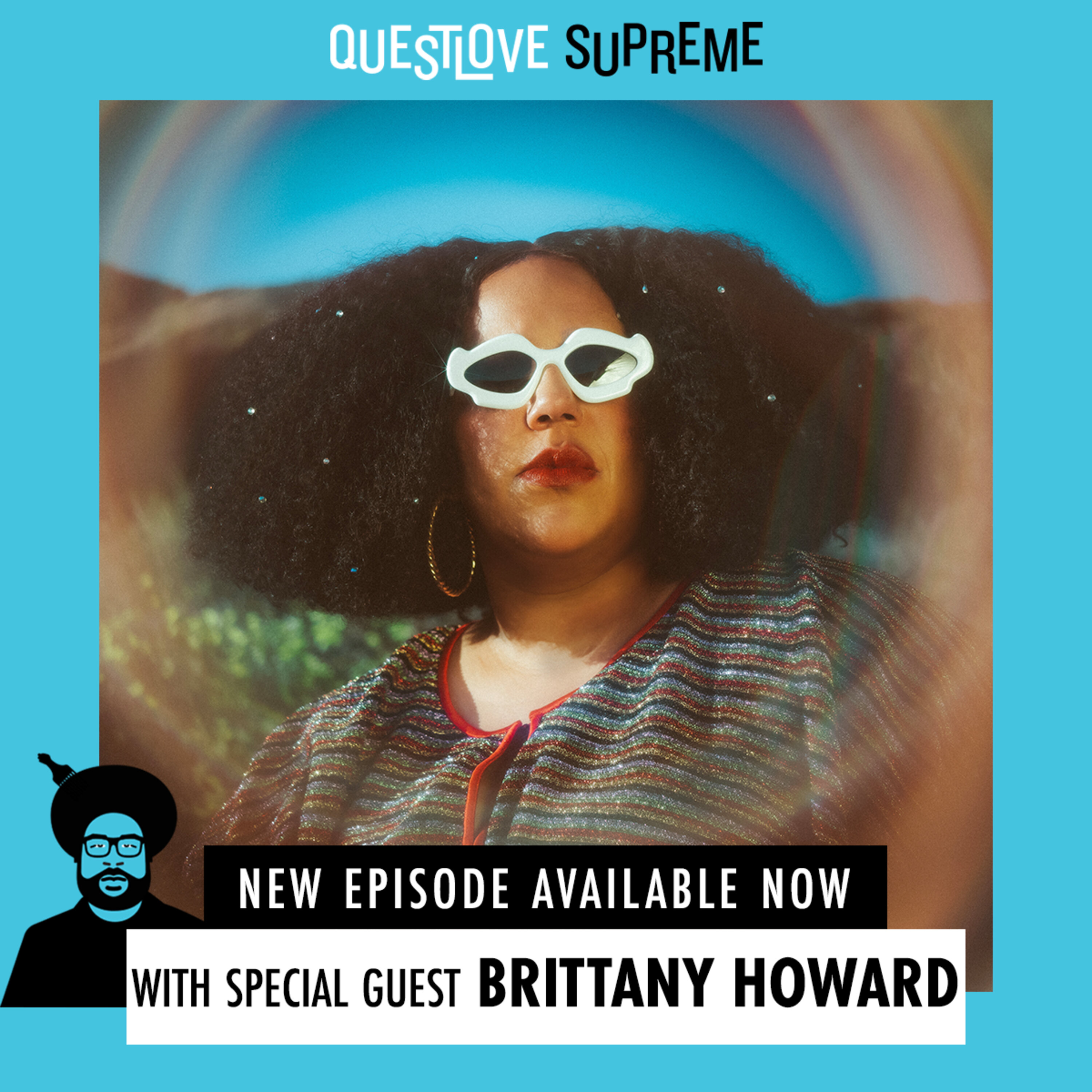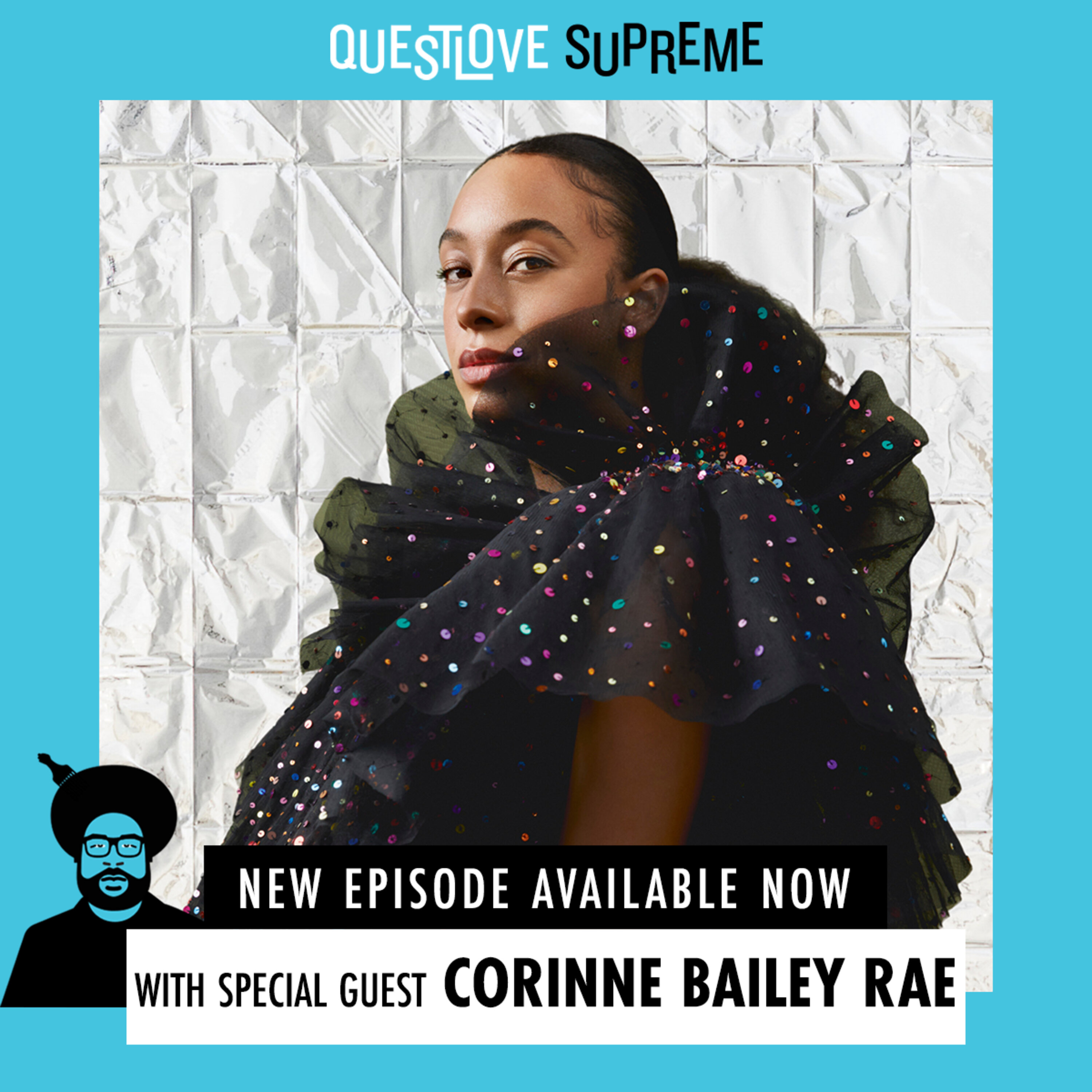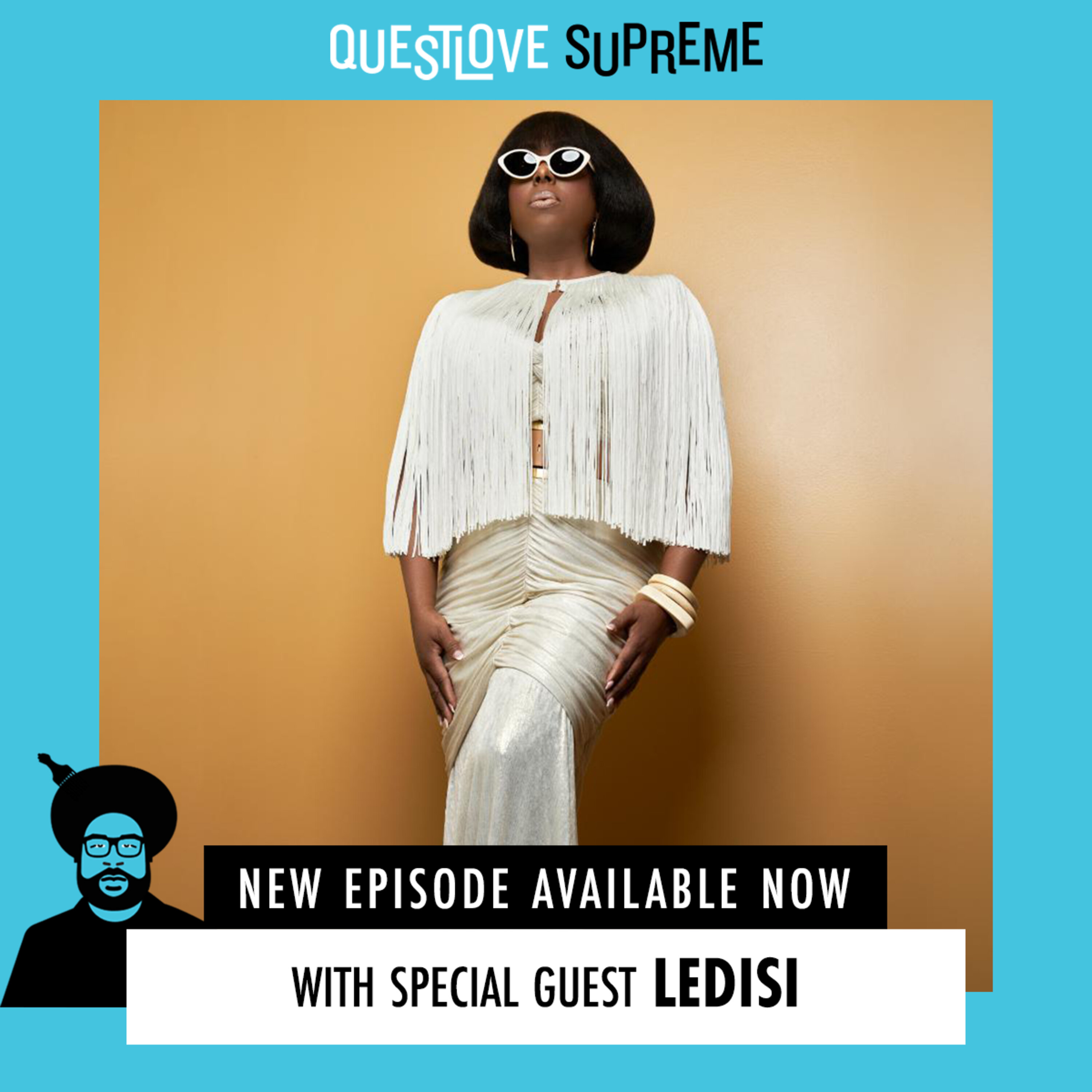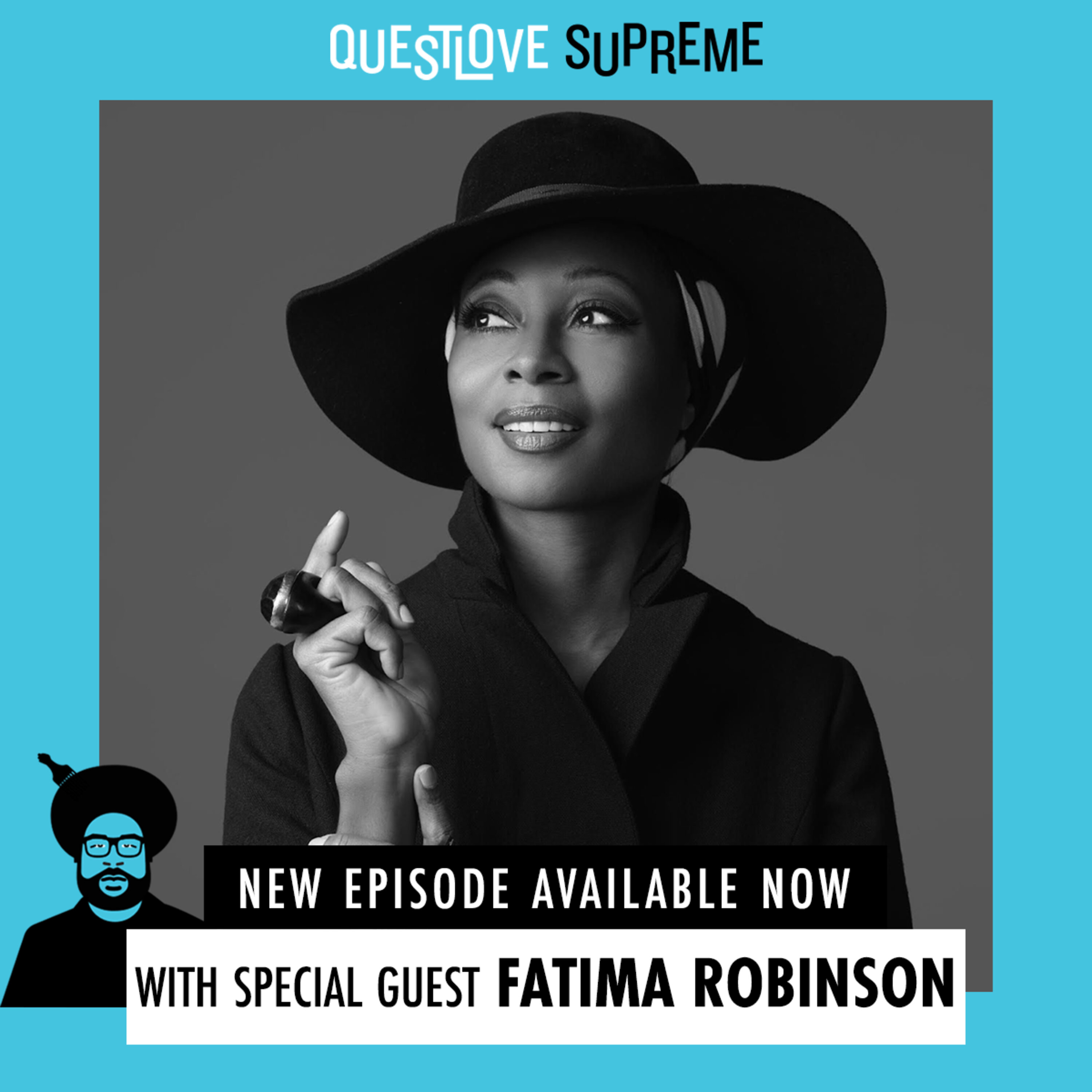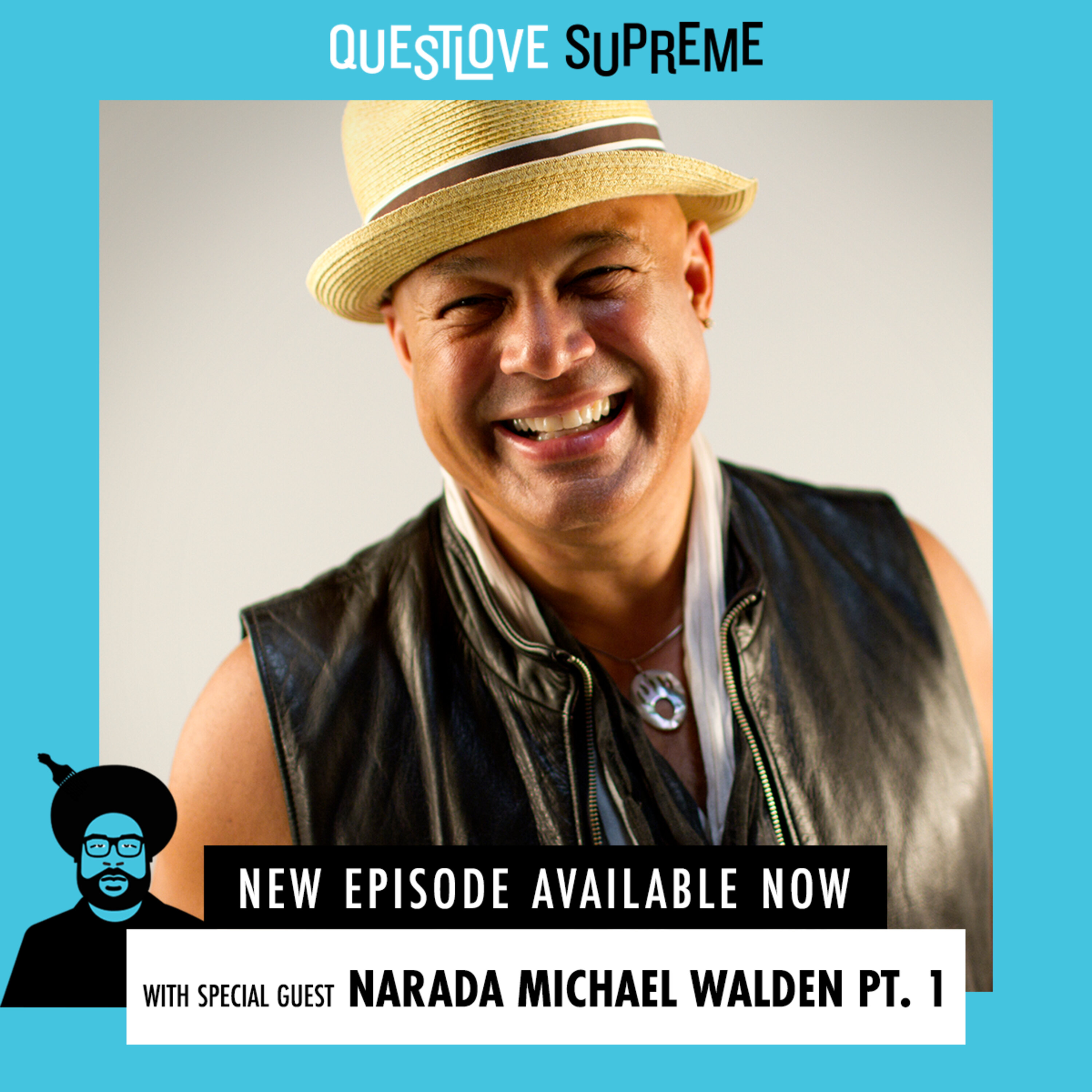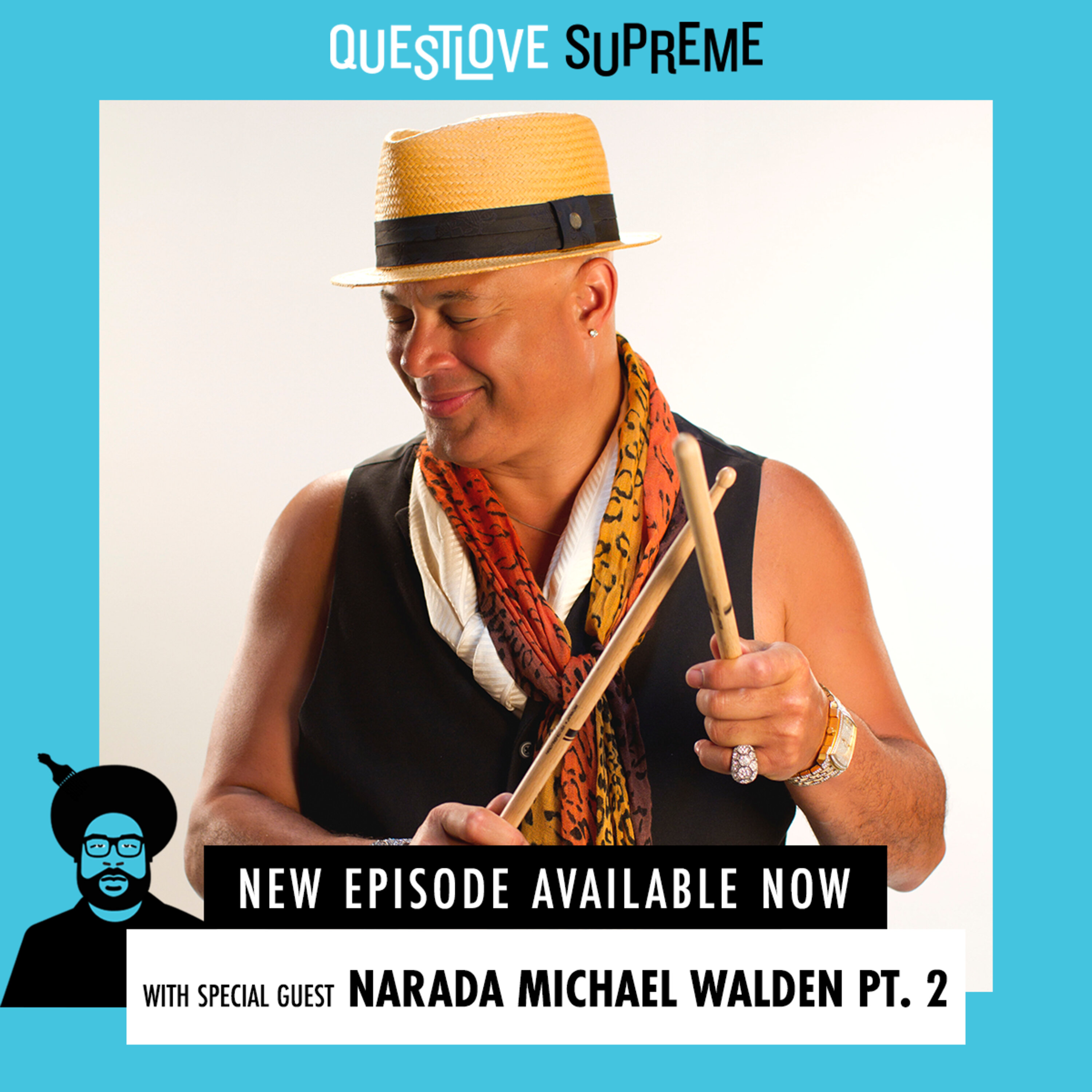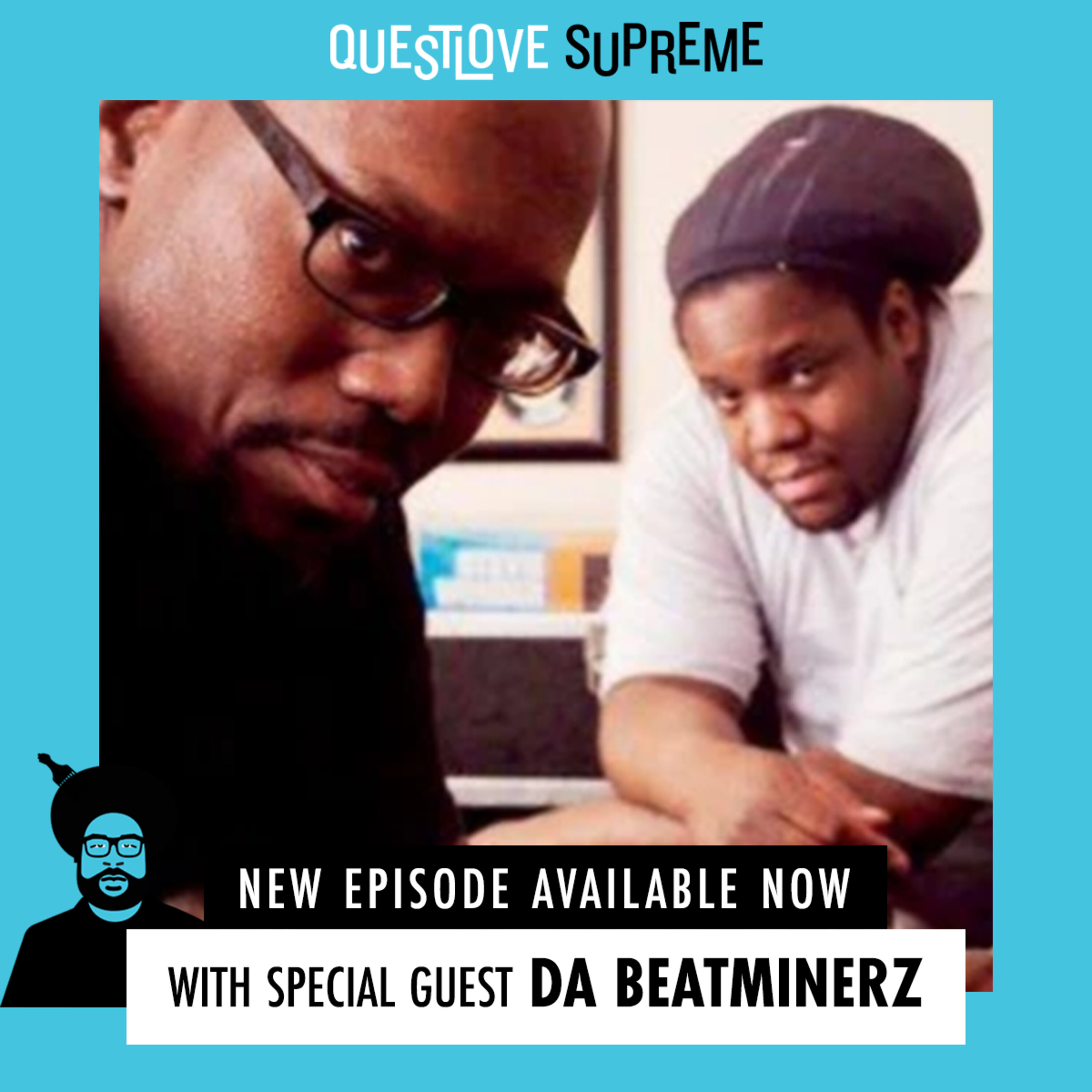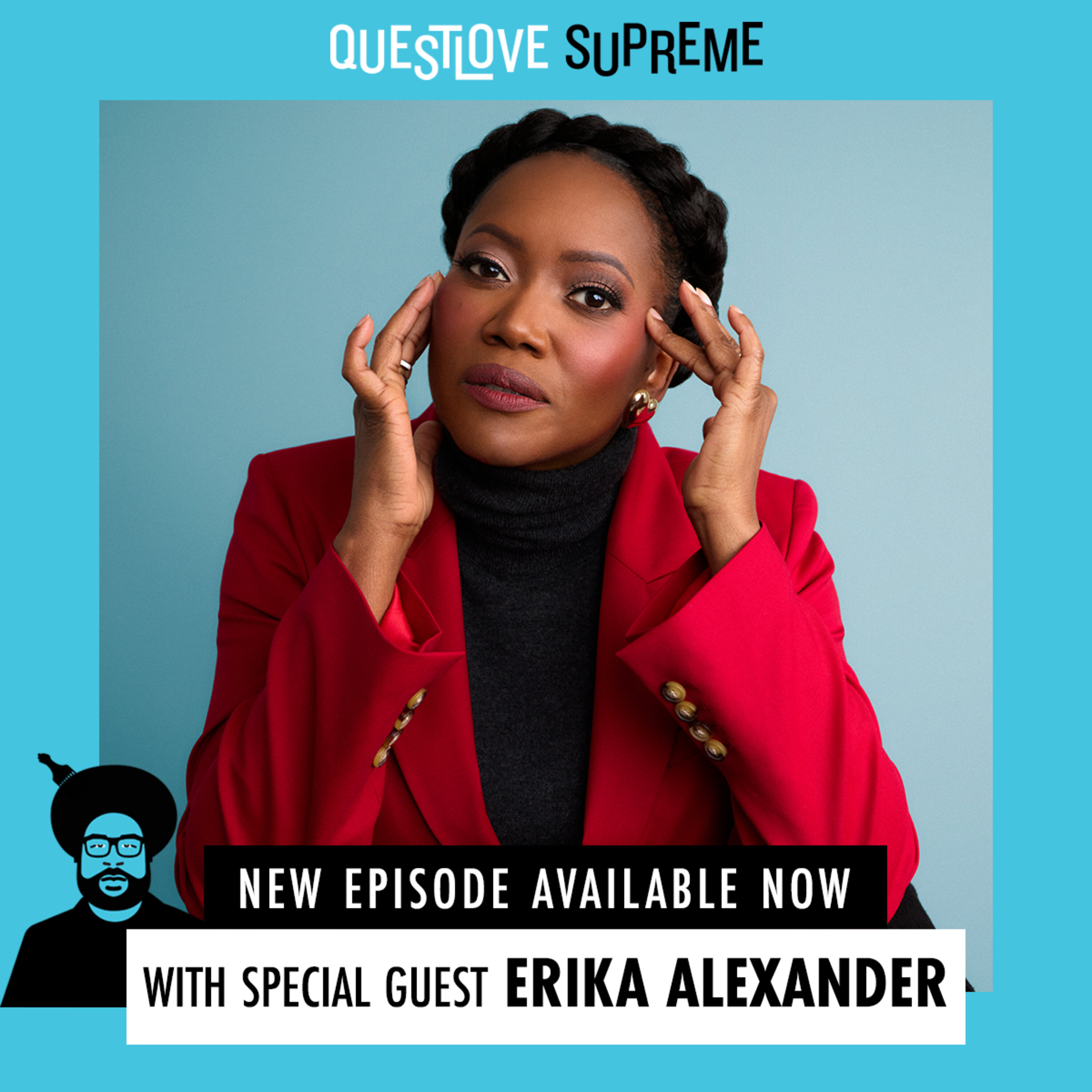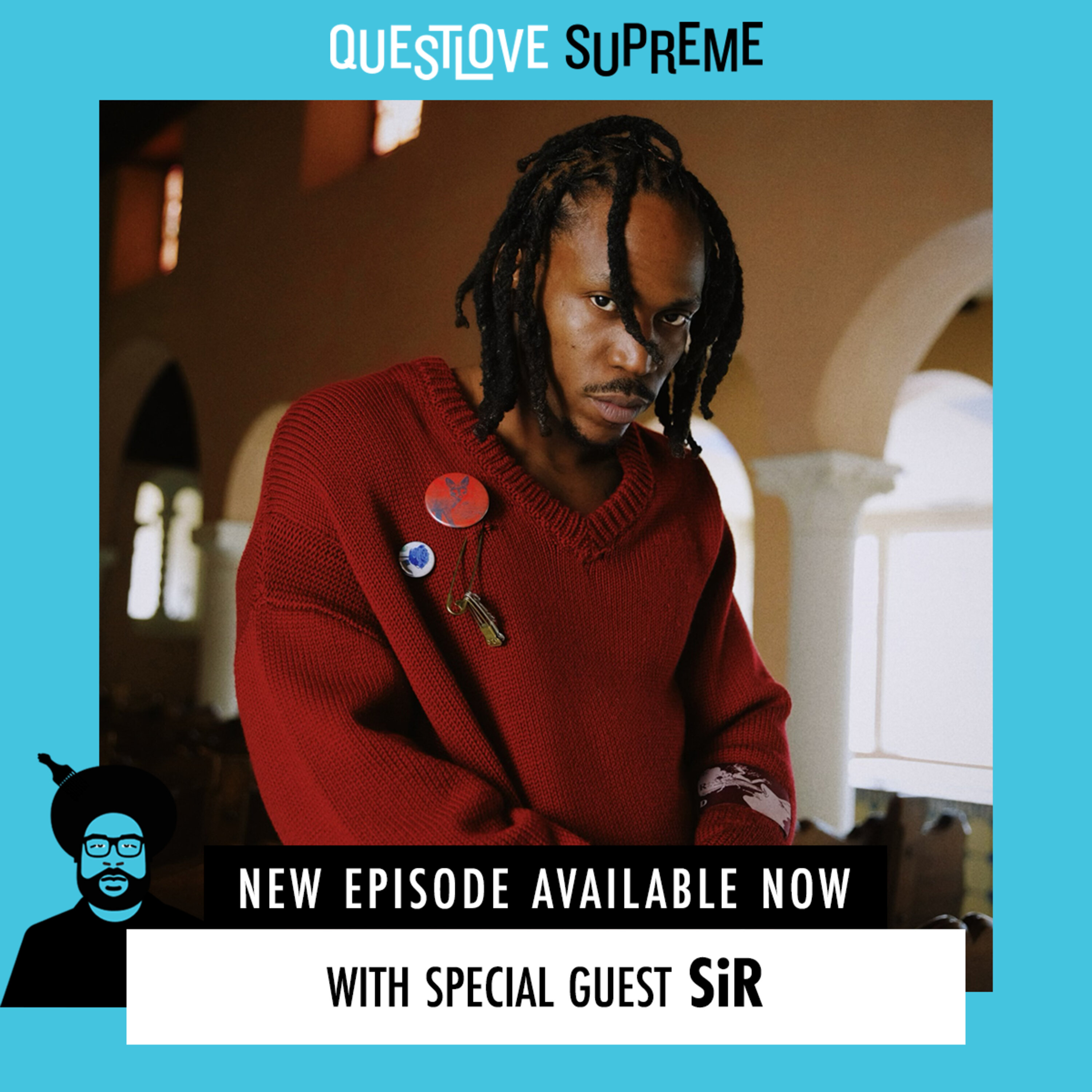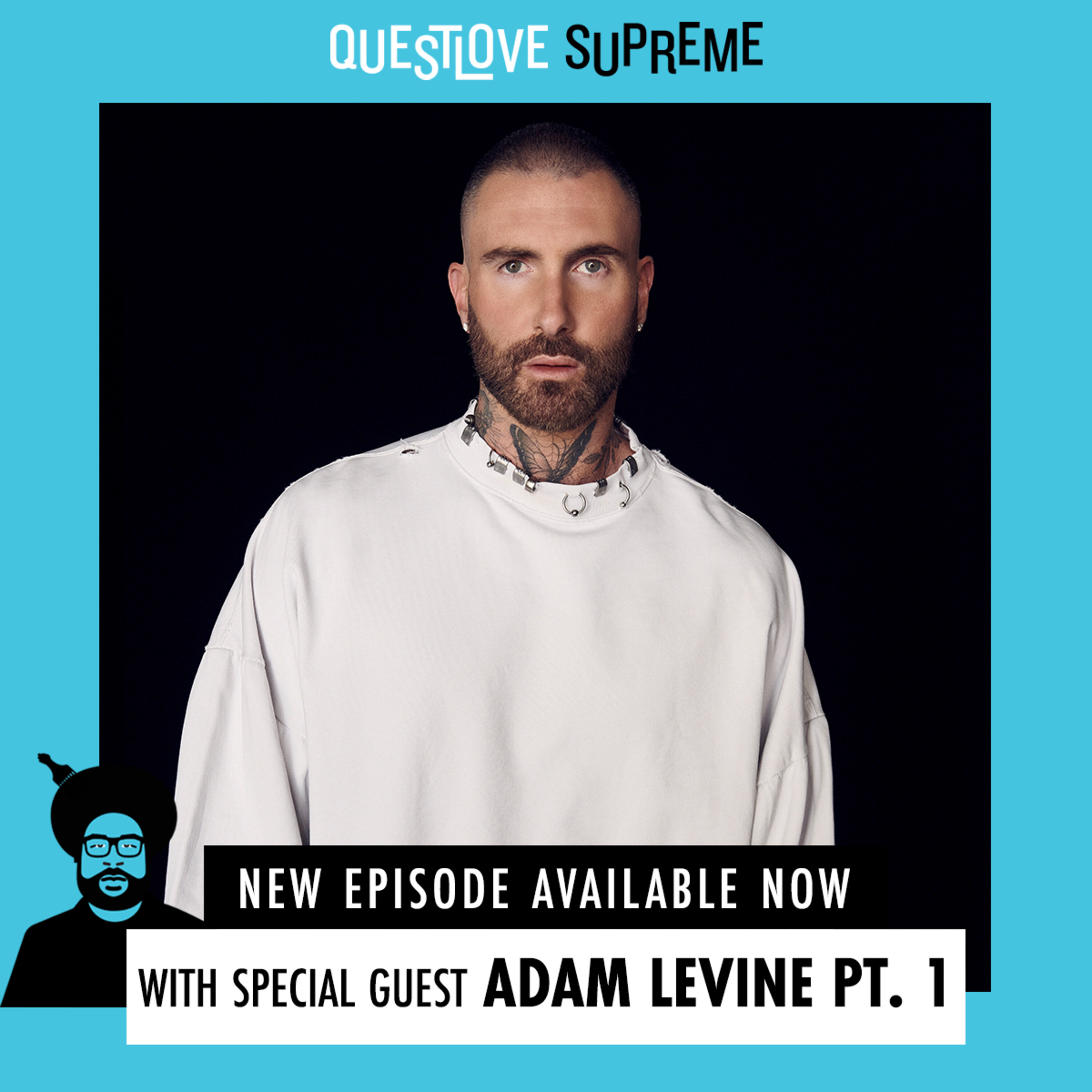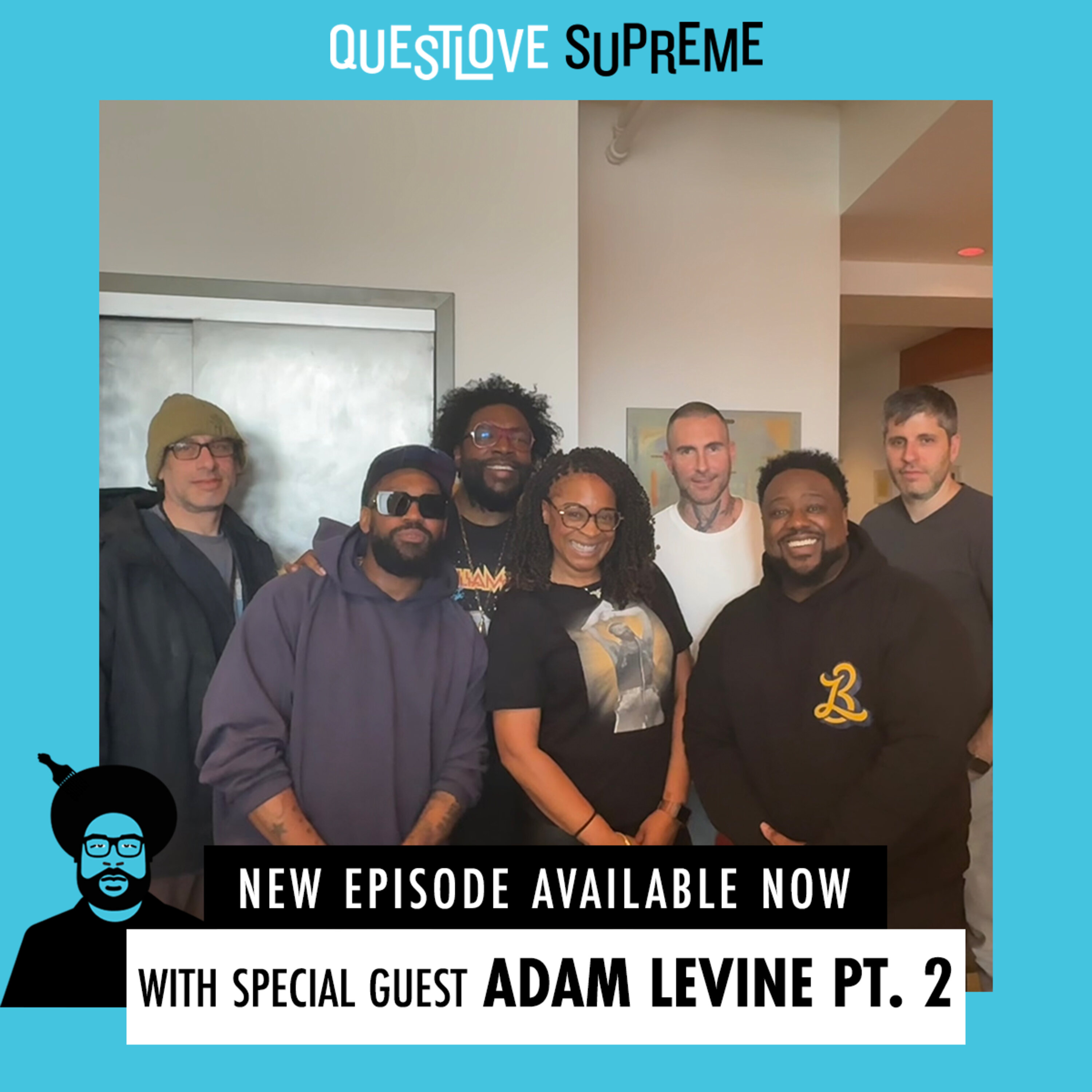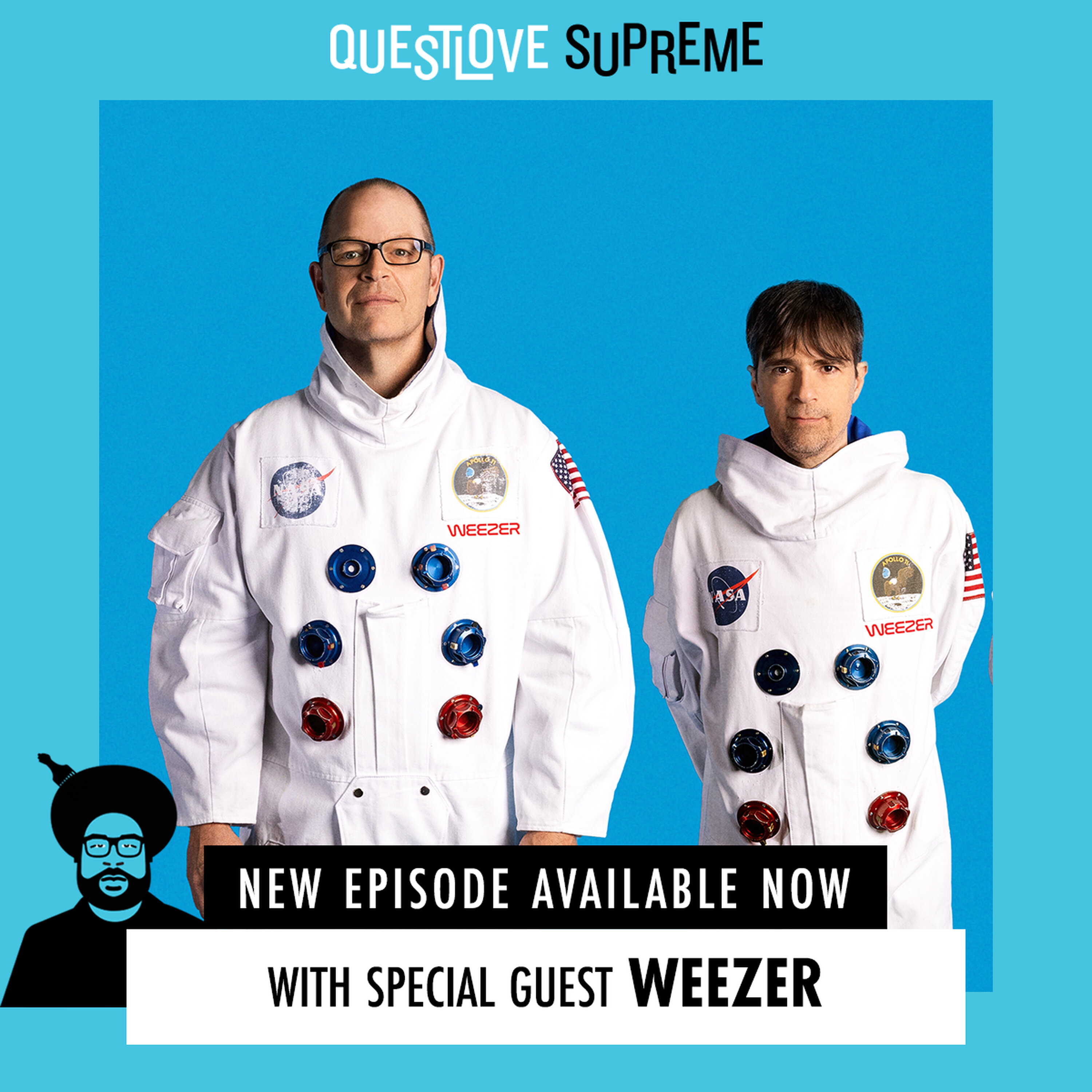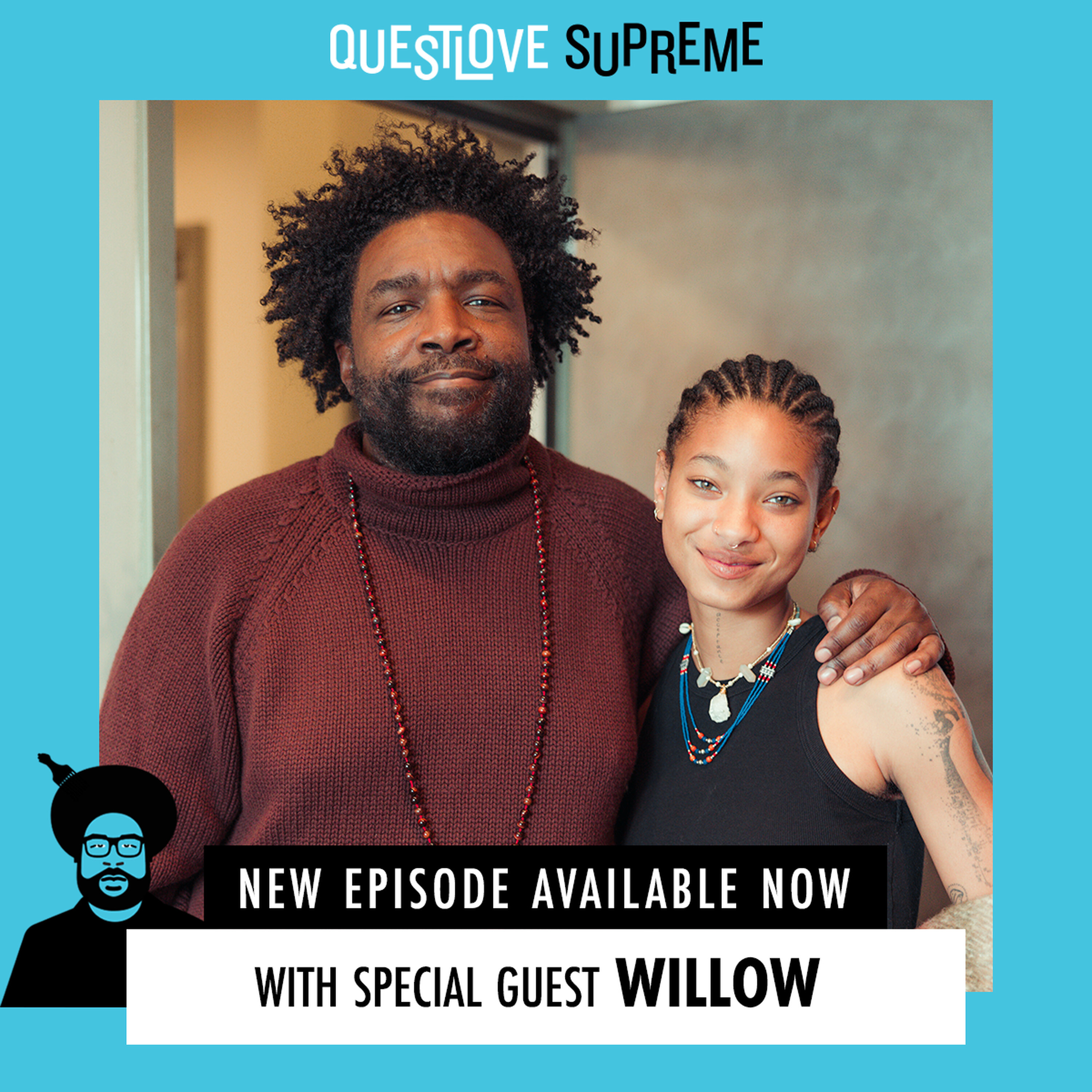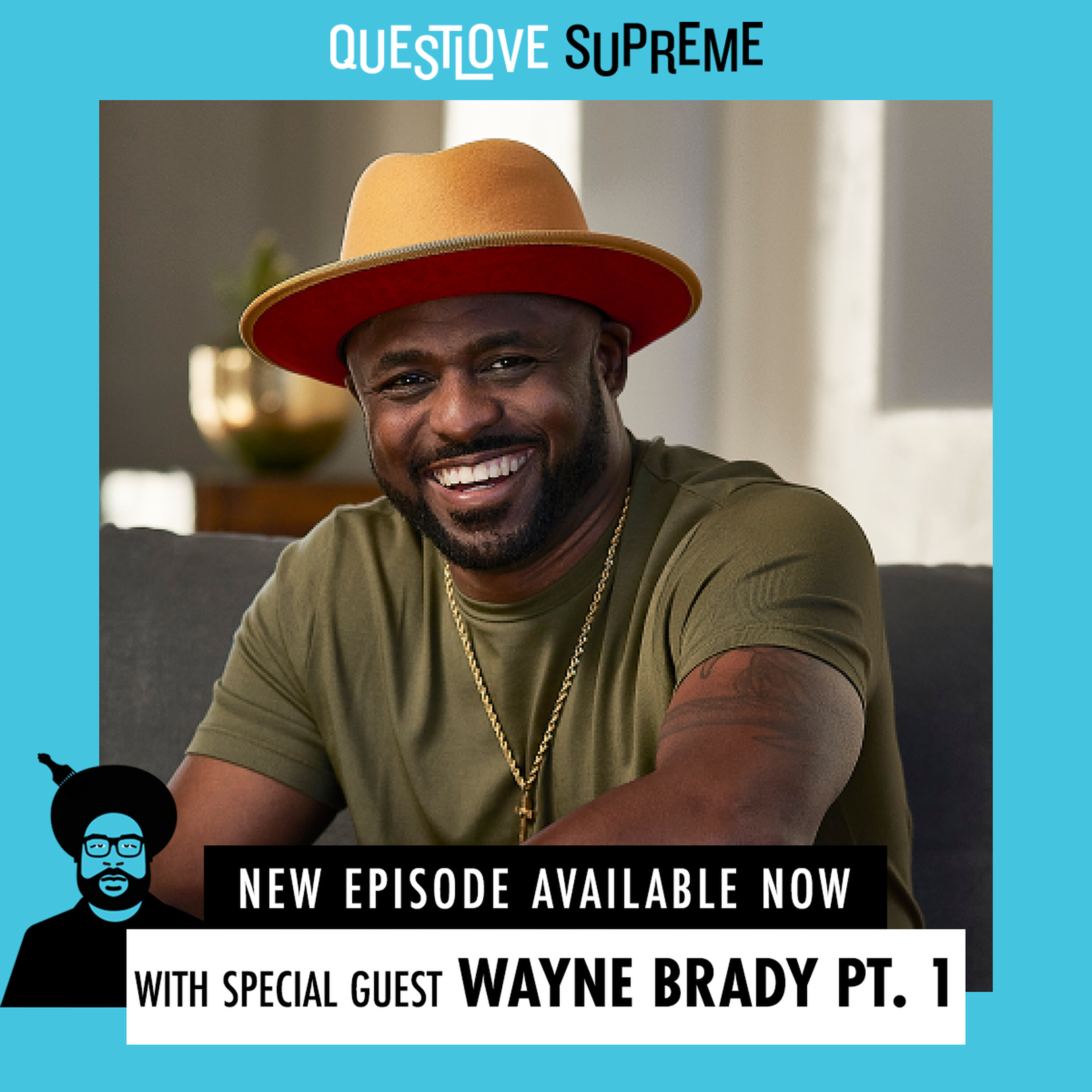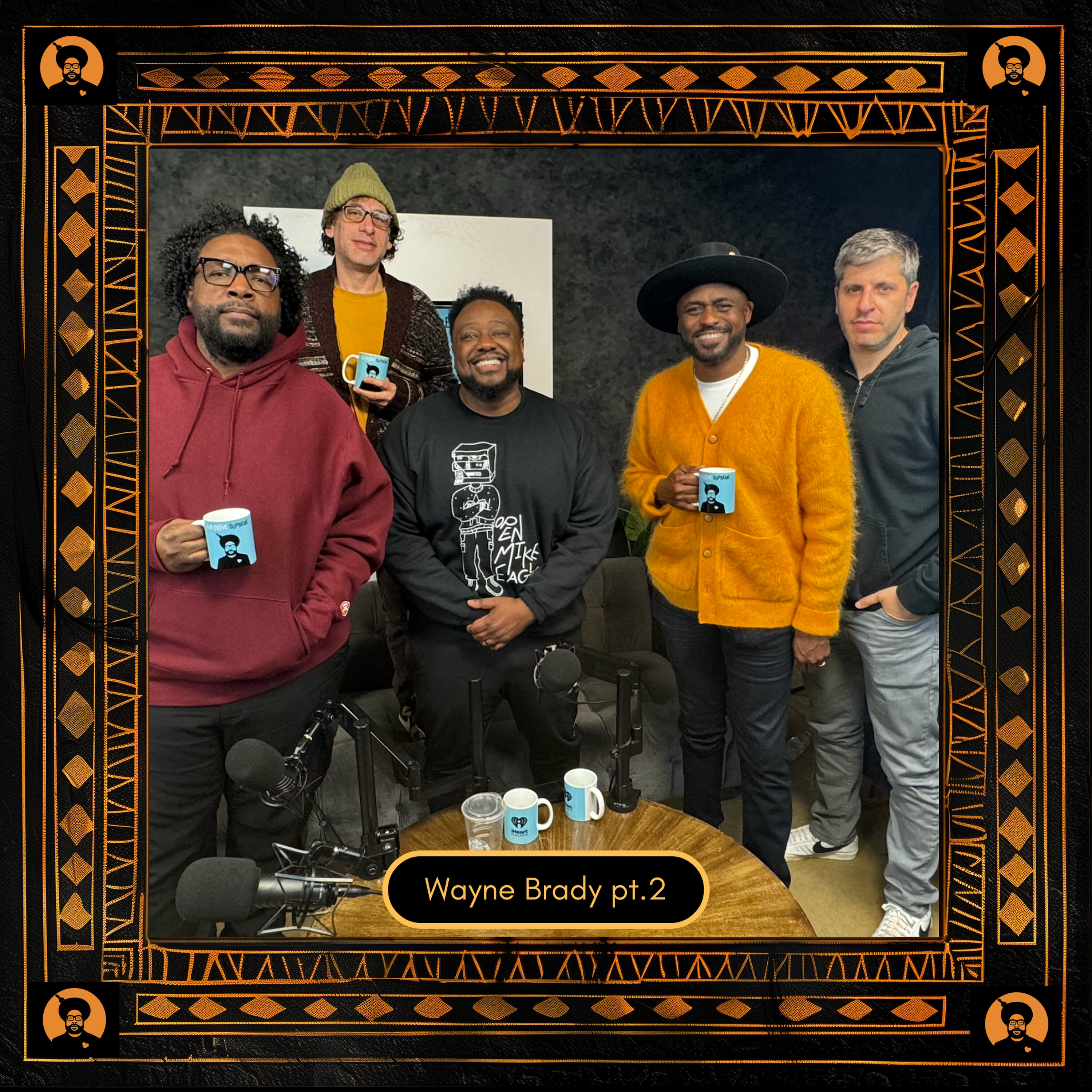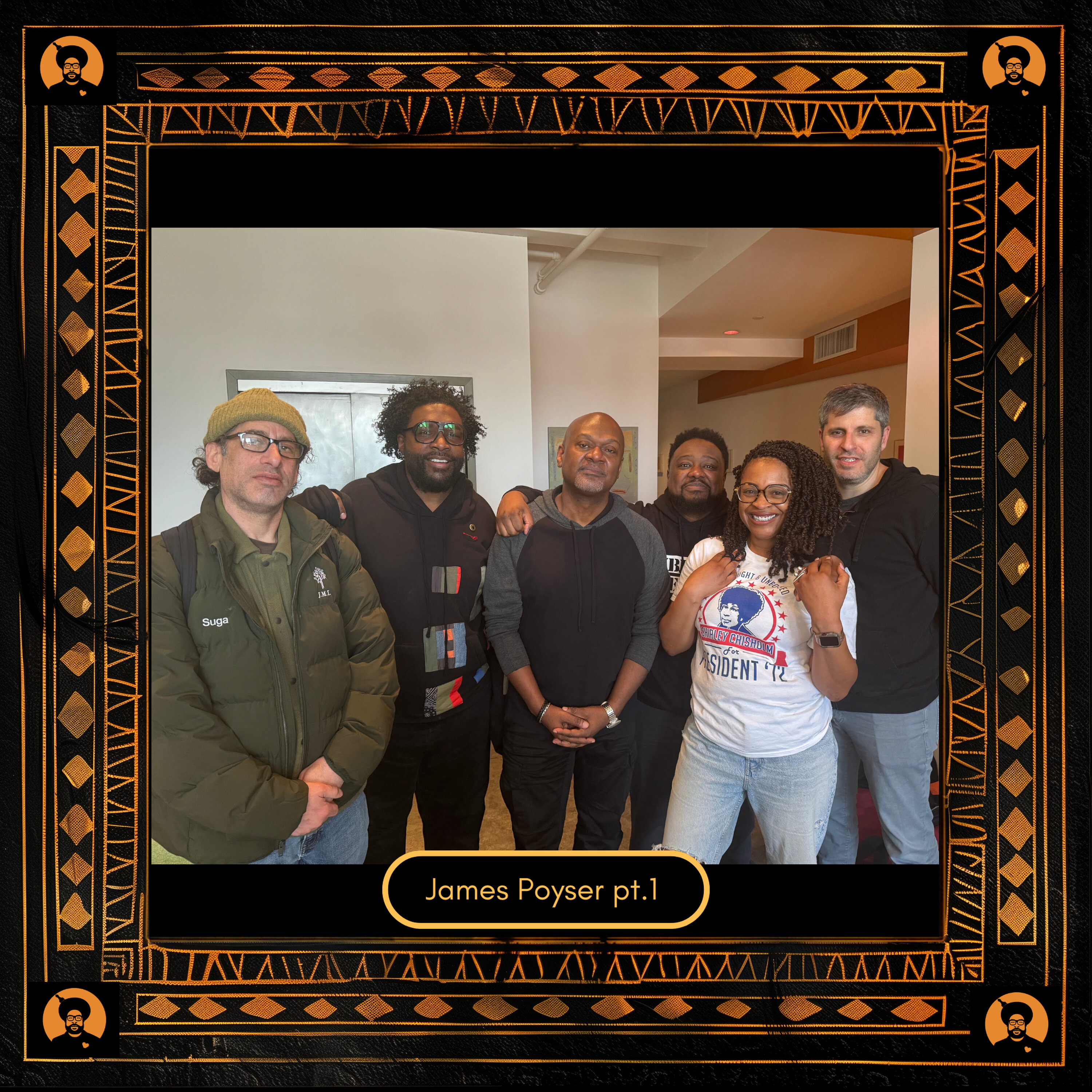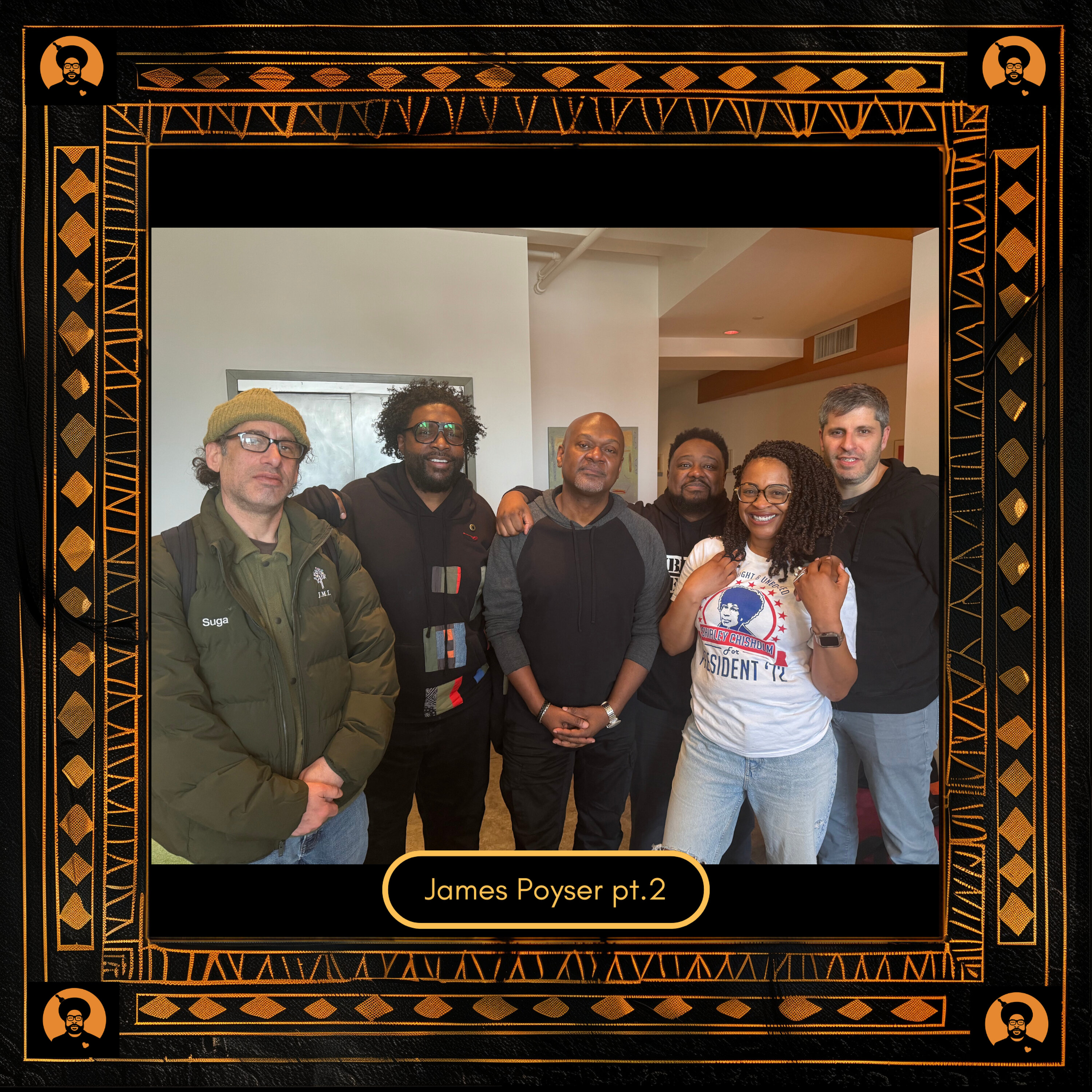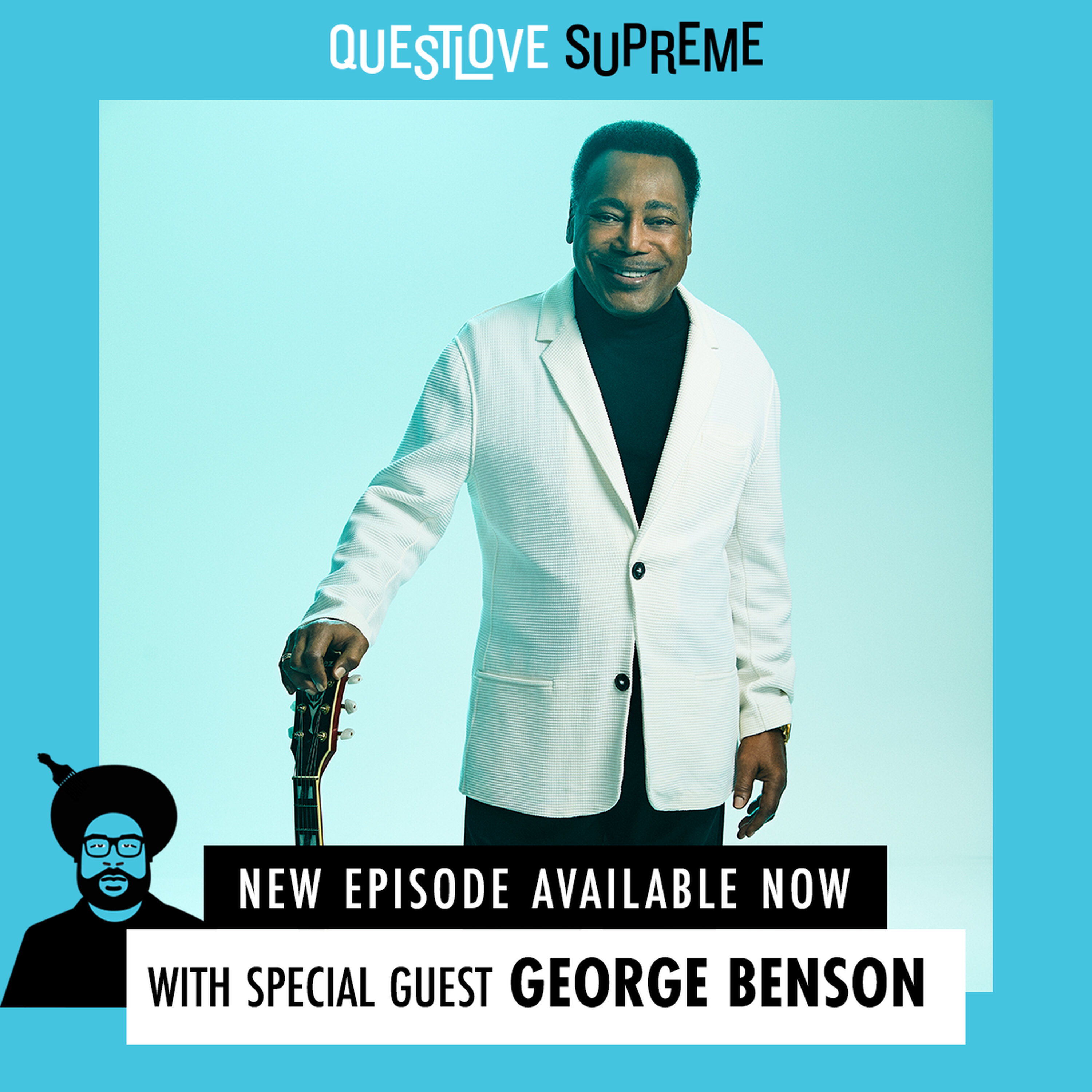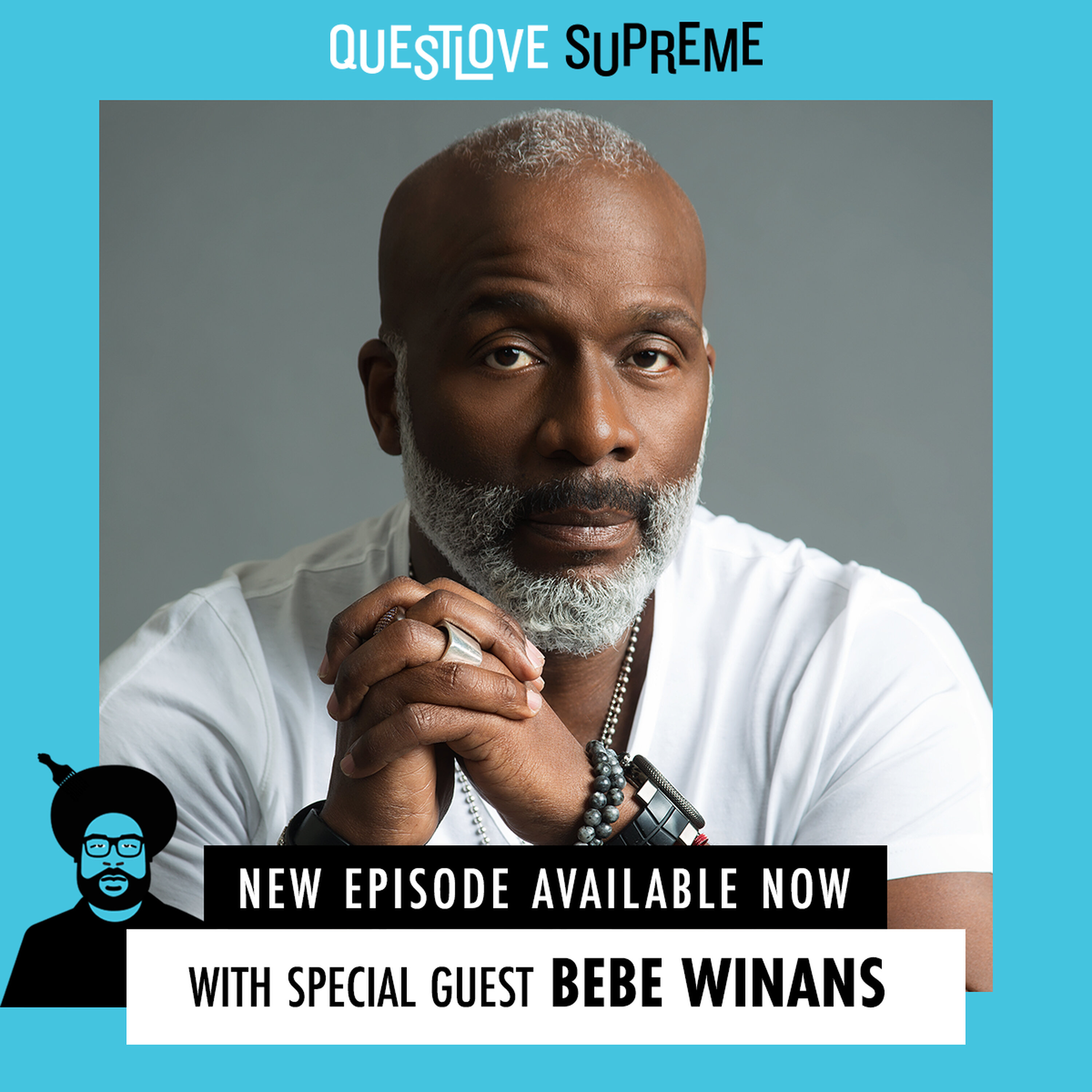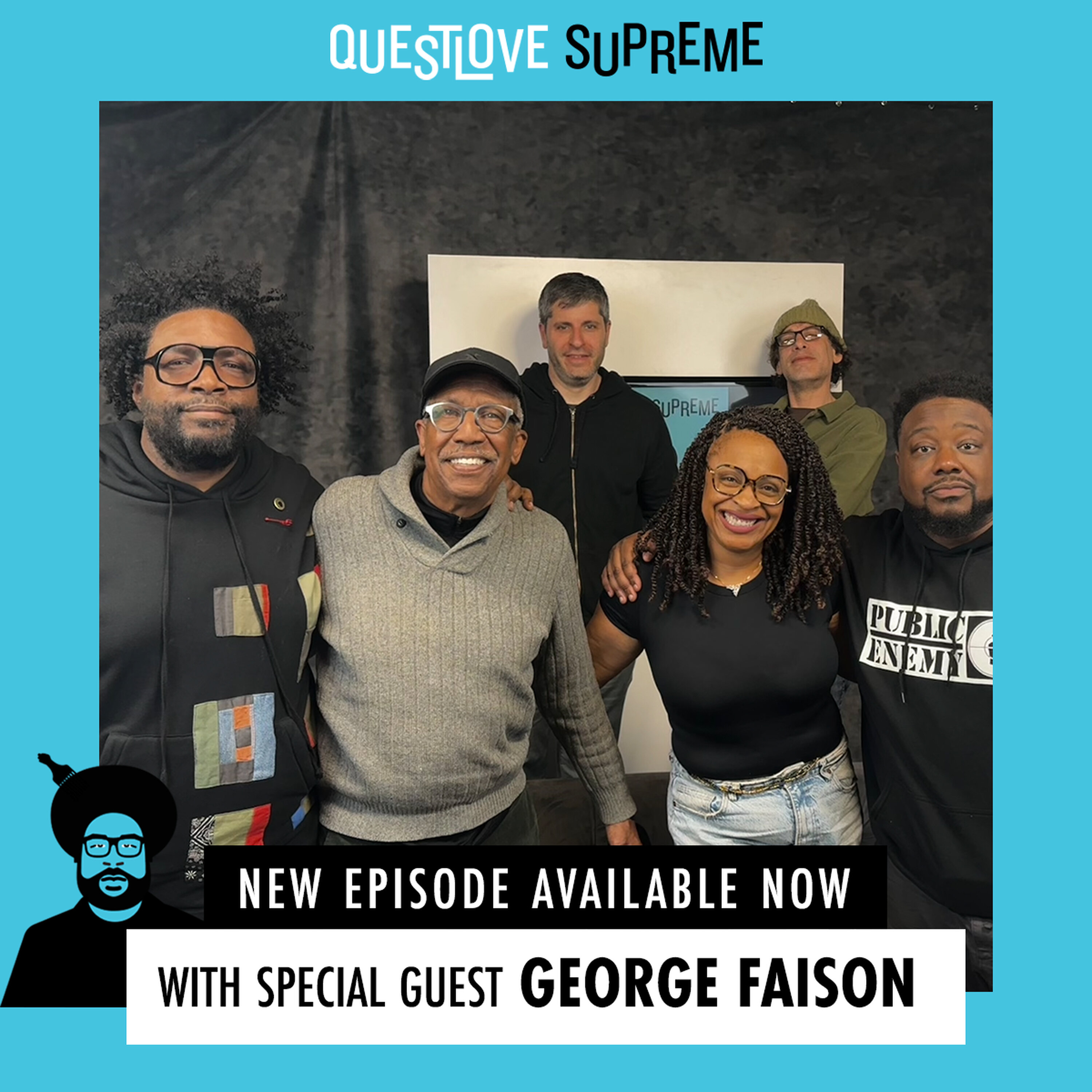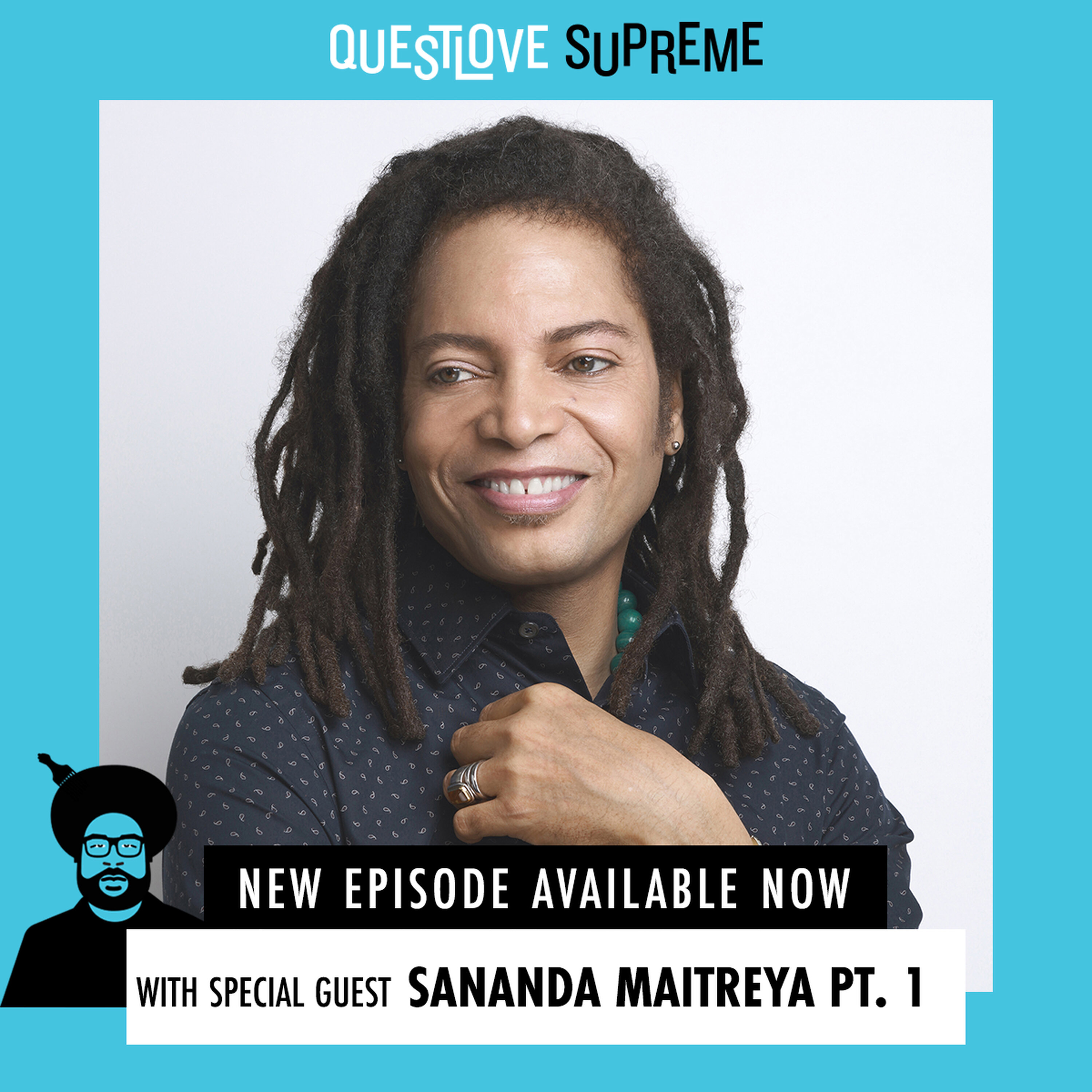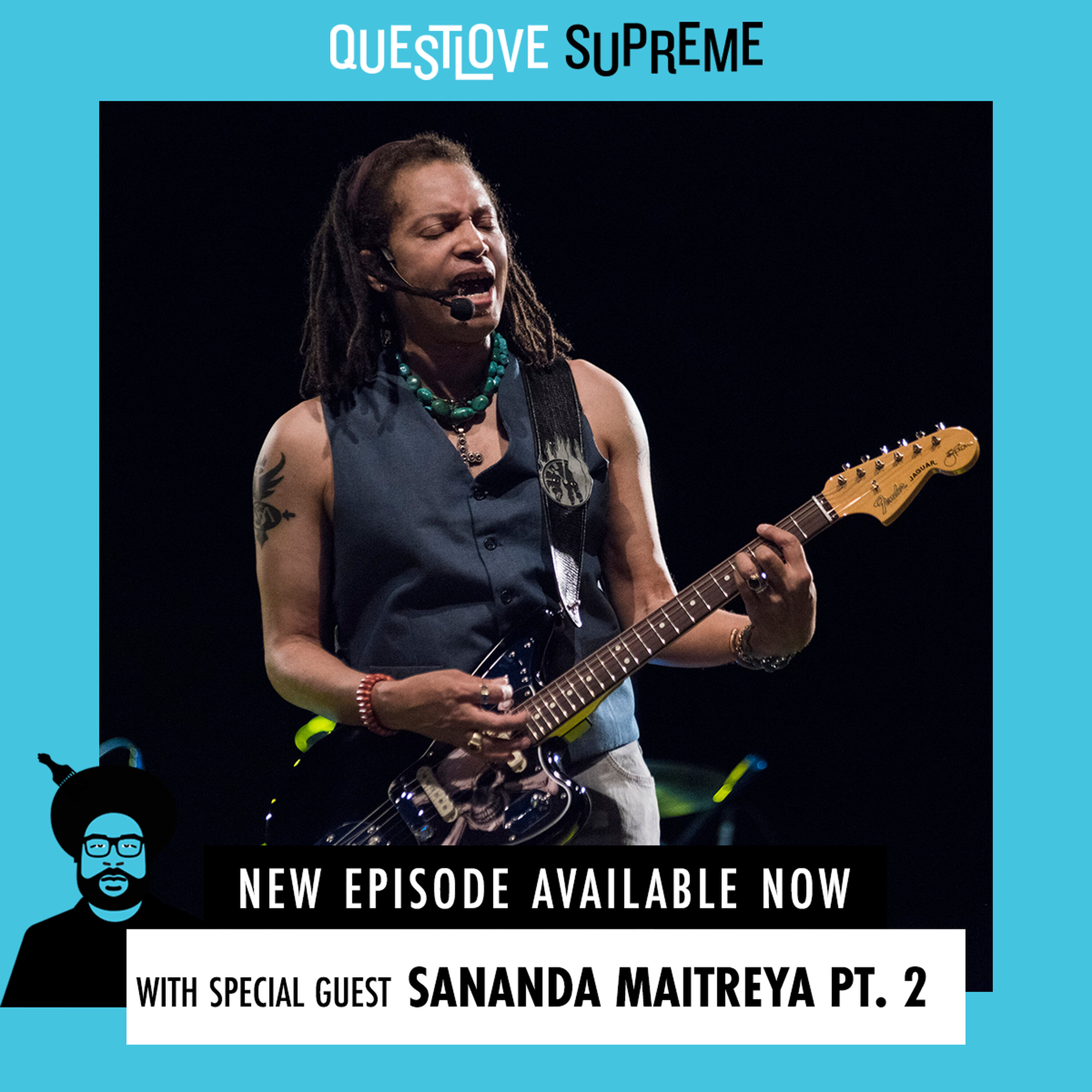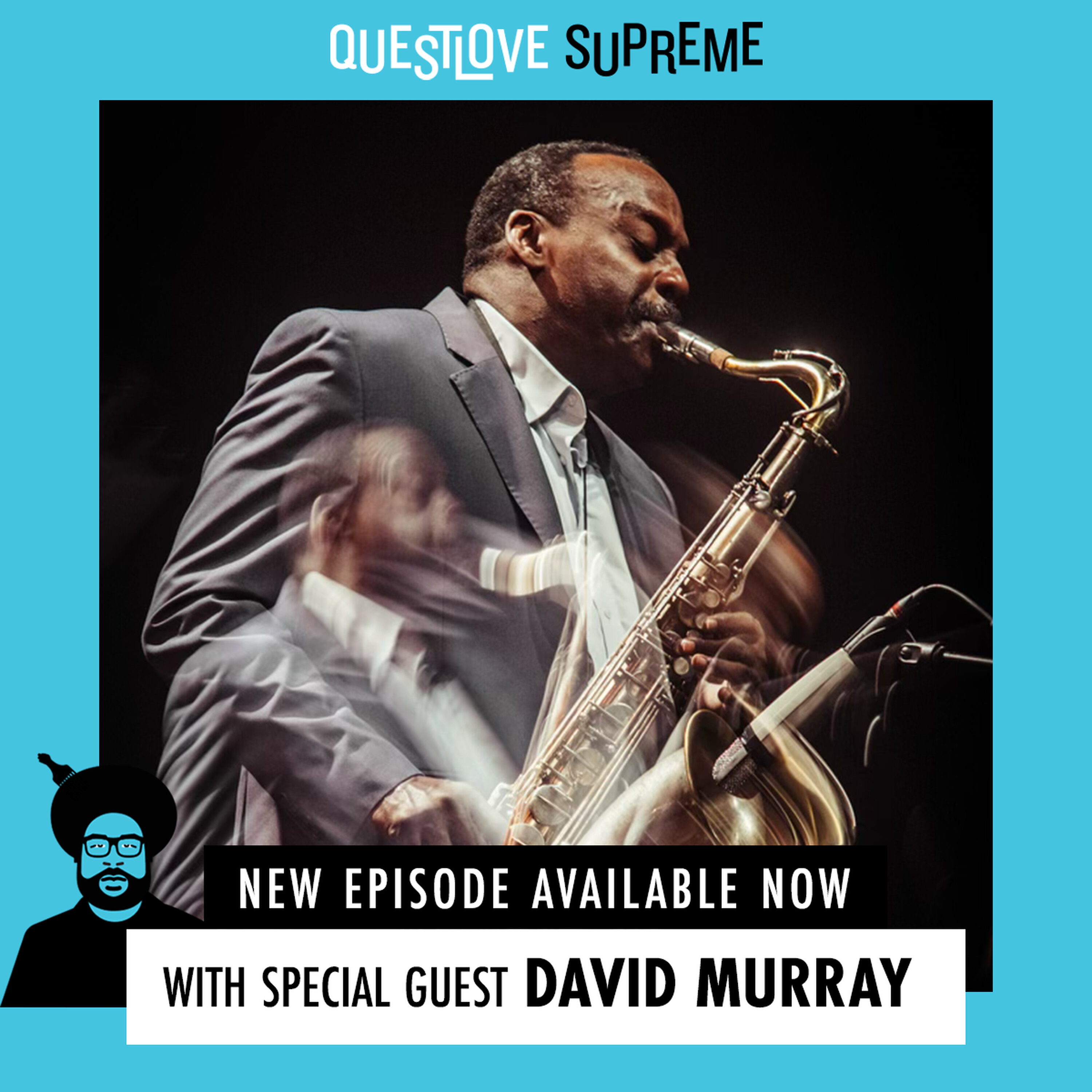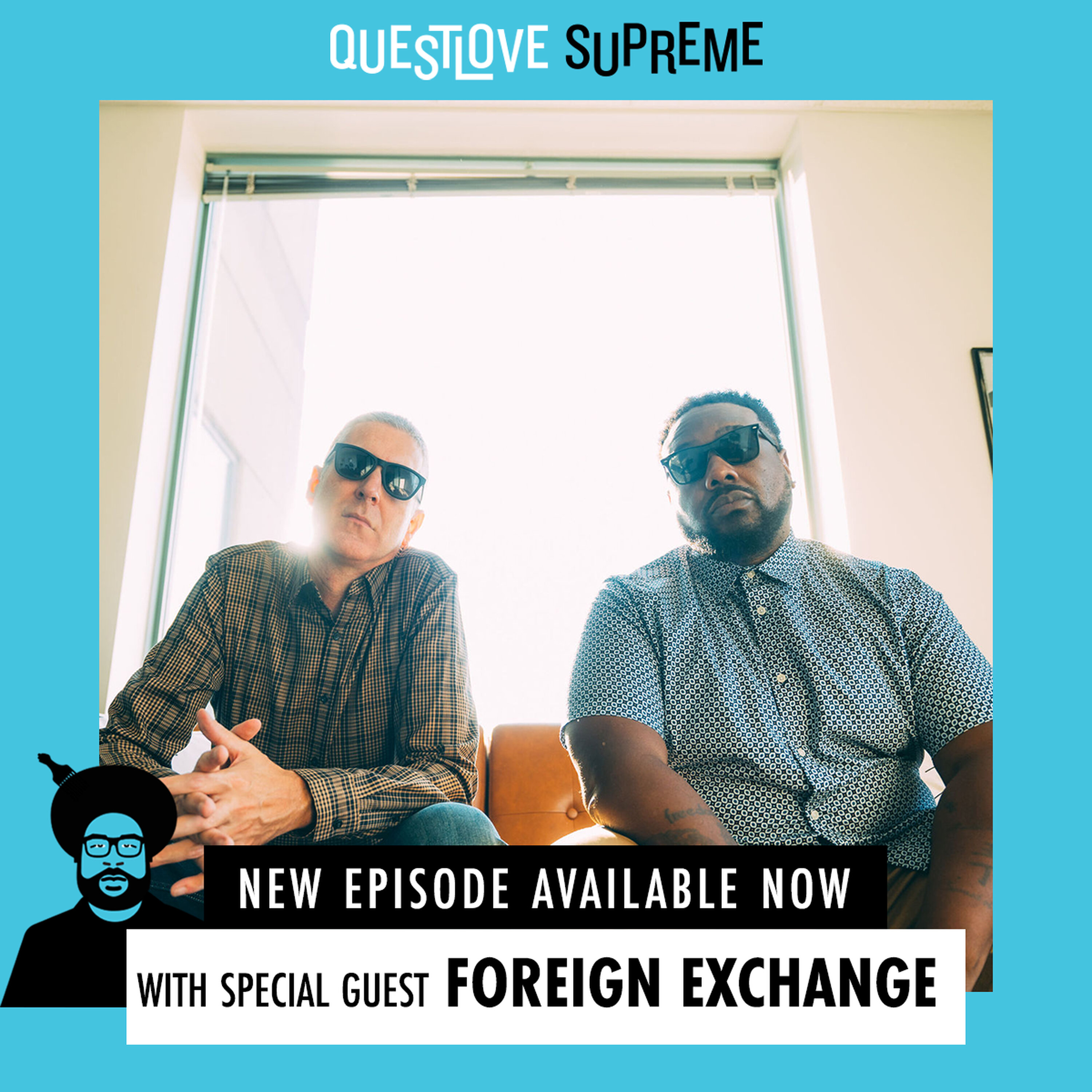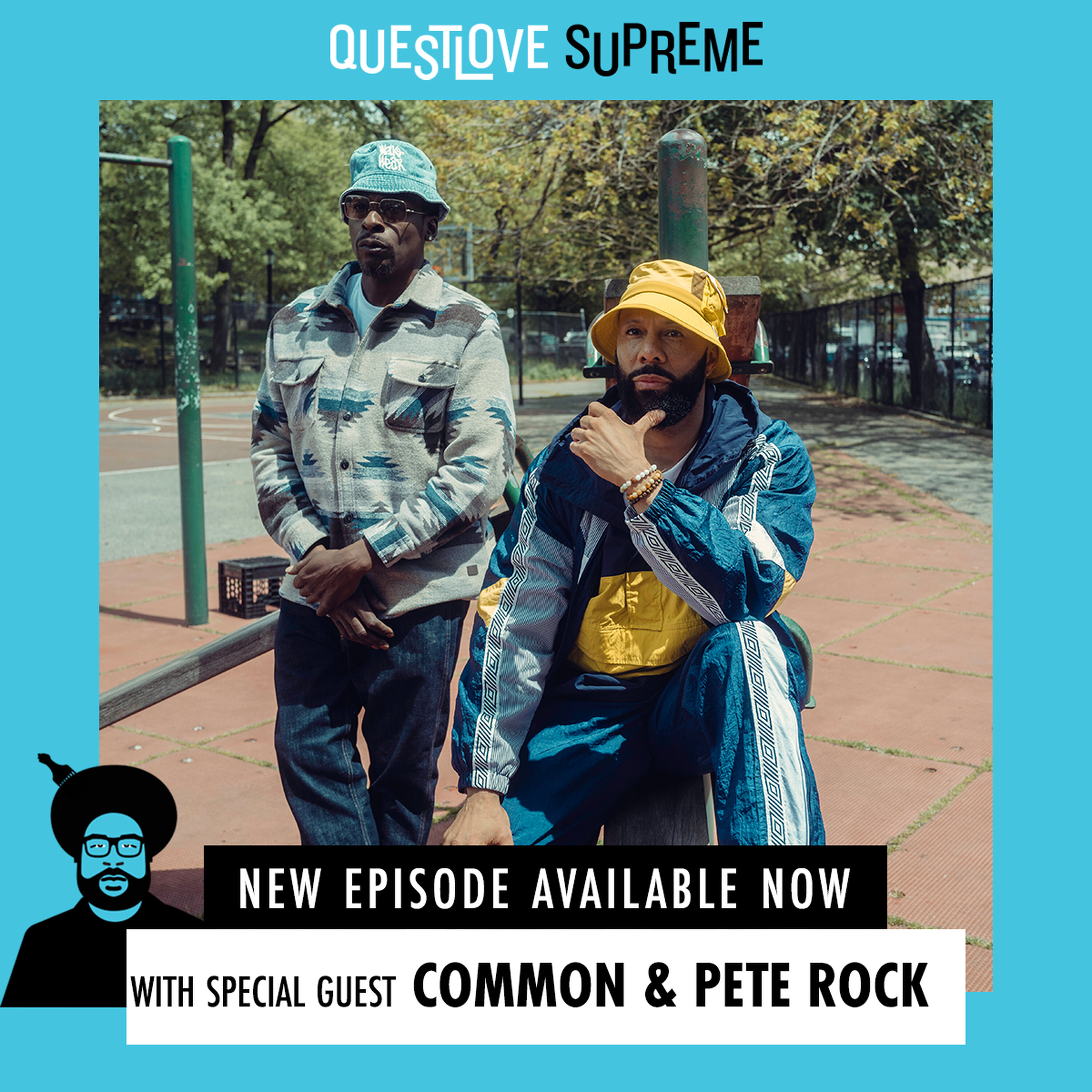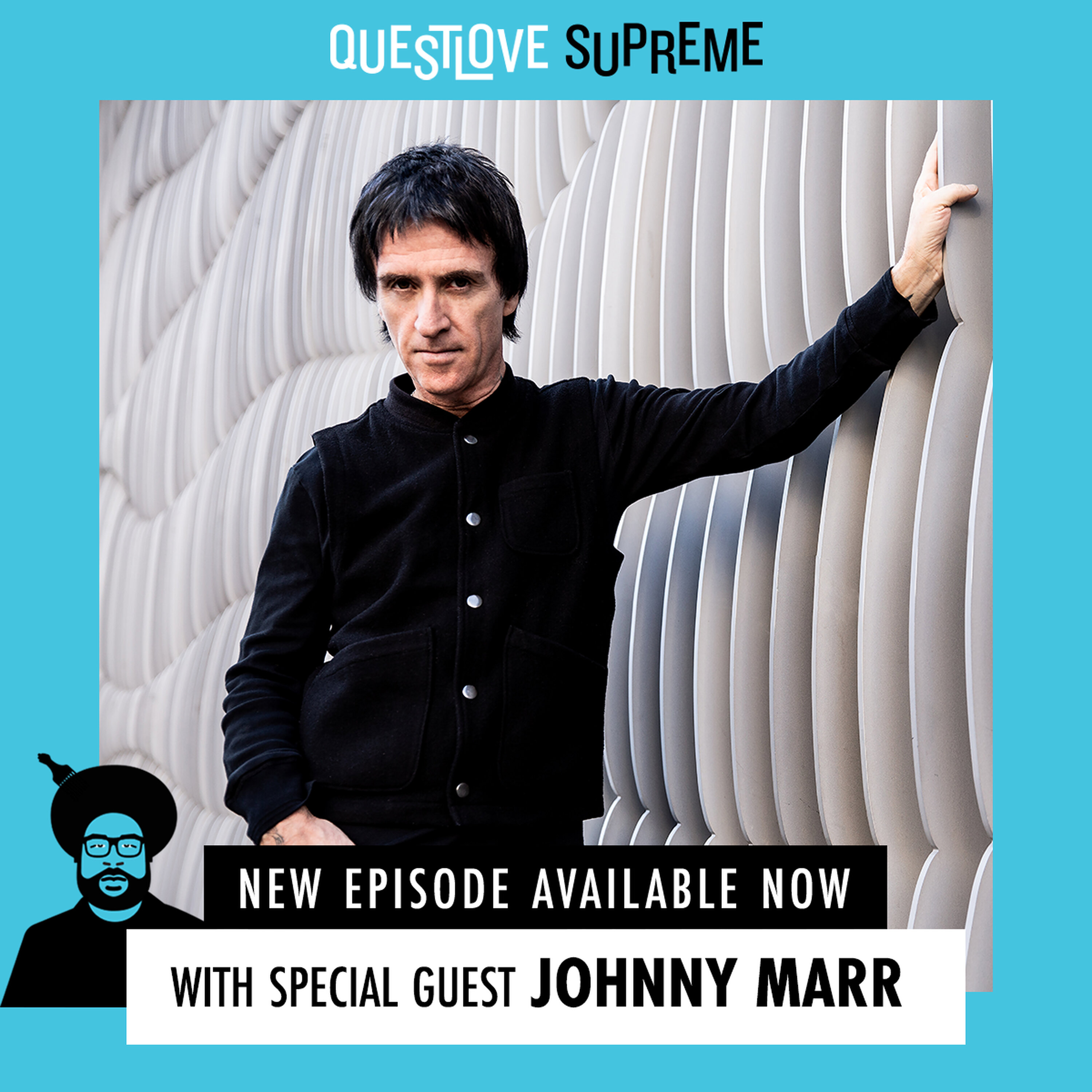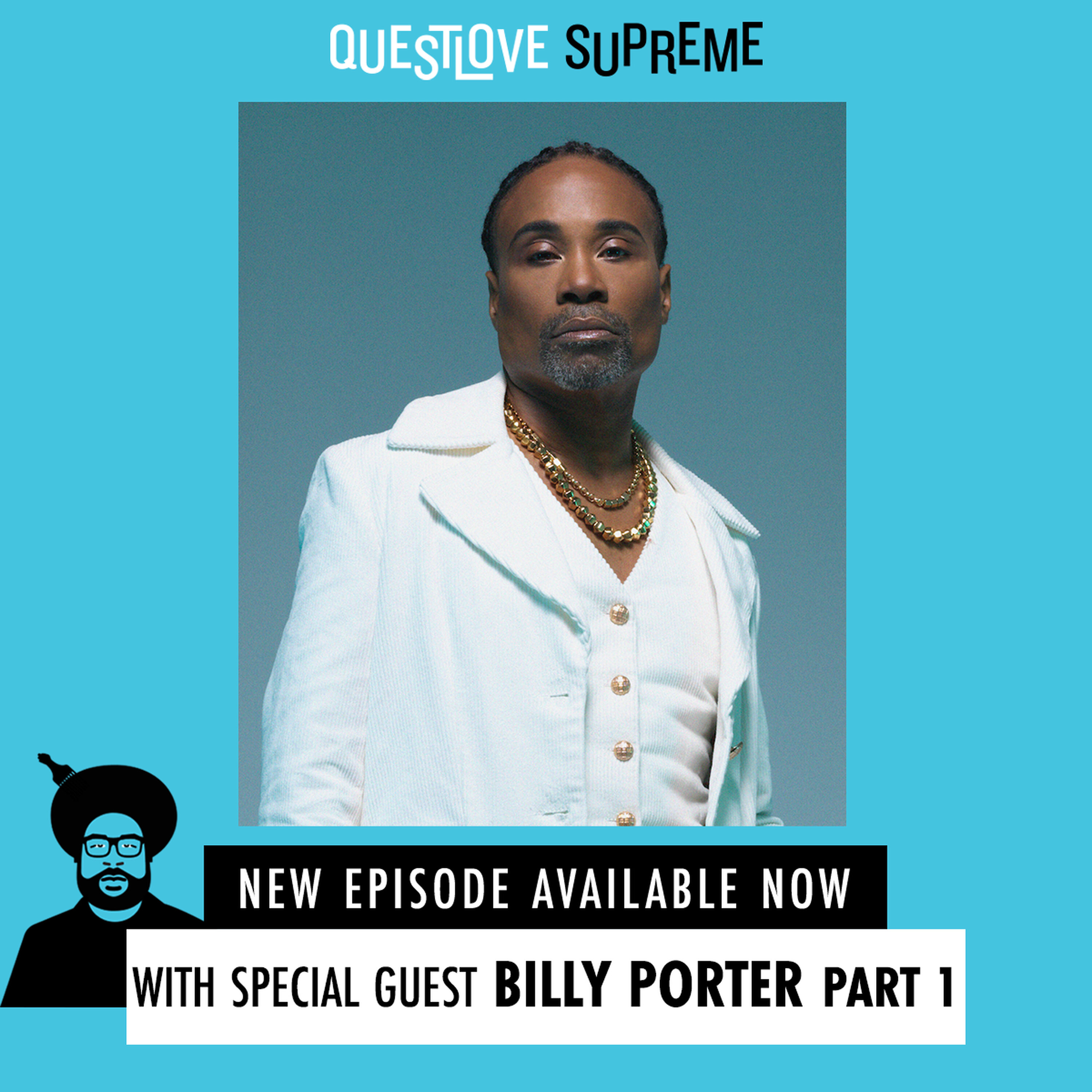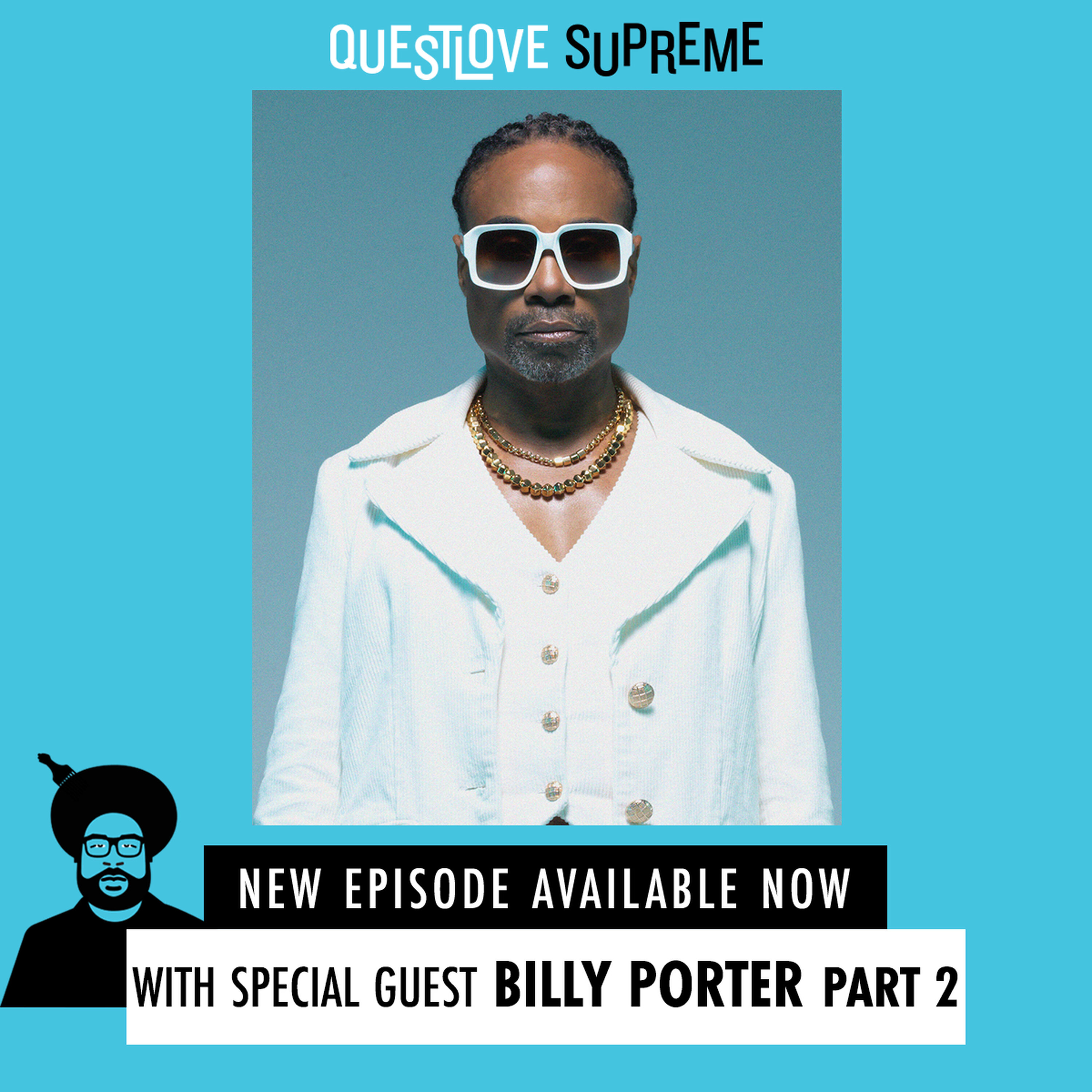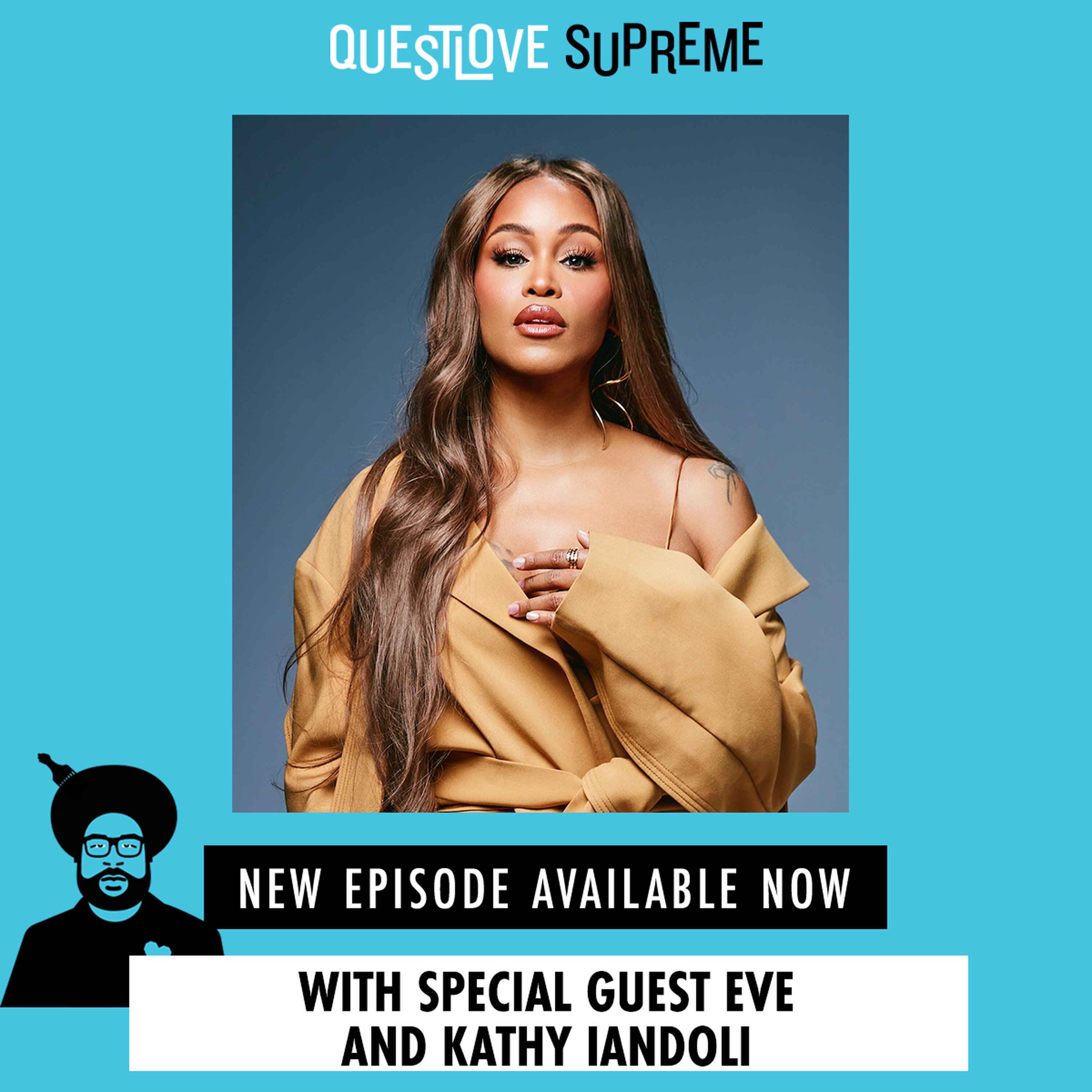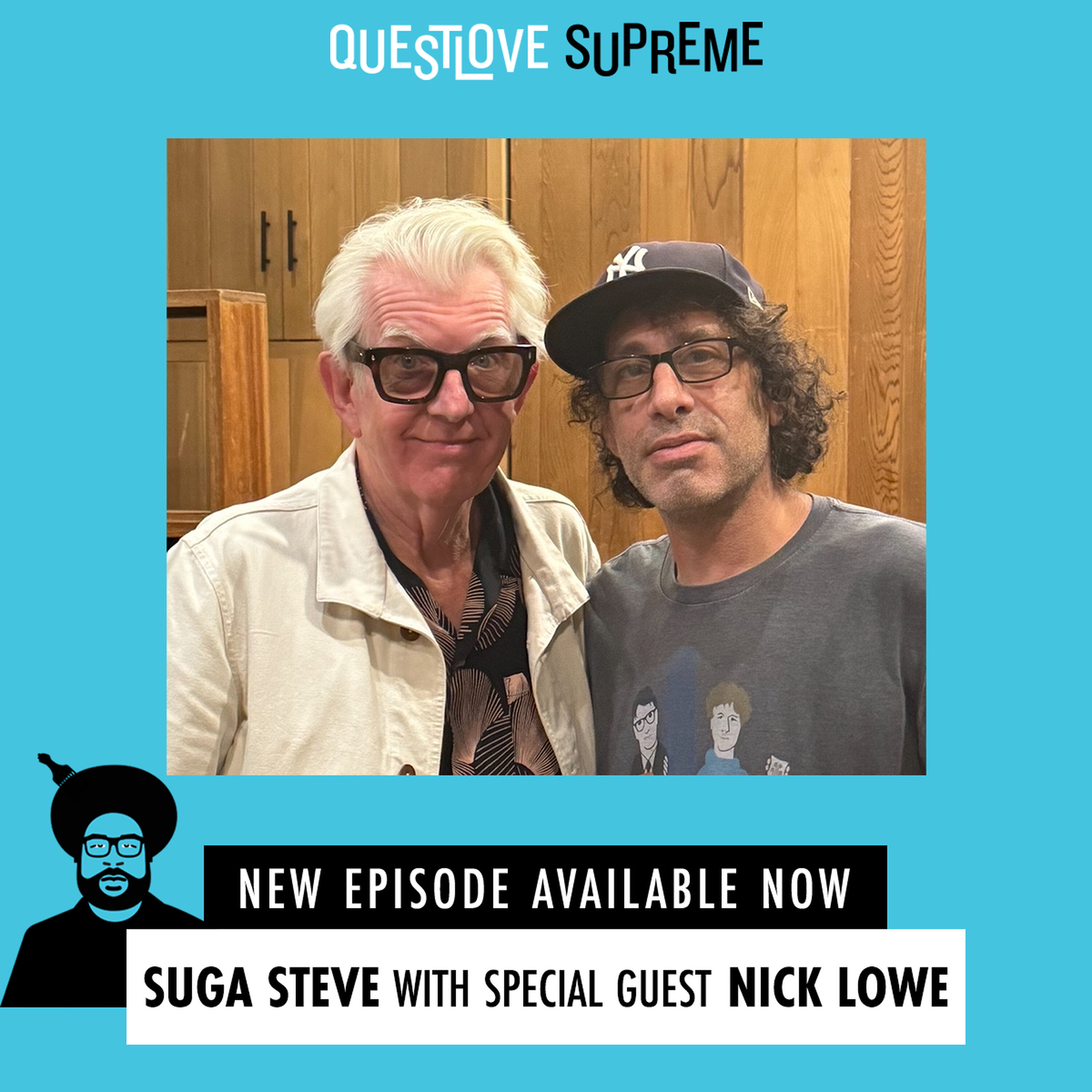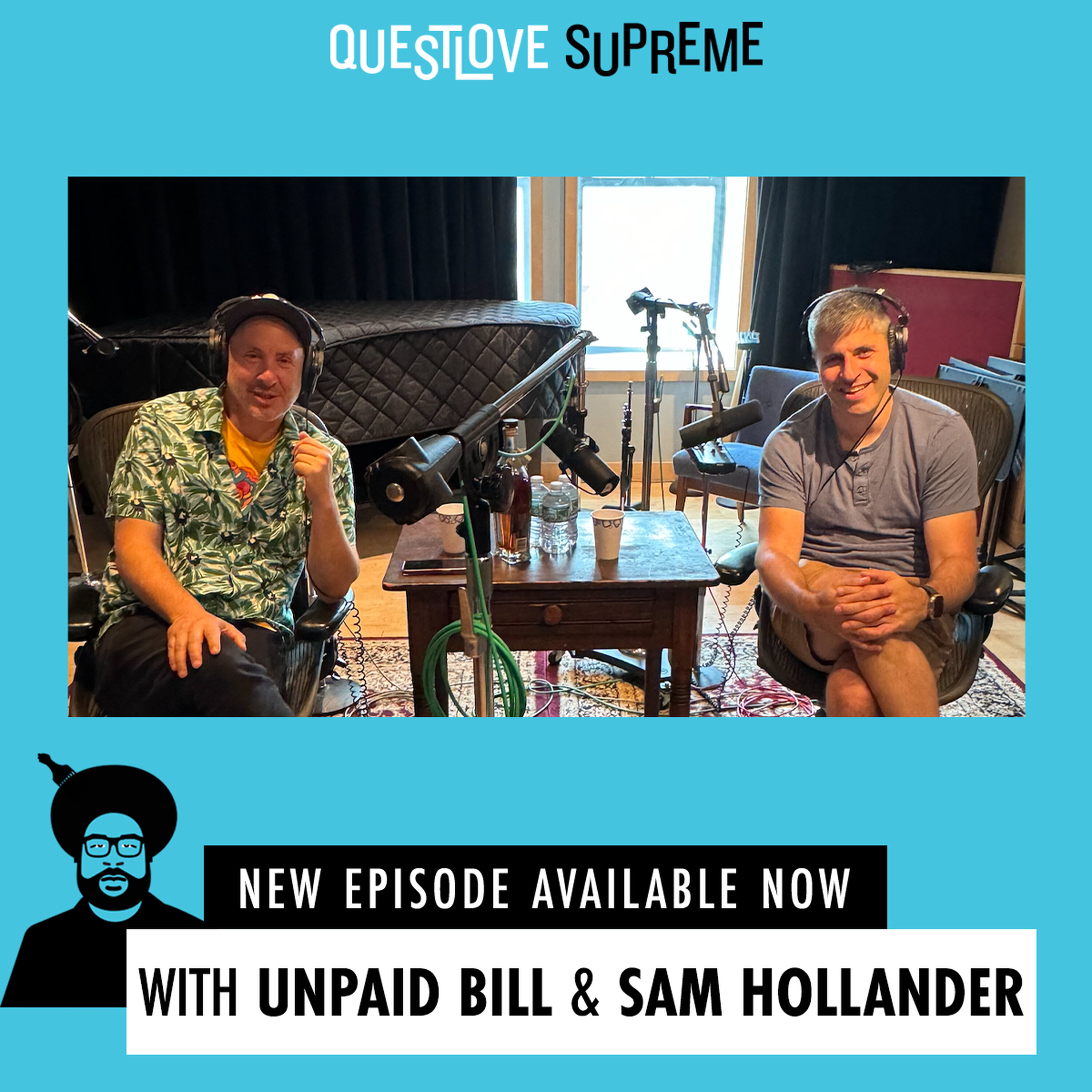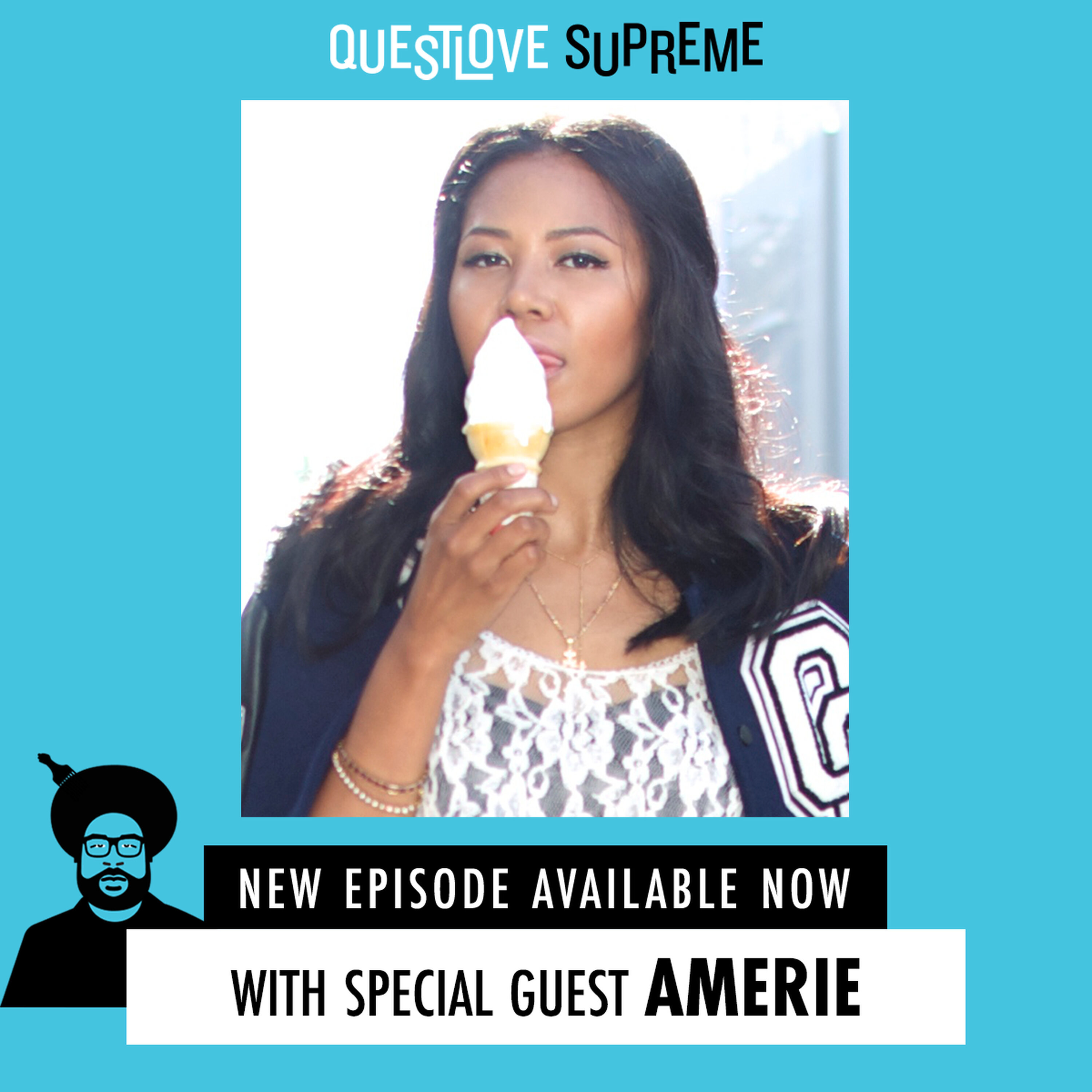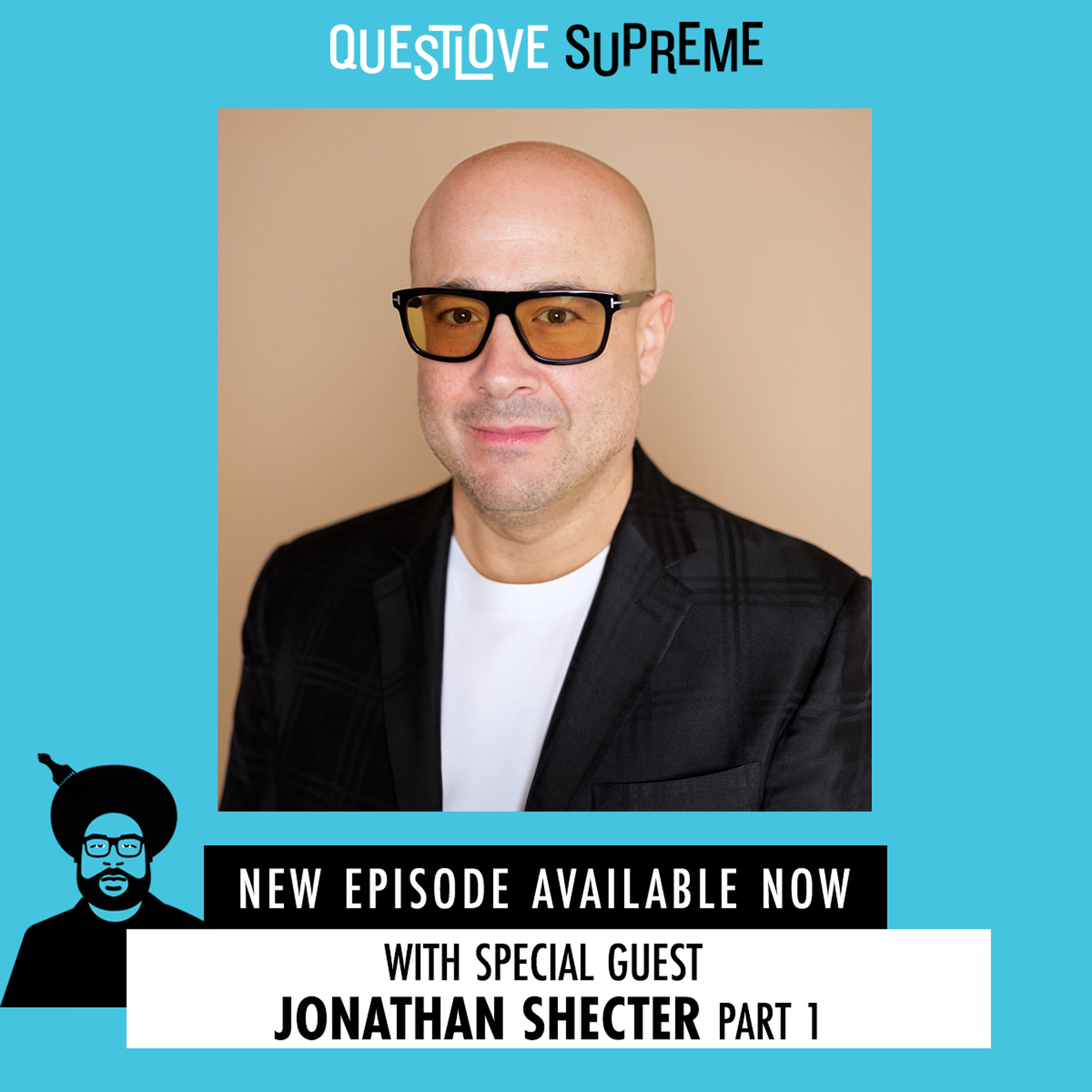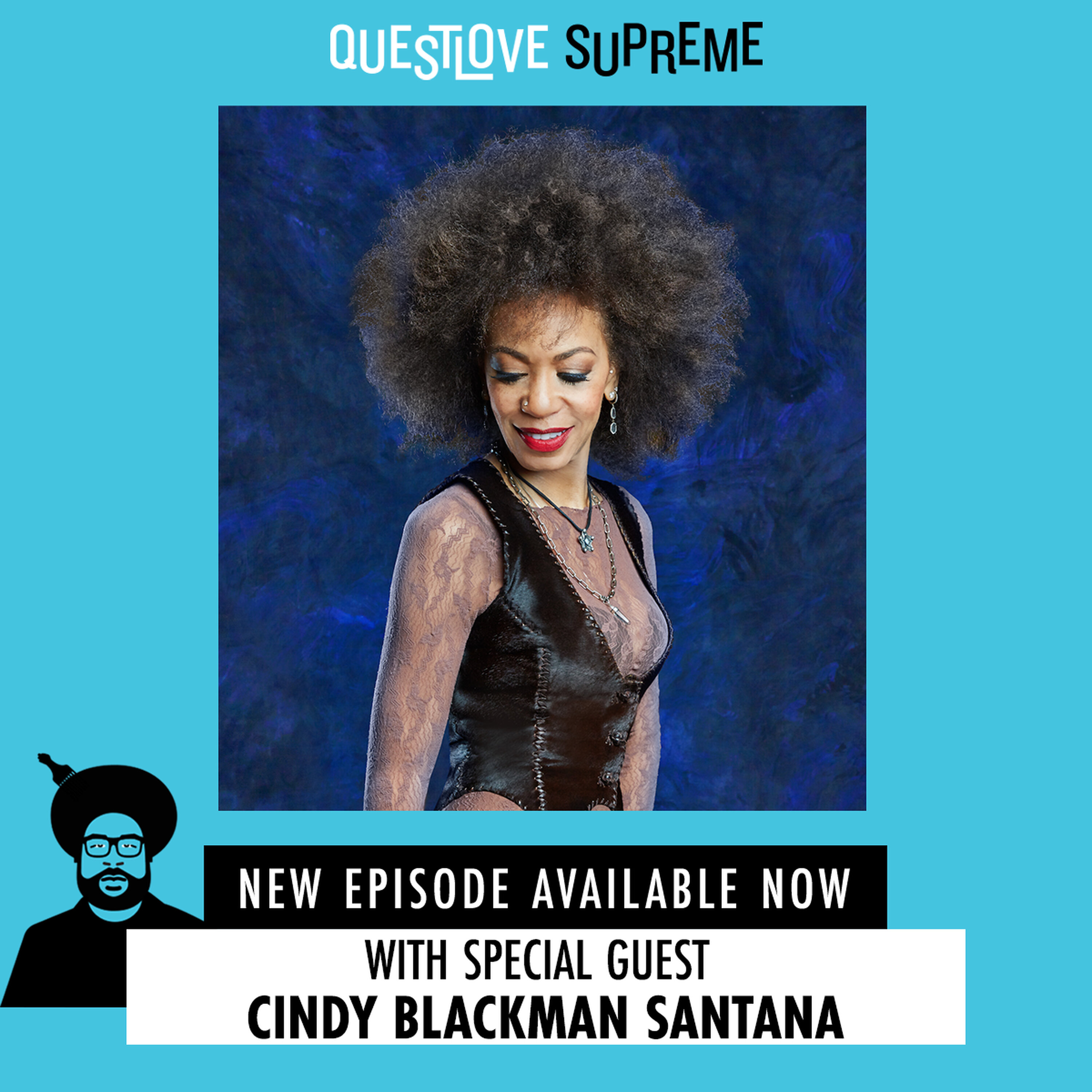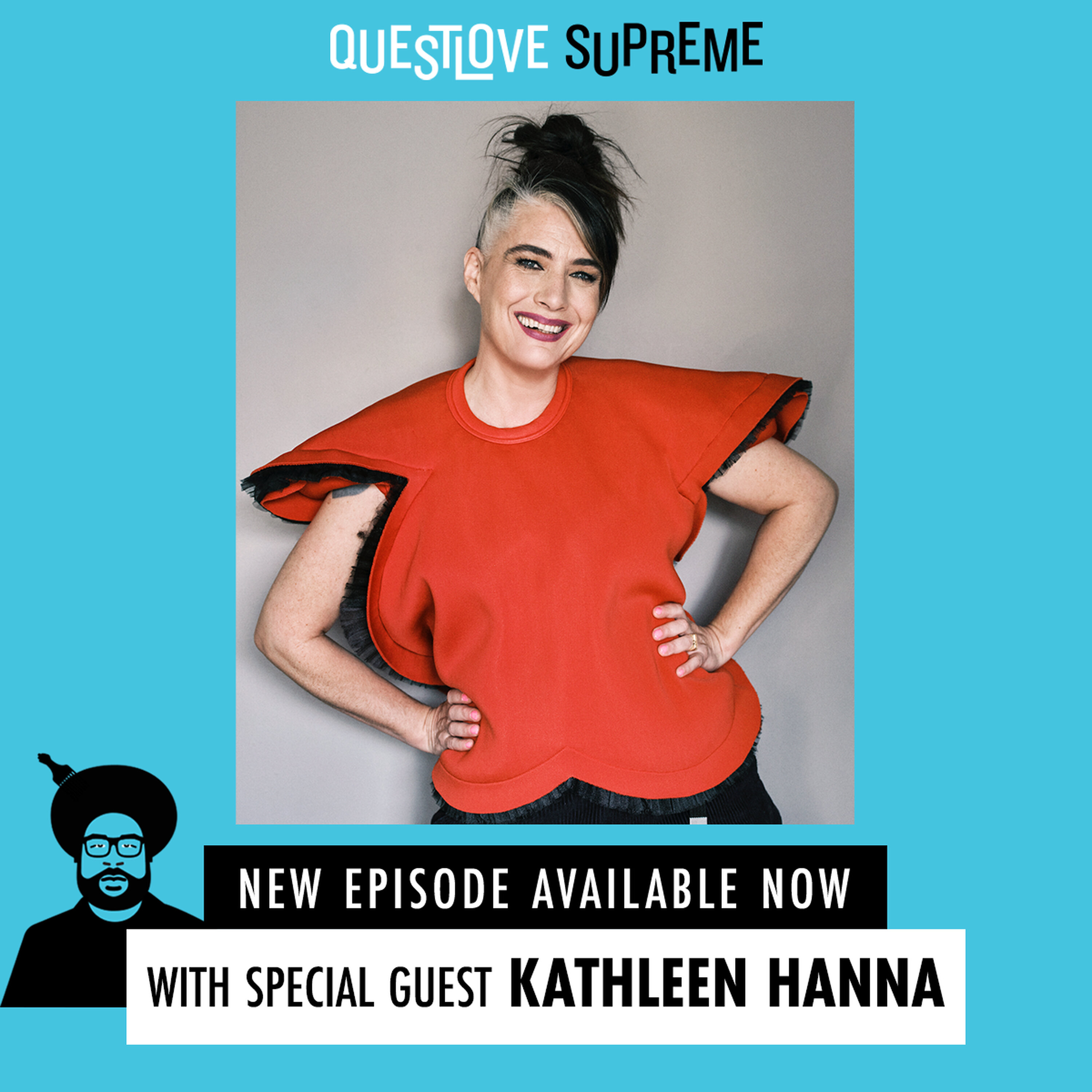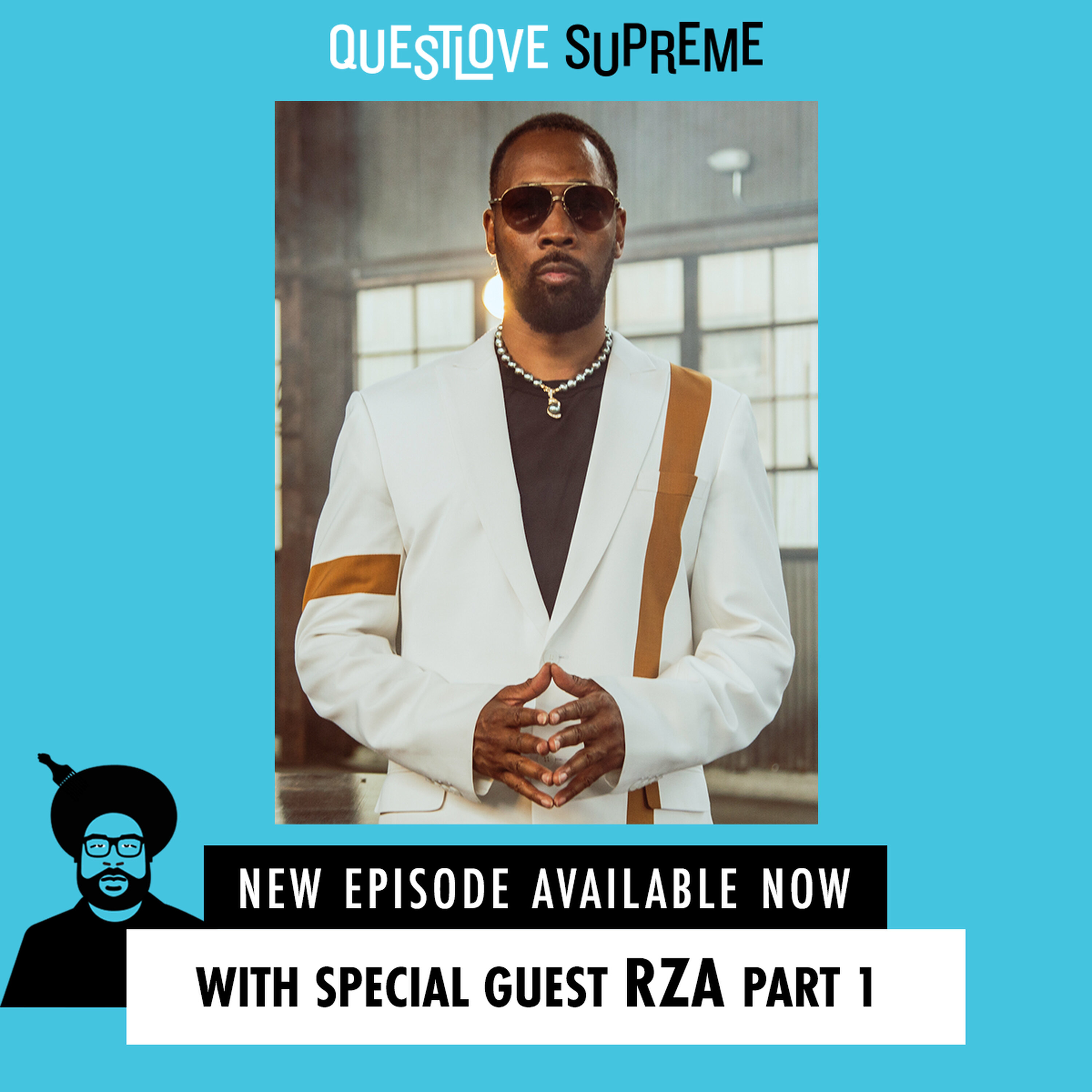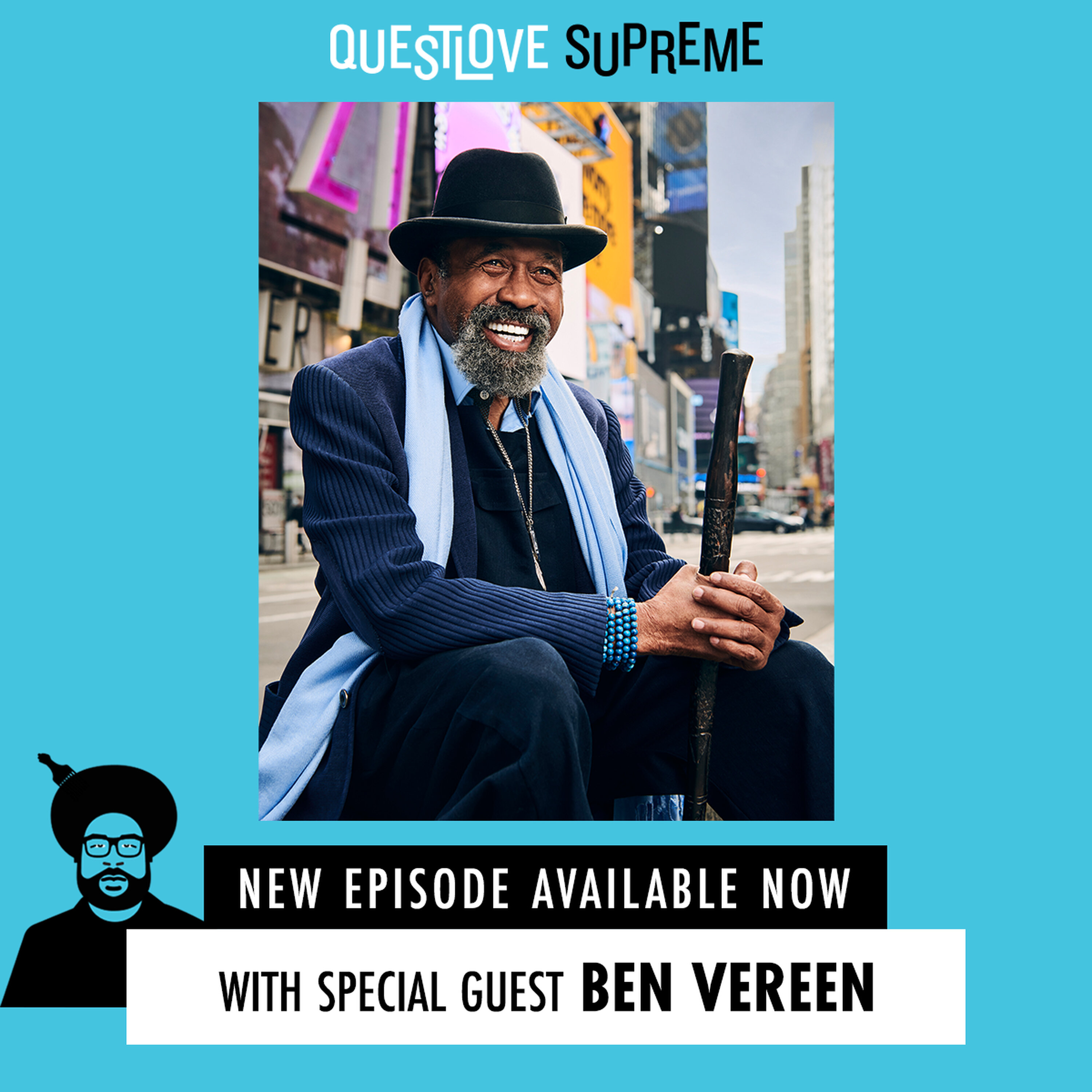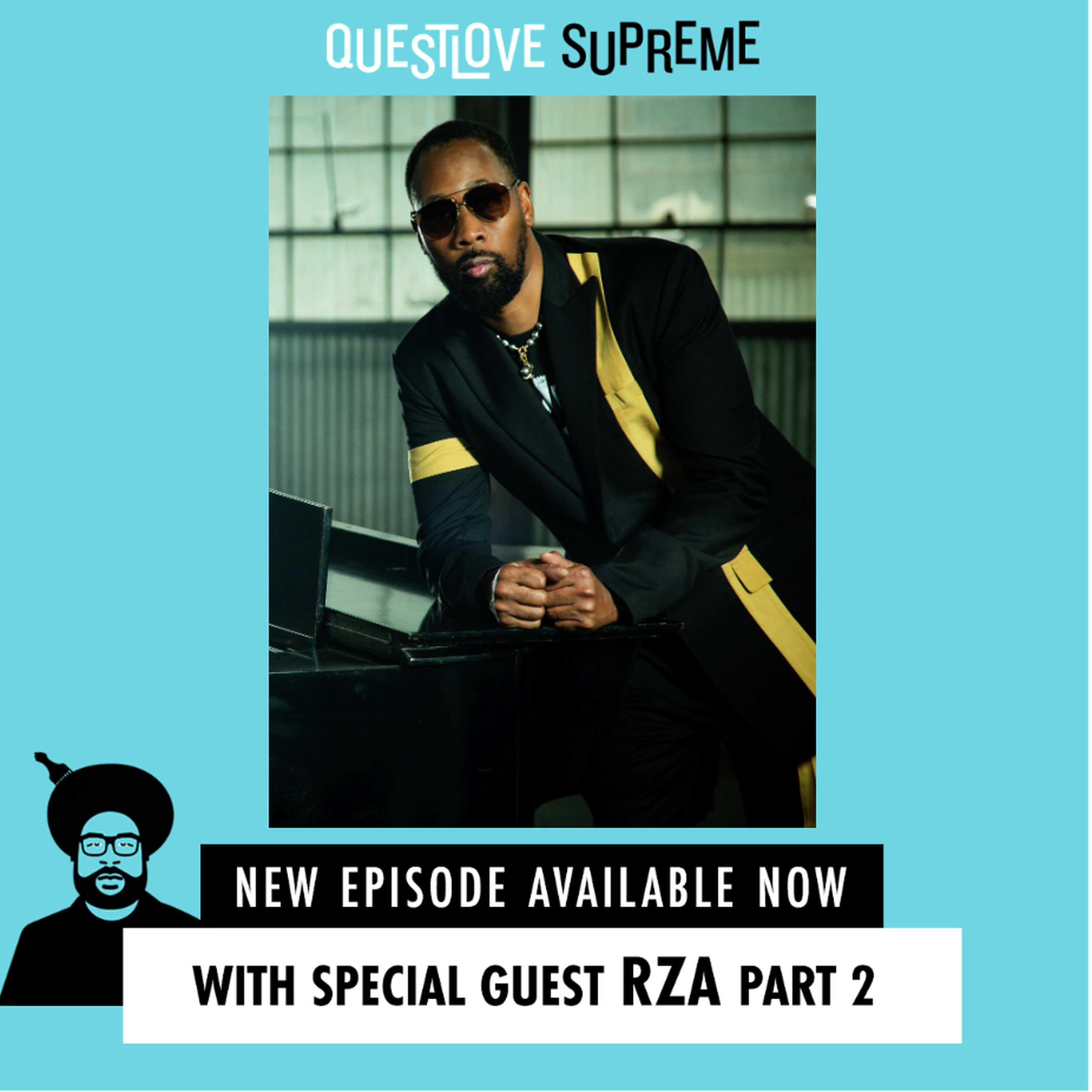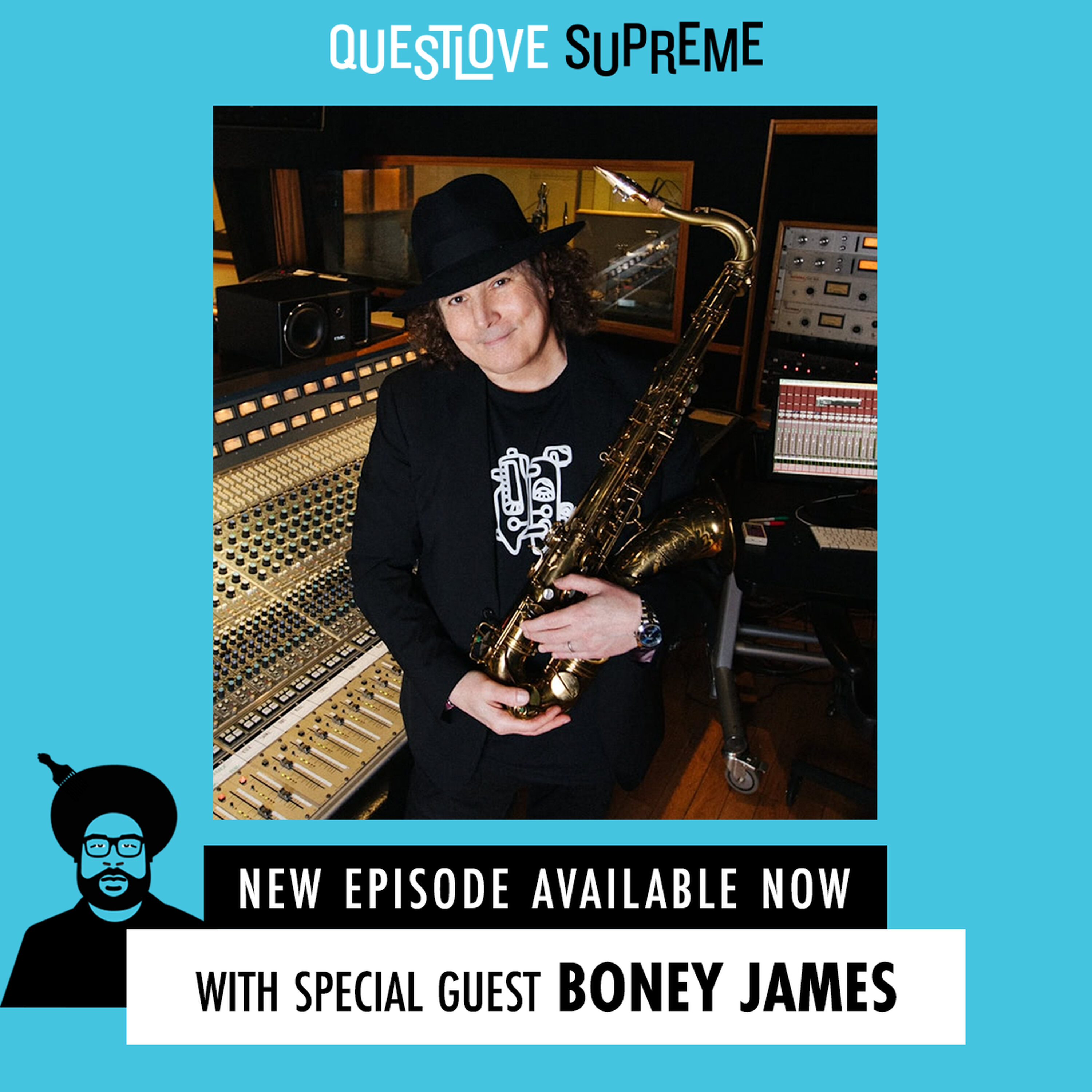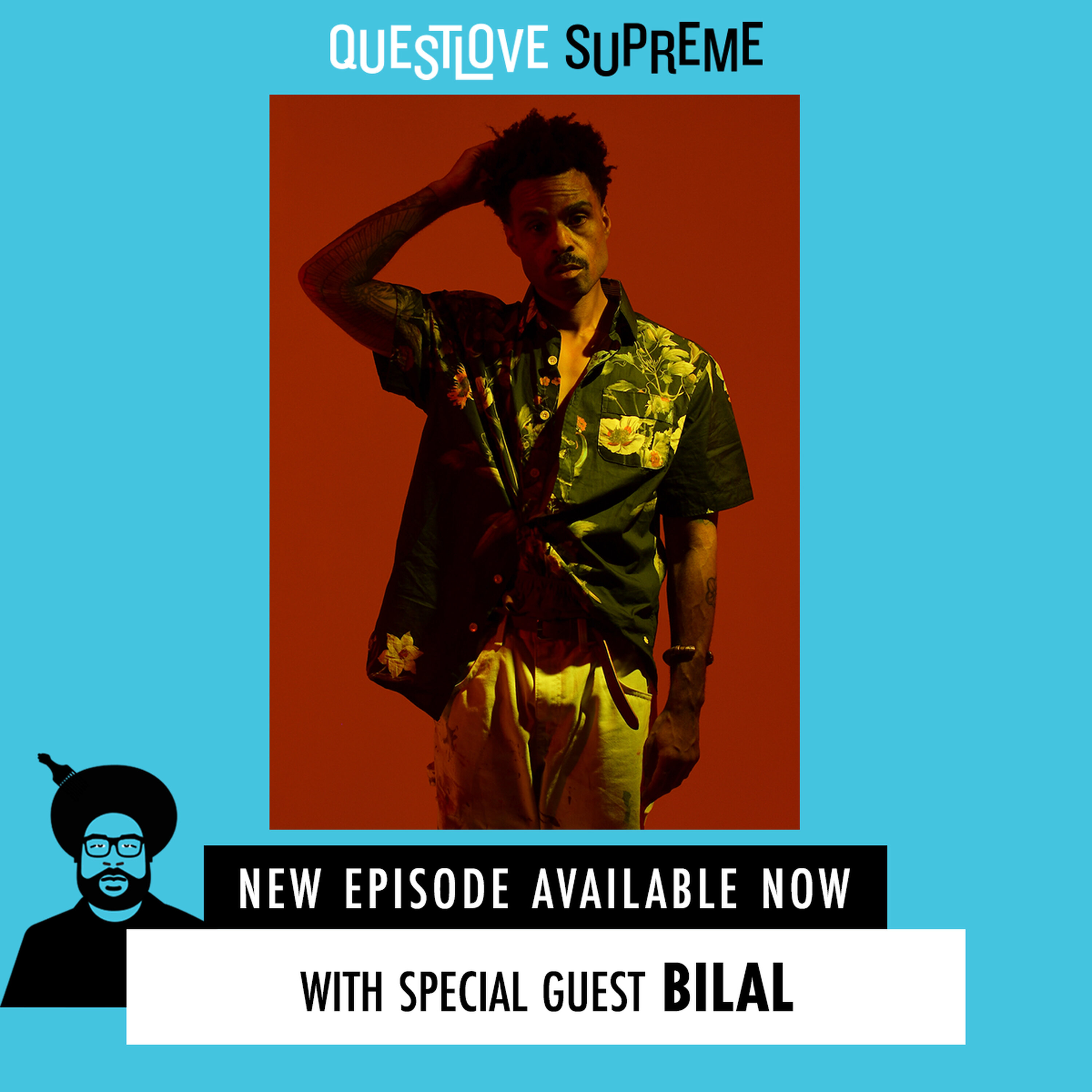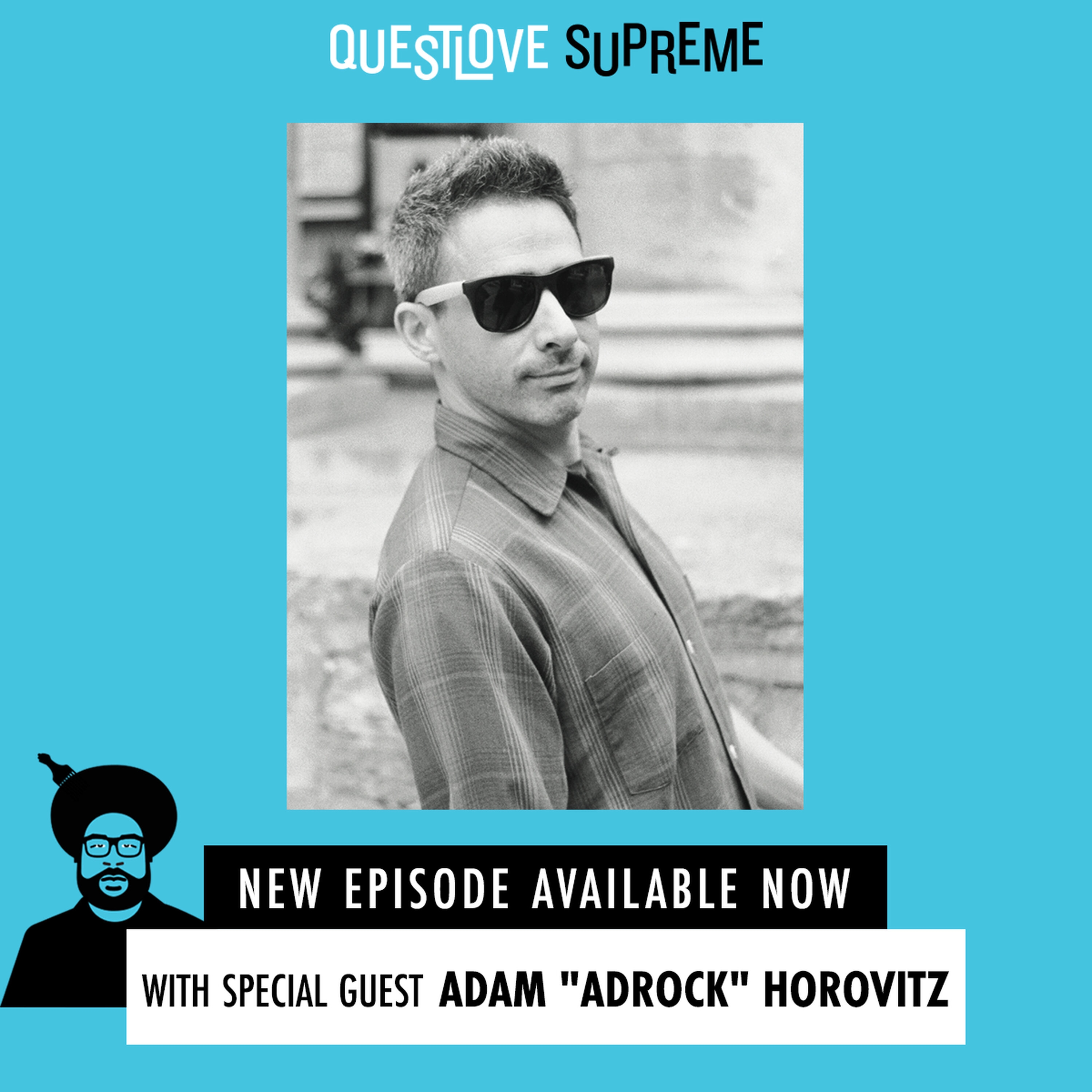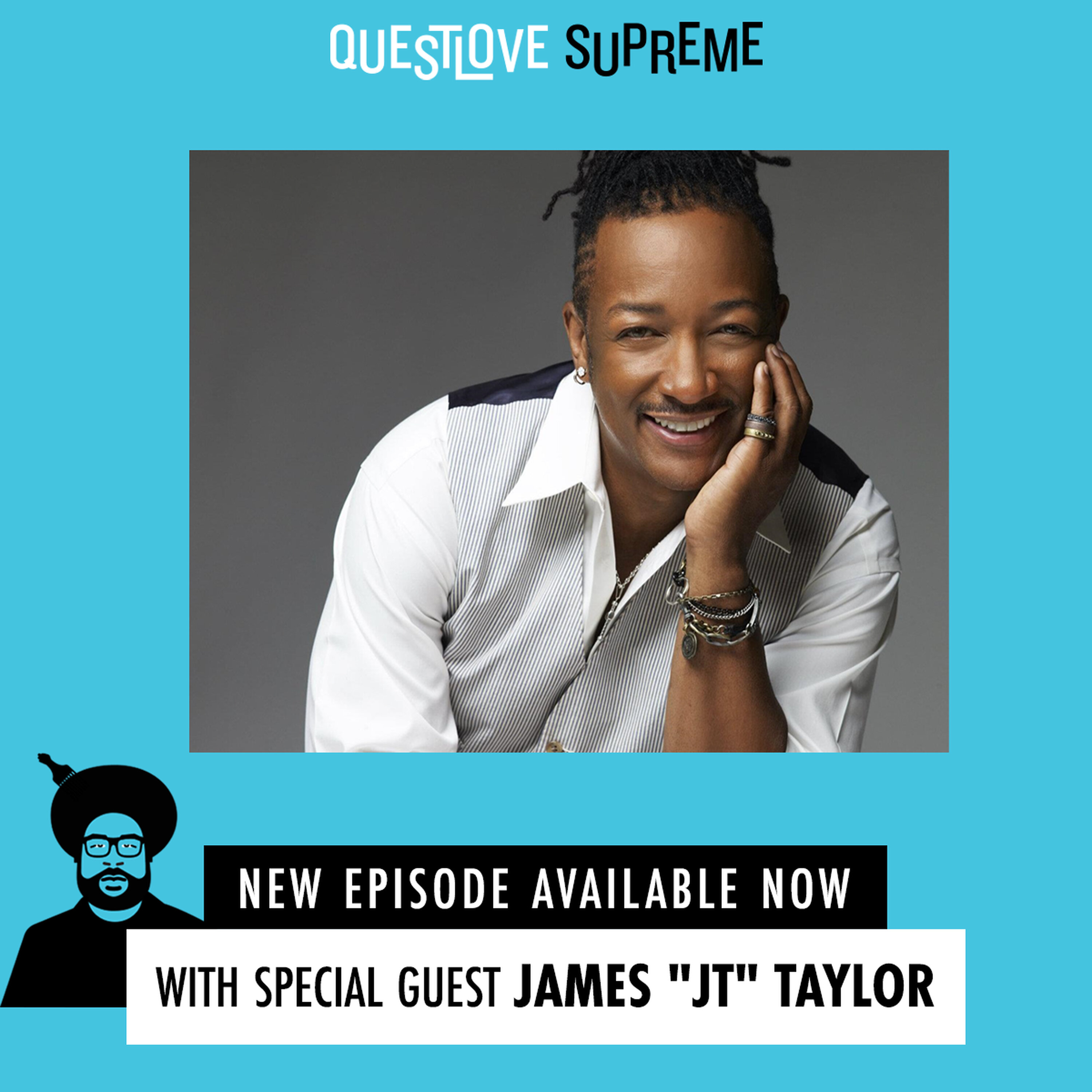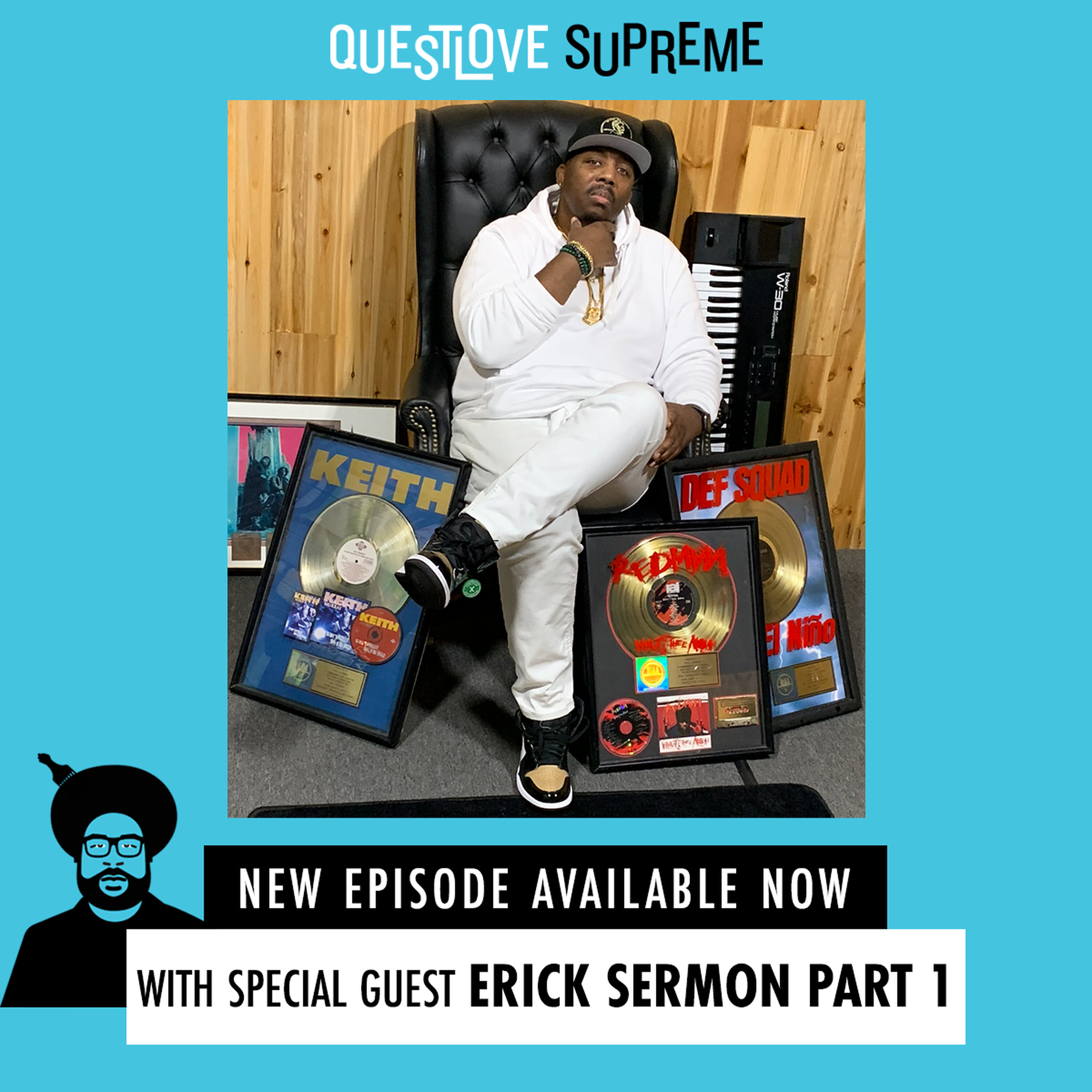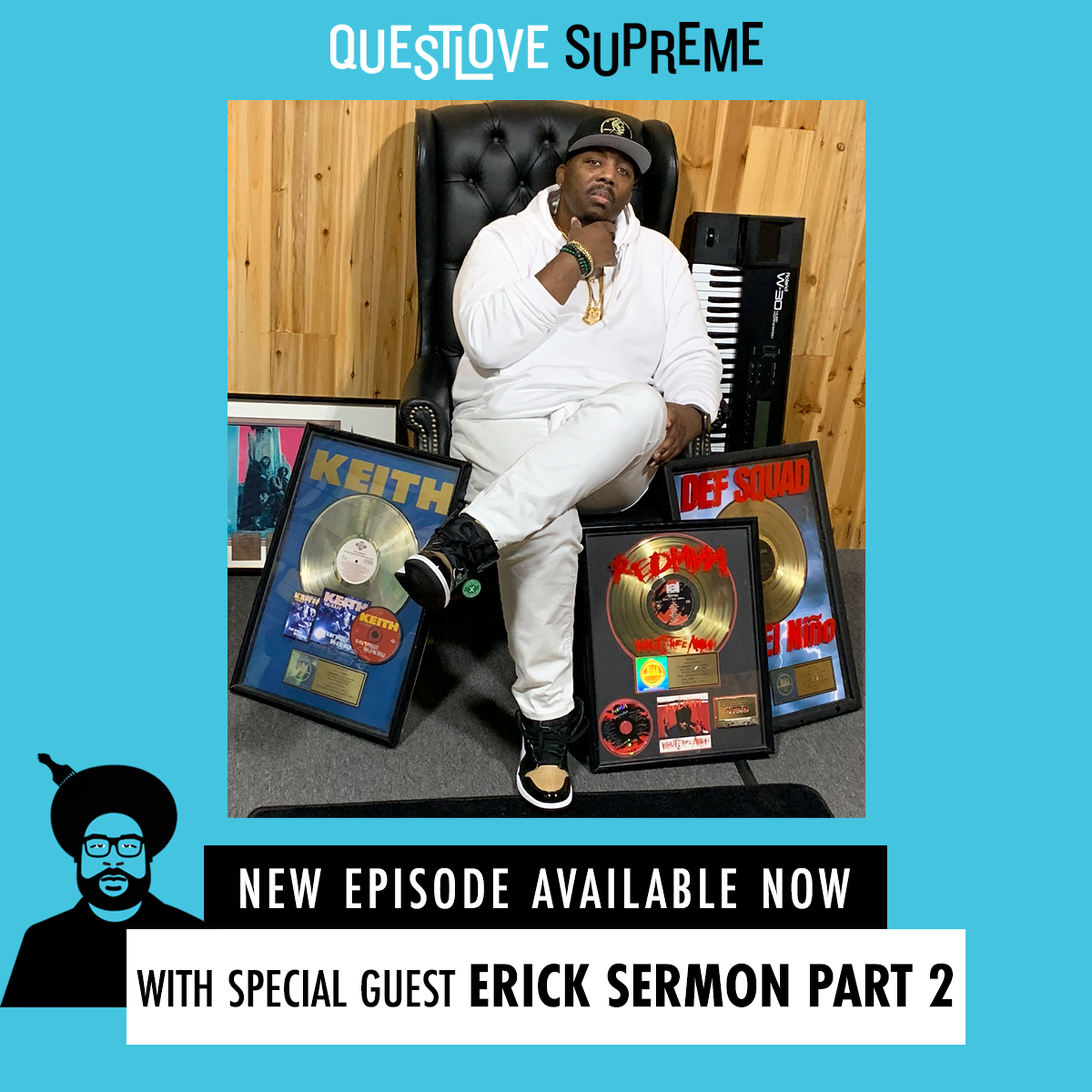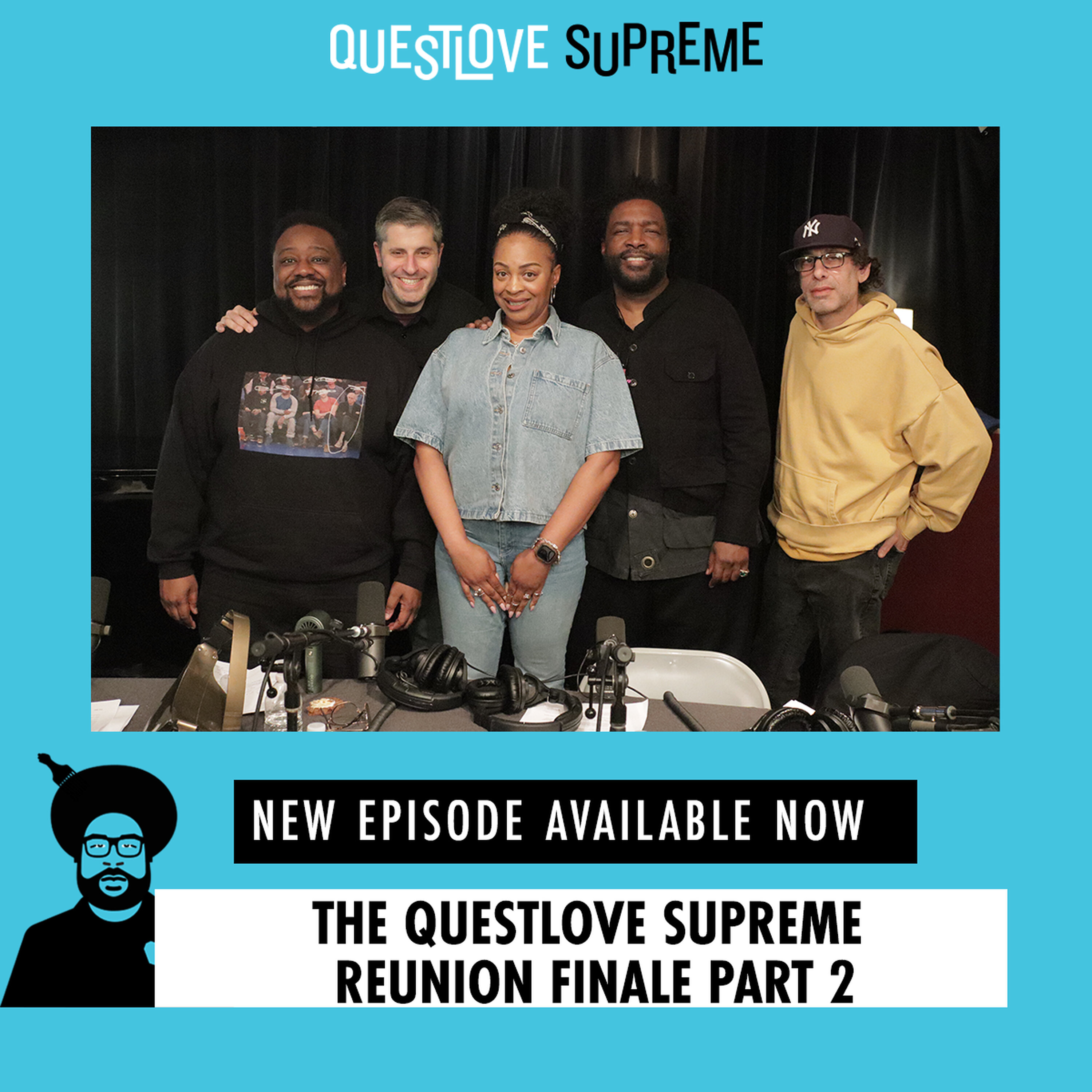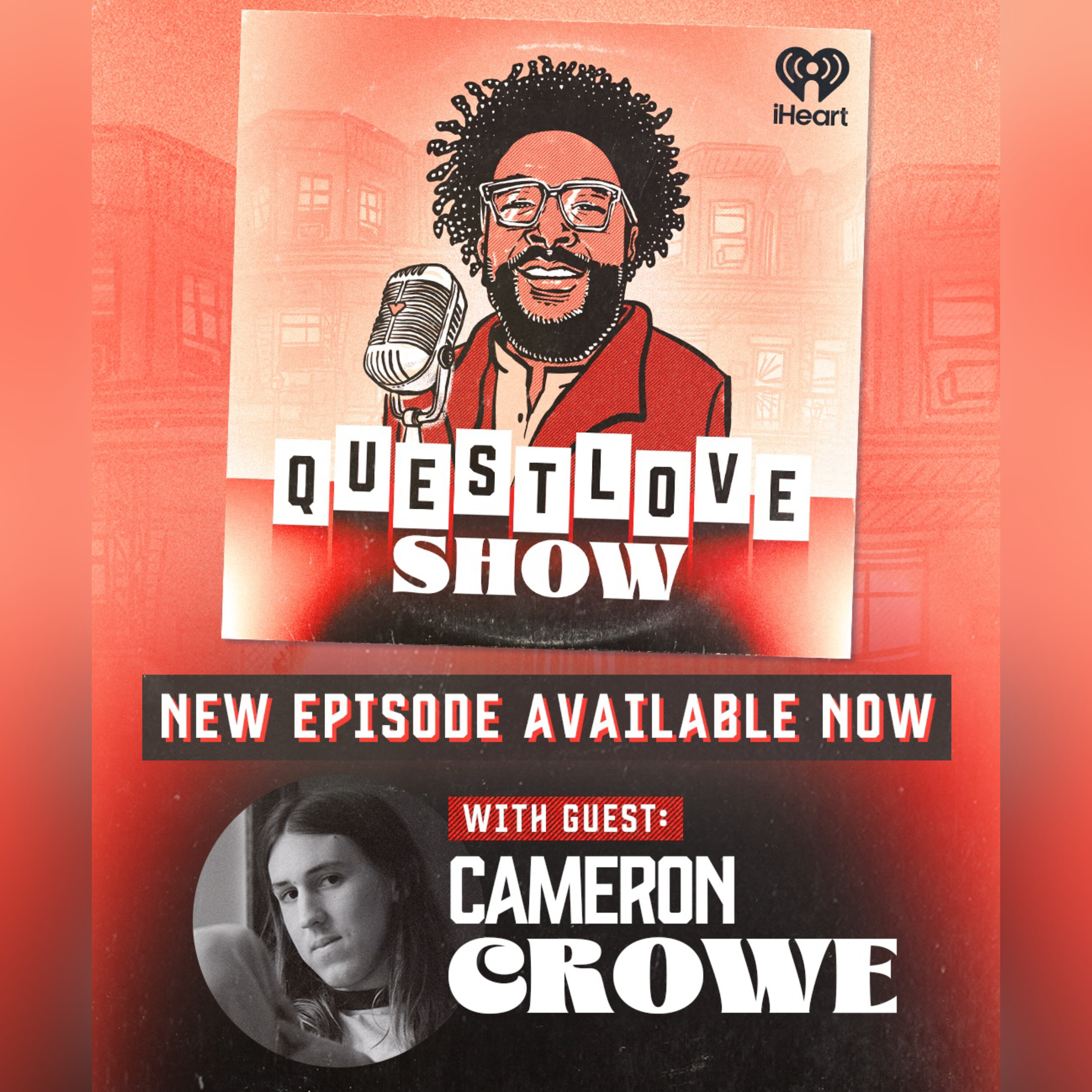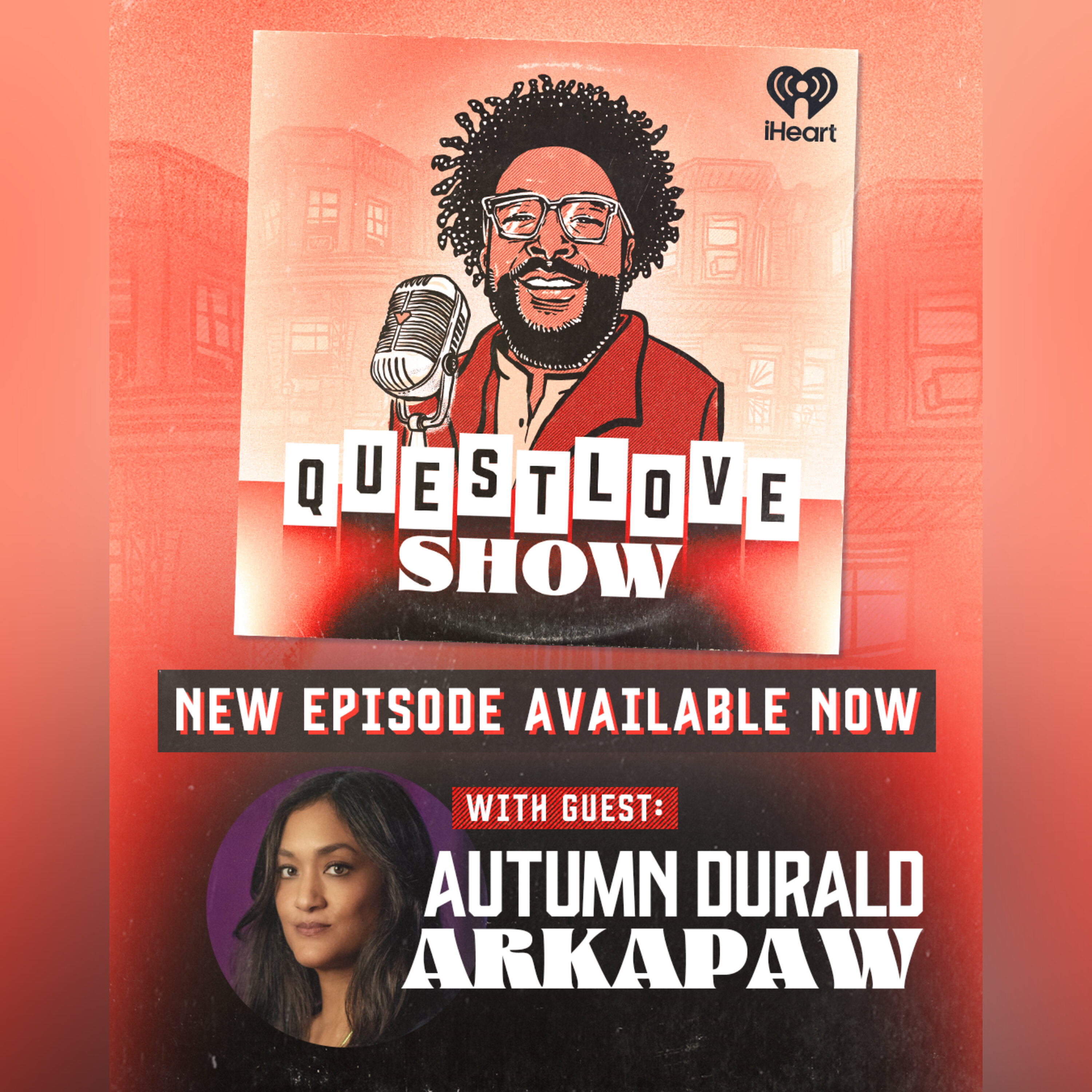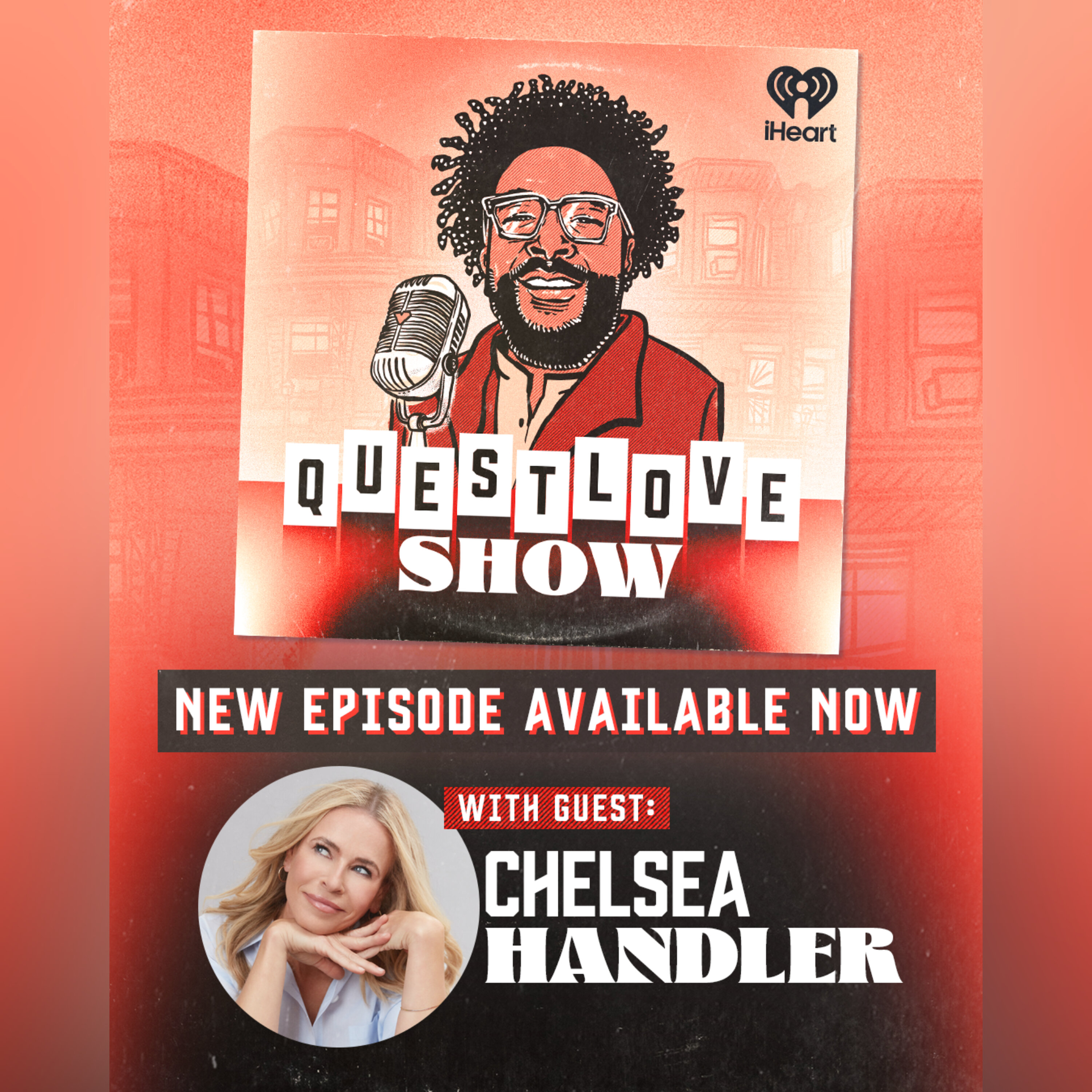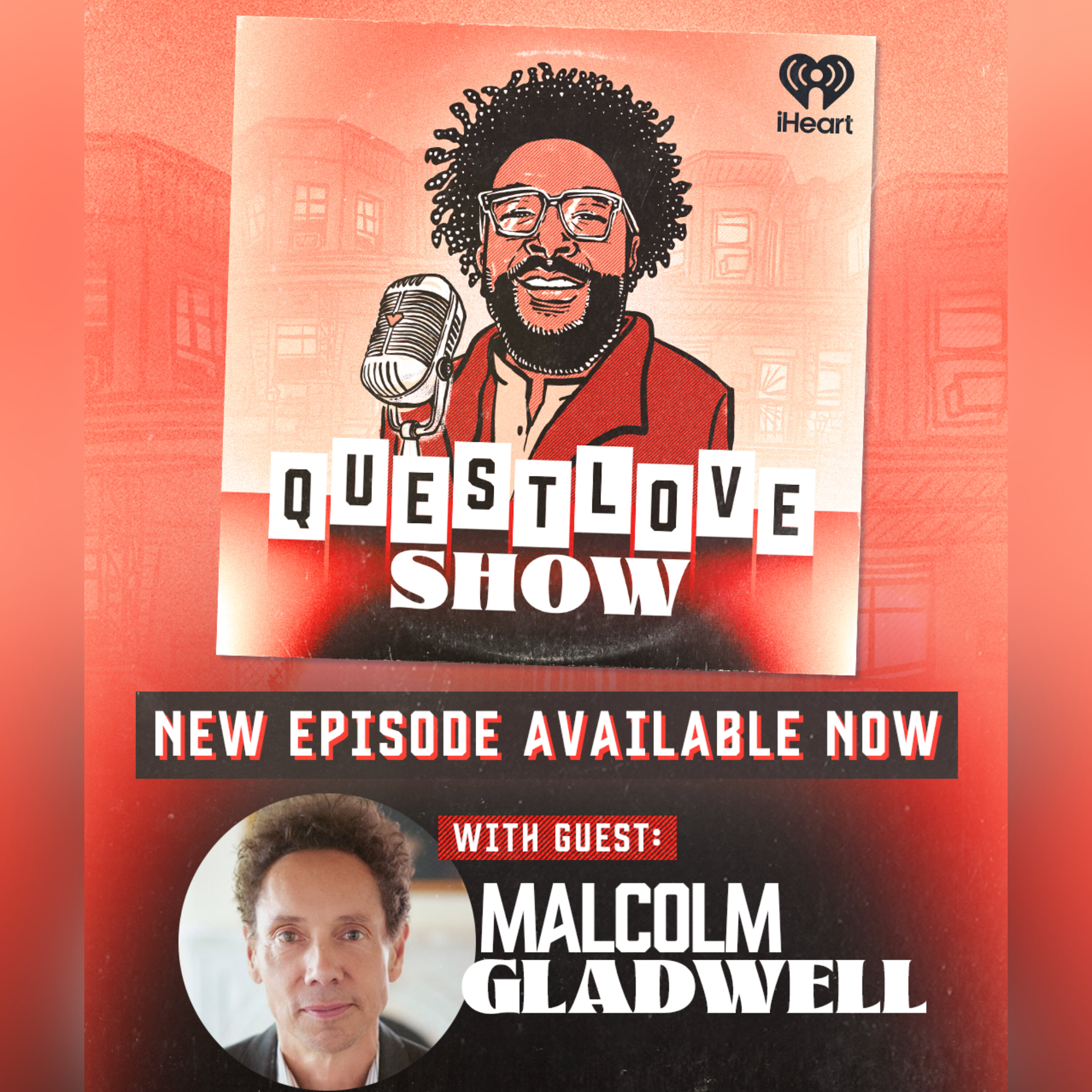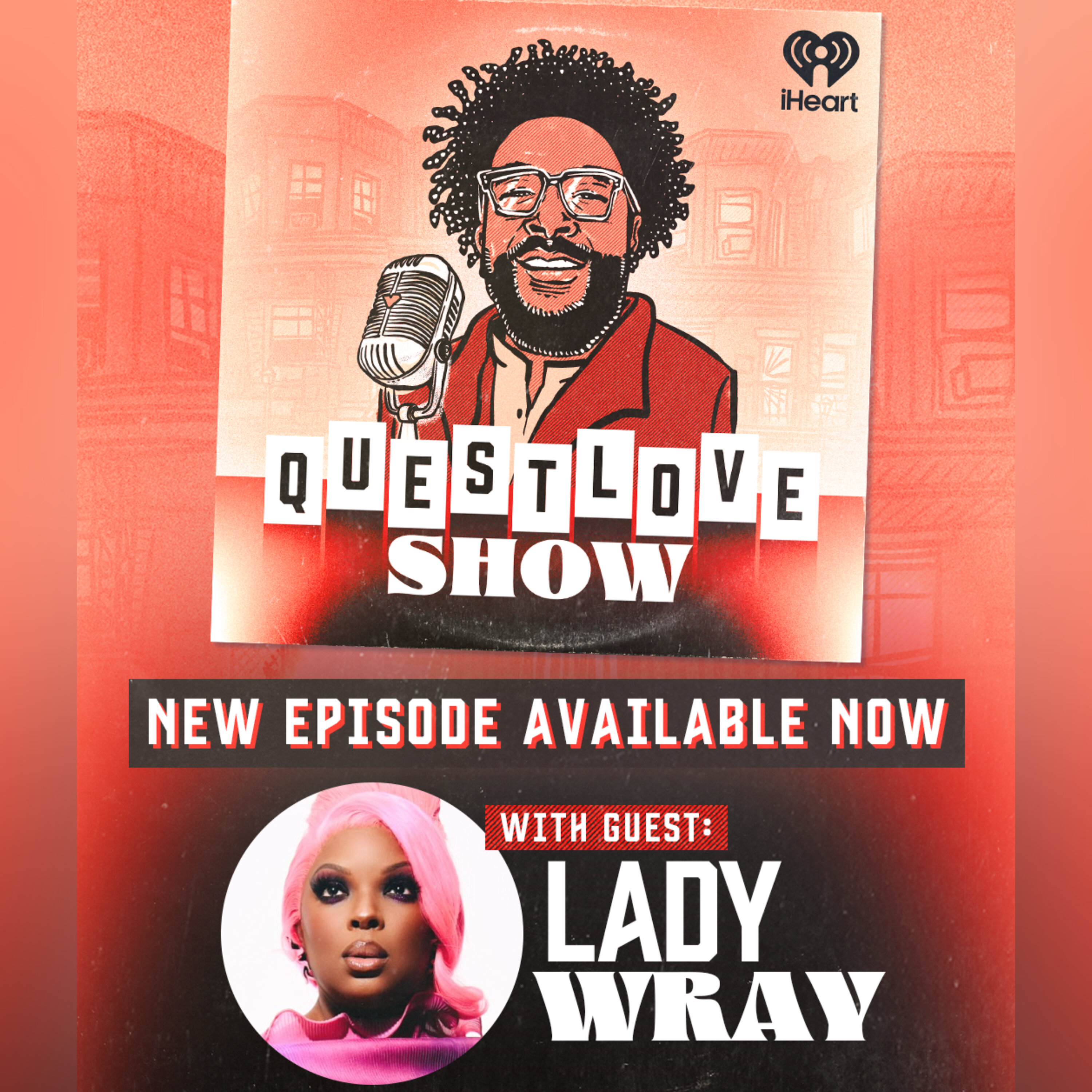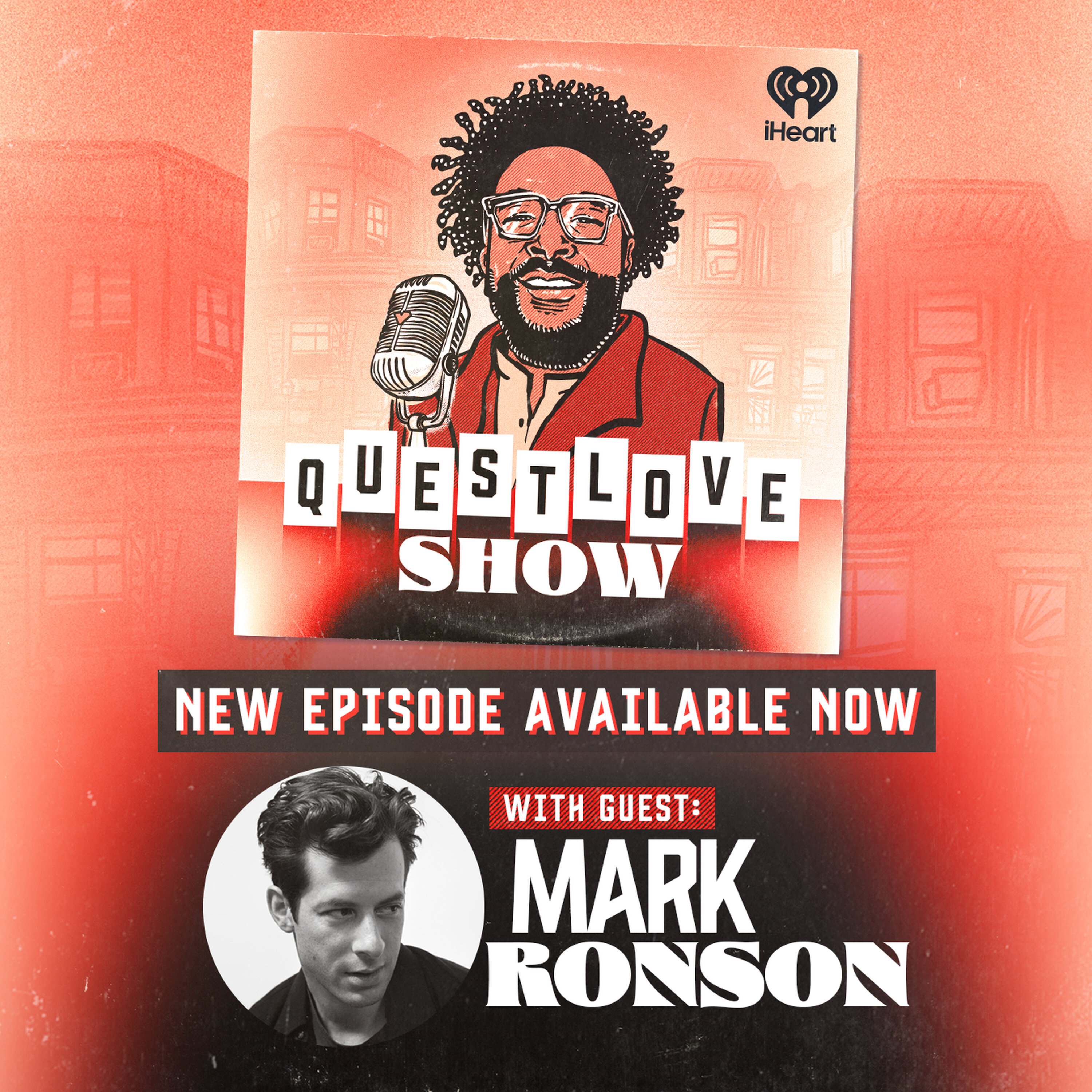George Brown Of Kool & The Gang Part 1
Funky George Brown of Kool & The Gang tells Questlove Supreme about an upbringing in Jersey City that made him fearless and creative at the same time. George recalls the band's early years, and describes what made this group so versatile, gifted, and cutting-edge.
00:00:00 Speaker 1: Quest Love Supreme is a production of iHeart Radio. Ladies and gentlemen, Welcome to another episode of Quest Love Supreme. I'm your host Quest Love Supreme. With me, we have the strongest, the strongest team in the land, of course, Team Supreme. Are you walking on the moon right now, Sugar Steve? That's correct, Yes, the moon, that's where you're at. Okay, you're walking on the moon. We also gotta lie with us. What up, Quest Love Supreme? How are you doing? I say, is does the name now? You say? Oh? Because she was like, Welcome to Quest Love Supreme. I am Quest Love Supreme. Yes you are, and are confirm I embodied the entire Sorry, sorry, I know Light is working extremely hard. Future episodes where getting ready for another round of in person episodes for the for Question of Supreme. So you know, oh ye yes, it's going to be exciting. Fontigolo, what's going on? Man? What's going dropping the new bombs on this man? And I gotta say, yeah, man, thank you? Where did this come from? What you know? You gotta you gotta like me? Where where did this, uh, the spark of an idea come from? Who you know? We've just been for the last couple of years, been working really hard, like on the documentary. Uh. And then also you know, playing a block party made in Durham uh October seven. But U but nah, man, we just I missed the chair, Bro, I missed being in the chair. I missed recording and so we're just like, yo, let's just go cook up, like we just wanted to have some fun and just you know, let them go. Those records they're out now. Wish me well, Glory Glory is out on all platforms. But those records ain't even They ain't even three weeks old, maybe a little ole two weeks old, like they fresh fresh. We just finished Wow fresh fresh off the other all right, that's just exciting to me. That's were exciting and recording something and way eaten for like you know, have a long making a year cycle to get it. Nah bro, cook it up, let it go. That's what's up man, Yo. Today is going to be an awesome episode. I will say that for the Wow six. For the last six decades, Our Guests has literally been the heartbeat of Jersey City's finest musical unit. Jersey City's probably the most diverse unit. They pretty much changed music numerous numerous times. Kind of going through a metamorphosis period really not afforded to any artists, maybe close to Miles Davis in terms of going through different phases. Of course, you know, they're late sixties, early seventies soul phase, and then we got the mid seventies funk phase and then exploding into the disco scene, adjusting to it well well enough to guard them a Grammy Album of the Year, not for their participation in the Inescapable Mammoth soundtrack for a Saturday Night Fever and then riding off successfully into the eighties with the just an unprecedented streak of really perfect dance pop classics. In my opinion, this unit known as Cool in the Gang is the dream as far as legacies can turn like dabbling in many genres, and of course, with this being the hip hop's fiftieth anniversary and our brother Love only known as Funky George being part of the unit that's probably the most sampled I didn't realize that Cool Na Gang is the most sampled band in hip hop. That's an honor, so that means that they also changed hip hop. Well, we have him here today. We hope to go through his history and his legacy, the One and only Funky George, Funky George Brown of Cool and the Gang. Welcome to course of degree. How you doing it? Nice to be great to have you. Where are you talking to us right now? From where where you Woodland Hills, California, the valley Okay, you know Calabosa's Tarzana that area, Woodland Hills, so literally Hollywood Swinging. How how long have you been out there? I've been here thirty seven years? You know. My my band members would actually say when you're coming back home, when you're going back to Jersey, you know, So it was used to be a running joke, but uh love it out here. Right before the pandemic, we were privy to a series of animated shorts that basically told the story of the band's origins and their very beginning before they got a record deal. These a little animated interstitials, and to me that was one of the most at least as as a as a music head, that was one of the most incredible things I've ever seen, because, you know, a lot of the favorites that we grow up with really aren't afforded much information, especially for like groups in the seventies and eighties, like you guys aren't giving the fair level playing field of your you know, your your peers that get access to mainstream press. So I knew nothing about the history of the band. You guys were like rigorously honest about your beginnings. I didn't know that. You know, we're talking about Cool in the gang. That Cool was like a leader of a gang. You know, most most most bands I know, starting church and all that stuff. So well, first of all, where were you born? I assume that as Jersey City. I don't know, I could be wrong. Okay, that's where you were born, Yes, sir, so you were first generation Northeast family. Most most soul acts I know come from the South and then they migrate up north. But you were born in Jersey City, Jersey City, okay, So could you just give me a description of what uh Jersey City was like for you in your childhood, at least for those formative years than before you started discovering your talent. You know, we're going back one hundred and fifty years, you know, so it's kind of hard for me to remember. You know what you can remember the blacksmith shouting noise, The shoe was right right right, You know, and the guys pumping the water when it was a fire. U because so long ago. But Sugar, he's in Jersey's he's right. Hoboken. Uh, Jersey City and Hoboken, we're very uh alike. At the time, Jersey City being the second largest city in New Jersey, it was a basically a working class town, quiet working class town. I go, I gotta put more respect on Jersey because I think, you know, I mean, I'm not a New Yorker, even though I've been here long enough to kind of claim it. I think I should be here for twenty years before I say I'm a New Yorker. But you know, a lot of times, even as a Philadelphia and Jersey is just like over there, you know, from New York, Jersey Jerseys over there. The amount of talent that came out of Jersey City and New Jersey is a mind boggling. I mean, you got to count Basie. It's just for one, you know, serve on this Jersey City is just Jersey, This is just Jersey. But out of Jersey City too, you got people like Nick Adams, friend of Vick, Carrol Cool and the gang Roy Hamilton's. It just goes on and on Roy Hamilton's, Roy Hamilton's don't let go Roy Hamiltons. Okay, yeah, so that's a pluffer of talent that came out of Jersey City, proper, the dupries, the spell by Okay, yeah, it goes you know, I know those names and and and those you know, like if he if he could count duke by himself. I mean, we wouldn't be playing anything if it was not for a Duke Ellington, you know. So it's it's it's amazing. No Frank Salatza, you know they came with it. How old were you when you discovered your talent for the drums? I think it discovered me. It's discovered me because you know, I top on the table with spoons and forks. You know, I just took it to the next level, just intuitively. I just took it and said, hey, you know, let me go take some lessons. But mind you, we were so poor that we can only afford a couple of lessons that three dollars a lesson. So I there was a gentleman named Joe to play behind the sorrels. I went to him up on Newark Avenue in Jersey City, and he like sit down here, it's a practice pad. I take these sticks, show me something. And it wasn't a mass of sustated grip, wasn't a match grip. And he said, hey, you're you're pretty much a natural. And second lesson three bucks and I got the Buddy Rich Sixty Cents of Rudiment book and took it from there. And from that point on, you know, it's like, by the time I reached the thirteen fourteen, I met Ronald Bell and Robert Mickens and Rickey Westville and we started the Jazz Birds because we're all deep into jazz at the time, which is a main foundation of cooling the gang. So John Coltrane, Charlie Parker, Lee Morgan, a Buddy Rich, you know, all the all the I was Grace at that time. You know, we were into and we'd sit and listen to all those jazz albums. So at the time, though, and assuming that this is the early sixties or mid sixties, you know, were you aware of the pop landscape or the soul landscape. We were totally aware of, you know, what was happening pop wise and what was happening jazz wise, because we would do little straws, and we'd have to play the music of the day. You know, nobody wanted to hear bags grooved lead to lead lead, you know, booh blahla. They didn't want to hear that. The kids, they wanted to hear the hunter gets captured by the game's bone bone, bone, body, boom, body, a lot of stuff. So we knew that too. Yeah, I was gonna say that, you know, for our listeners that don't know that. You know, in the early period of jazz, which was more danceable than this virtuoso face starts where the music gets faster and it's more about the solos and kind of more about sit down and watch this play as opposed to like us being a wedding band or a jukebox per se. But you know, every one of my heroes and idols in funk music that tells me about their beginnings in jazz. Most of them sort of had a condescending attitude towards soul and pop music. But I know that you guys were younger, so you weren't like looking down on it because you guys were teenagers. But I mean, how common was it for and having heard like especially like the jazz chops. On the first two records, you guys were still teenagers. How common was it for teenagers to be that to have that virtuoso level of musicianship during that time period, The con words are being virtuoso. It wasn't common at all. You know. What also was that we played almost nightly, and New York would play up the Blue Note, and York would play Tuesday through Sunday nine pm to two am. And what we were playing was all the popular music at that time and behind different artists, and Bay owned New Jersey pretty much the same. At the Kenya Club, there are five six acts that we played behind each evening, so we would be getting our pop chart shoppening. I'm honing our skills and loving jazz and learning you know, the all the bebop scales and just hanging out that way. So that's how we grew, were working as clubs nightly and go to school. What's the rehearsal process like, because again, you guys were a tight unit and really entricate, which I assume that of rehearsal went behind that, Like, what's the rehearsal schedules like, Well, a rehearsal for the the the pop groups was just you know, they come up, they don't want their music done a certain way and basically really close to the the record itself. So we pulled that off and keep the arrangements exactly like they were from Motown or you know, all the Atlantics. Uh, for what we did as far as the jazz was concerned, if we were going to play take five, we sit down and go through it or Milk Jackson's backs grew. The rehearsal process was easy, flow, you know, please, we would take out us on It's pretty babas uh, you know, and and in that process also we we came up with our own music. Okay, you know, but we would listen to everyone on the scene, pop, jazz, funk, country, and Uh. Rehearsals were easy. It's just we come in and say let's do this, and we get at it and come out. You were such a large, sizeable unit. How are you guys managing like getting too gigs? Like we live in the era now where you know, there's a thing called a rider and you know there there are companies that you rent your equipment from. But suck, I'm stuck 'em on puck, H'm on stock 'em. Yeah, yeah, let assure me. Uh no, we uh brought in our own equipment, right, We've set it up. We've had our little rehearsal, you see. If everything was on par as far as its working, and we had no no crew whatsoever. And even in the early days, the beginning, I think we had two guys, uh Donald boys who became the Boys, the voice of Jungle Boogie. Yeah, I was gonna say, and Bobby Simms, and those two guys were riot, you know, So that was it. I mean, you know, now it's a whole different bowl game. He said, you were still in school during this time. We were going to schools. They were like fifteen sixteen. We were going to school and working in the clubs. What's your parents saying during this time? Were they just supported from the jump or how did that work? We had our parents, All of our parents were very close to each other, and uh, it's just like a gut feeling. Like they had the gut feeling so did we. It was just these all children are gonna make it and sure enough, I mean, of course, but we put that time in and they allowed us to do. During that time, I was also I was playing with all the people up in the Catskills and you know, playing blues, you know, with all the artists, and so I just learned. I used to play with a guy named It's all of my name, Duke Washington all over New York City played ten of sucks electrified tenor saxophone player, you know, and electrified ELEXC saxophone. So he would say listen, Papa when I played. But d edited that means all the band members come to the stage, you know, because it's something that it's something that error that we just got fit of talking about, you know, the twelve years of big band and all that. You know, so you hear that. And me being young, I had to stayed the dresser room or outside in those cold New York nights, I'm sitting in a car. Yeah it was tough, but I think that's how you know, people horn their skills, and you really show the intense the intensity of the love that you have for the music. Even today we speak of the music, you know, right, how did you avoid the kind of gang mentality that pretty much what it seems like according to those uh those shorts that everyone but your band somehow didn't avoid. In the early stages. We were always rehearsing. The gangs in the area. We were avoided, we avoided, we were practicing and myself, I've even had physical fights for some of the gang members who came out of Jamesburg and uh the like, you know, like they've called it the King of Jamesburg and he's back in the school yard taking over the schoolyard. You know, these are like major gang. But you see, in my life, I didn't care about anybody being a gang member and if they stepped to me, I'm gonna try to knock you out. And what happened was I got I can go in schoolyard and nobody that touching me. This is before the martial arts went entered your life. That's crazy. Well, I'm my second degree black belt martial arts second degree black belt. Cool's gang is uh the leader of the gang, I forgot his name, Eagle, and I came downtown and we got into altercation the same deal. Because I'm from the midtown, I'm from Bergen Left left what I what I did, and Cool with all the sort, I took a bicycle and beat him with a bicycle. Oh that was it. Jesus Christ as survival tactics. That's you got it, but nothing on you no more ball doing George Brown. Wow, that's uh okay, I got the answer to that question. I was expected that one. I don't even know what a Devil black belt is, but I'm I'm impressed. At the same time, I don't want to find out either, So you know, I don't think you're gonna have no problems. Yeah, how long was it before you guys solidified your deal with the Light Records? And if you can I mean I've heard a lot about what's his name, Fred Fred vicar Rodo, the the president Fred Fido game figur so once once over all, can you can you verify or not? If if they were the people who did not play with if you want to know names like that and I want to play you know, Monolith or Stereotype, But were they were of us? You know, actually they were very very sweet, good people because if they like what you were doing, they gave some type of reward for it. Uh. They made sure that things were safe. You can you spend time in the studio developing and they heard it and saw it and knew the degree of talent of the band. But it's just like the bicycle. They they were a bicycle, if you know what I mean. Once we sign with them, they were the bicycle. Yeah. I'm gonna ask later about the the uh the origins of jungle books. Oh. I just wondered if they were the bicycle in business too? Were they fair to you guys and they were a bicycle in business as well? Okay, I'm only asking that because Robert tells this this crazy story of how how he puts it about how you guys were quote unquote forced to come up with Jungle Bookie sort of against your will. Oh yeah, it was. It was like force. It was mental block time, mental block time for critics using So all right, you tell me that your version of the story. Yeah, it's gonna it's gonna mess with his Okay. We went up to the office of the attorney at the time. Today he's like the number one attorney for the entertainment business in the world. I'm not gonna mention his name, right, okay, So, uh, myself, Calise and Cool went up to see him, and I can say what he said though. He said, listen, guys, we need some eff and hits. He said, I don't care how much genius you are, and how many instruments you play? And he looked at his watch. It was probably a partick Philip and said, my wife's waiting for me at the airport. Goodbye, and he walked out. So Dennis went one way. Ronald Cool and myself were walking together and said, we got to come up with something. And sure enough of going through Baggie's, it's not that, I'm quite sure it's not the Baggie's rehearsal steel in New York on like the thirties on the West Side, and we started coming up with this music. Hollywood Swinging was one where Ricky Westfield came into the idea. Then we were over at Harlequin, which is a forty another rehearsal studio like forty fifth Street upstairs over Howard Johnson's right, really cheap studio in Manhattan. Yeah, where Si R used to be. Okay, I said, I know that is yeah, and uh, we came up with jungle Boogie. We were playing it police. It was we had jungle something, but it was Dennis Thomas that came in and when he heard the track, we said, we're calling it jungle gym blah blah, blah blah blah, and he said, no, man, people are boogie in Let's call it jungle boogie. Right, bingo, done up, wrapped up. That that's the story. Uh can you verify that? Well? Kind of what Ronald told me was basically that that the the heads of Delight were sort of like mesmerized by you know what was slowly morphing into to New York dance night culture. Yeah, and they heard soul Makosa, of which you know, I guess either. They acquired a copy and was basically like, we want our version of this song, and you guys were like, no, we were serious musicians. We're not playing this mumbo jumbo. Absolutely no, we love soul Makusa too. Okay, then we're gonna bring another producers and Kalisa and I said, no, they're not. And we went and did. We got funky stuff out of it and all that day, so we got Hollywood s fingal, juggle book and funky stuff all in one package. So you can't beat the Khalig Gamble was just telling me because he follows you guys but video. He's a videographer, and he was saying that the rooms that he's seen you guys. Change with jungle boogie. I'm talking about the whitest, most southern like. It just breaks. It's that's the one song that just changes everything anyways. Yeah yeah, it changes a lot. Yeah yeah, yeah, that's especially because it's called jungle boogie. I think the irony is well, you know, it's primitive anxiety. It's got it's got the ground rhythms that I was playing and Cool was playing, and you know, and you got that the horns playing uh uh contrary, and you gotta have the go going down the other way. You know, that's that's uh in jazz. But you had a lot of classical music when the strings are going one way and then you hear the humbles going down the whole different. It just opens it up, you know. And then you got a guy going you know which, which was novel that also made the record what it was, you know what it is still today. So can you also settle a question and Dyna ask you guys or someone from the organization. I mean, yeah, one could say that because all the albums were made at the same studio, of course they would sound similar. But we're at least for that first album, the Keep on Bumping album. Were you guys really the kgs? No, No, So the Kgs were their own self contained unit and their own self contained unit. What happened was Calise was producing them. So you're gonna get you're gonna get a little bit cooler. The gang silent U with us. We we've changed studios. We were at the House of Music in Jersey. The first records were done across the street from a studio fifty four. The Beatles recorded there, Dion Warwick, Burt Back, everybody recorded there. So you know, we did mix studios. But keep on bumping. You gotta keep on bumping. Yeah. Right, that was all done by h h with a mirror, a mirror beyond. Yeah, is he a bell as well as he related to the Bells, the Brothers. Yeah. Where all of you Muslim or just the just between Ronald and Ronald cool a mirror clad the smithy. Uh, well, we'll Muslim. But that didn't get in the way when we did our prayer circle at night, I mean before the concert. Didn't matter if you were saying, you know, hum do Allah or prayers God, it didn't matter, you know, because we were going out to do the thing and make people happy. Uh, and we all understand that God is God. We should probably mentioned when we're talking about Ronald and you call him Calise people who are watching and listening. Yeah, well, back in the I'd call him both colleagues, Ronald, Ronald Bell, you know, Ronnie, you know. But all that faded away when we got ready to pray and go ready to get ready to get on stage. It didn't affect it didn't affect who and what we were because you know, Calice and Cool and chor develop psychologically enough to understand that, you know, there's only one God, and God is God what we call him. Maurice White shares a story about three last days in time Earth Winning Fire maybe pre head to the sky Earth Winning Fire. You know, occasionally they would meet, like in different audiences that weren't familiar with them and either get a cold reception or you know, just get outright boot or whatnot. Marius White tells these these stories of like coming to Philadelphia and you know, literally getting the worst treatment from the audiences. But are you guys meeting at all like any sort of indifference or like, how are you guys handling different territories that's outside of your tri state area? Comfort zone. Well, you know at that point, we would we would play what the music of that time. So uh, it was accepted because we were playing what the people wanted to hear in the VFW lodge that we were playing, you know, or some high school homecoming. So we we we uh, just like the old days, people said, look out and see what the audience looks at, you know, and you know exactly where to go. So we if uh so that's what we use. What we did, you know, we played what they wanted to hear. We would enforce anything on the people. Uh, you know, if it's God, if it's temptations, or if it was the the old days, they're gonna that's what they're gonna get because we know, we know how to work an audience. And I don't mean that in a derogative way. And still today we know how to work an audience because we go out, we look, you say, uh in a robot, hey take that out of there, take this song. I'll take this song. The song because it will give a lull, right or working with an orchestra, then we'll say, well let's put this in because it'll keep it it. It gives it that feel. It gives it the tone. It gives it the tone where we're coming from. So we'll add something that's jazzy, jazzy or yeah. So it's always been like that. The only time we got like who these guys is? We were in each Germany and the album, but it was all these dance remixes and that's what they were hearing on radio. So we got up to play. They were like, huh, then we see it right, the whole the dancer. That was it And so that that's all awkward and bad. But I presume today the same people they've caught up. But that was it. It was the only time full disclosure. I'm gonna just be for all the folks. Depending on how old you are, you all you have a dummy moment with cooling the game. I feel like people who were maybe my generations, like eighties, eighties, nineties babies, it's a moment when you you heard summer Madness and you were like host, I mean, yeah, can I can I relate a story about some of that. We had a jungle boogie and of course I went up charts, and so we put our spirit of the boogie and it's in this summer and I think we're in Illinois. So this jockey turned it over because it was a B side. It was a B side of the Spirit of the Boogie. He turned it over and the rest is history. I mean, we had two songs going up the charts together. That's unusual, you know, especially then. Was this shocking that something that mellow kind of caught on? Absolutely, we were like okay with the two chords, right, shock, It was shocking, the two chords and the wonderful Calisa's wonderful solo. I have another question about Summer Madness. Did you guys feel any sort of way about Bill Conti's score of Rocky because there there is there's a song on that soundtrack called Reflections, which is is damn near a summer madness? Well, I believe in the movie he runs and works out the summer madness, but when you buy the soundtrack he does, right. But when you buy the soundtrack, there's a song called Reflections, which is basically summer maddeness just half a chord off. Like the way that we write songs that it's a night show, or the way that I believe that the Barcades wrote their songs was basically put a song on and get it derivative, just like that song and change one little part so that you don't get sued or whatever. But it's it's so does the balls are like that? But you're talking about what goes through his room? He put some on up a little single, right, you know, Summer madness, you know? But uh, but did you guys feel so away like we're even aware that Bill Conti had made his version of Summer Madness on that rocky soundtrack at all? You know, I don't think we were aware. But we coolding a gang. There's always been the real high spiritual group, and we really are. And if somebody does something we don't say, we don't get to just and say, okay, we're gonna suthe this person. As the years of going by, we've been rewarded and awarded with so many different we haven't gotten an Oscar yet, but I know that that that's coming, and the Hall of Famous coming, and so will the Kennedy Awards and the what is it Rogers and Hamistein or one of those. It's it's coming, it is, so we don't we've We've never been the type to excuse my friends the bits that we didn't have this, and this one got that. We just move on, let's write some music, and it's it's still it's still like that. I always wanted to know. At least the first three records were produced by Jean Reid. I assume that Jean was a house producer of Motown, Okay of Motown, and he came over to the the light leader. What was what was gene like as a producer, because later you guys started producing yourselves, but what was those first initial years, like Jane was a bona fard genius. Down down to the sound of the band and bell sound. That's where we recorded, because that was the studio. That's where everybody recorded the Beatles at the time. And back then the studios was so stark looking. Today's studios are groovy with the lights. But we the board then had the big pan pots, you know. But Jean played piano. His father played for Coody Williams, so he did a big, great musical background. Jane was the producer on Cool Jerk Really. Oh yeah, he produced and had written a number of things. Him and George Clinton. George Clinton came out of Motel as well. They were more tom writers. I'm just finding out that he's also father of Penny Ford of Snap and Sharon Red. Yeah, yeah, yeah, Well I know that Sharon Read and Penny Ford are sisters or half sisters and that sort of thing. So, and Sharon was an actress, Big Tom. She was in hair back in the day. You know, well Gina was. He wanted a new sound and we had that jerzy sound. Uh, and we'd go at rehearsal. He'd go and manipulate the amps, you know, you know, the tones and things how it should sound. And uh, eithern with me even some of the breaks. He would say, Now, George, it is simple, you know quick he went, but doubt up. That's all I want there and live it alone and get the float up. But you got the floor, Tom resonating and uh he uh came up with the idea before the Jackson's when there was a program was Elis who side. It was soul Okay, one of the early black programs, and he had us. Uh, he had the filters. I guess you can call it of cooling the Gang Saturday cartoon show back then. Really really it's a brave guy. Yeah. Back then I think this show was called soul Okay. Yeah, well I never knew that in black and white and all that all that good stuff, right. It was the stage was so small they had to put me on the side. You know. As I said at the top of the show, what's really notable about you guys is the metamorphosis of the group, you know, starting off jazz, adding more soul to it, and then you know, and to this day, like as as a Soul Train his story and I credit uh, you guys is second appearance on Soul Train as a pivotal moment of that show. It's the moment where even Don Cornelius admits to you guys that he never heard Jungle Bookie, like the way he basically said that, you know, he got the forty five the day before and he heard funky stuff and thought that nothing ever is going to top funky stuff, So I don't need to listen to the B side, and you guys do Jungle Bookie. And I noticed, as someone who's studied every episode of that show, you know, the first three and a half years of that show was really sort of riding off the cotails of Don's connects in Chicago and you know, the middle of America. So like a lot of curtis, a lot of you know, like Chicago era groups, some of them like older. And what makes it notable when you guys come on the show the second time and you do funky stuff and you do jungle boogie, It's it's as if the kids only see themselves because there's a group that's their age or younger than them playing a different type of music that's not really based on motown or based on James Brown. It's like it's it's clearly like a marketing of new territory and an introduction of funk. And the way they're dancing is like their life depends on it. Like I wish I had a song to compare it to now, Like if you put the song on the moment now and the audience just goes crazy, But what is it like or how jarring is it to adjust two different genres, because you know, jumping from funk to disco was such a hard adjustment, and you guys caught a lot of flak. Like I was raised by uncles that was like, well I remember my coolmking, you know whatever, So can you can you talk about what it's like to either sink or swim in a time period in which a lot of your contemporaries are not trying to swim and they're sinking and you guys are like, Nope, we got to go on and move. So can you talking about the period at least that everybody's dancing right before celebration, that disco period you guys had to go through. Well, we've always been eclectic. You listen to the music and it's thread over the years. You say, well, they're not following the scheme of what most artists do. This is the albums also on the same everything sounds to say. We were in London Calicea and I and we had an interview and he said, you guys got cajones and we said, what are you talking about? He said, you don't stay in one niche. You're like, you do this, you do that, and uh, he said, most artists they want to save their careers and they're Stephen at one niche. We we've always played what we felt like playing, We was we felt like writing. So in those trains additional periods, it didn't affect us. It maybe affected the lot records because the sales weren't there, but it didn't affect us. And regards to because we weren't making that much money anyway, but so we so we just were on down in the trenchers trying to make it work and putting things together. But we've always written different styles of music, so coming from that stole R and b Era. It didn't affect us. You know. We got JT, pulled him along and just started writing songs for a vocalist and bingo, it worked. Hey, question of Supreme listeners, this is Sugar Steve. We don't like to do this, but we're stopping the episode right there. Please come back next week. We're looking your podcast for you for part two of our interview with Funky George Brown of Cool. In part two, he talks about some of the band's hits eighties, this new memoir of Cooling the Gang in Me, and much much more. Oh, and make sure you check out Cool the Gang's new album, People Just Want to Have Fun. It's made by George and another QLs guest, Ronald cool Bell, with the rest of the gang. See you next time. Quest Love Supreme is a production of iHeart Radio. For more podcasts from iHeartRadio, visit the iHeartRadio app, Apple Podcasts, or wherever you listen to your favorite shows,
















